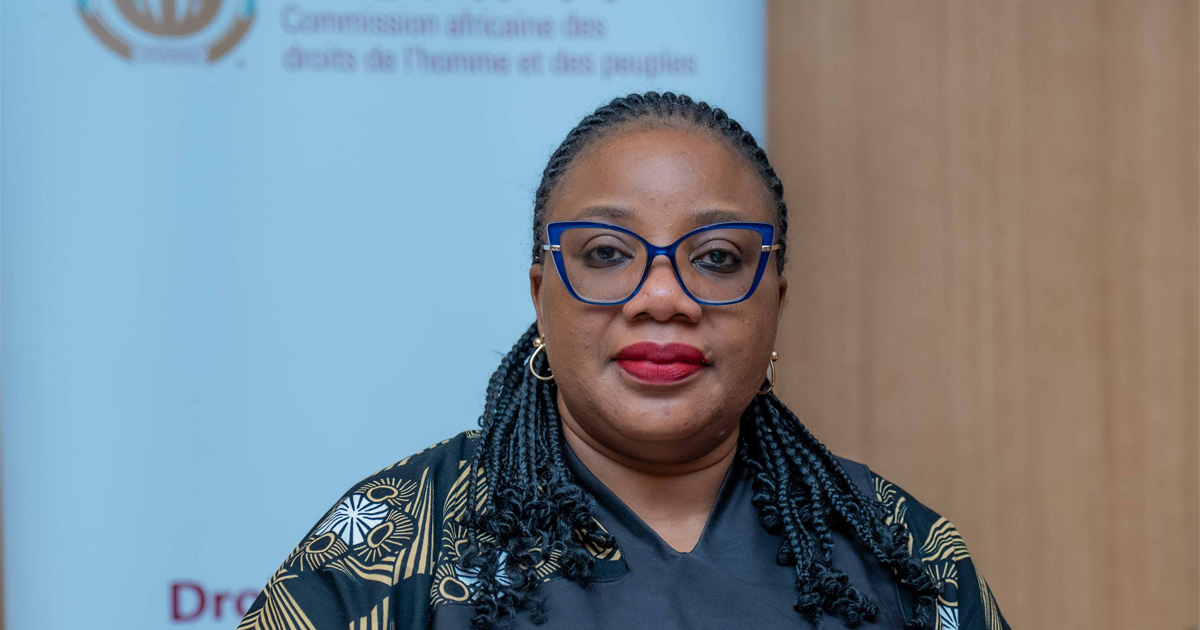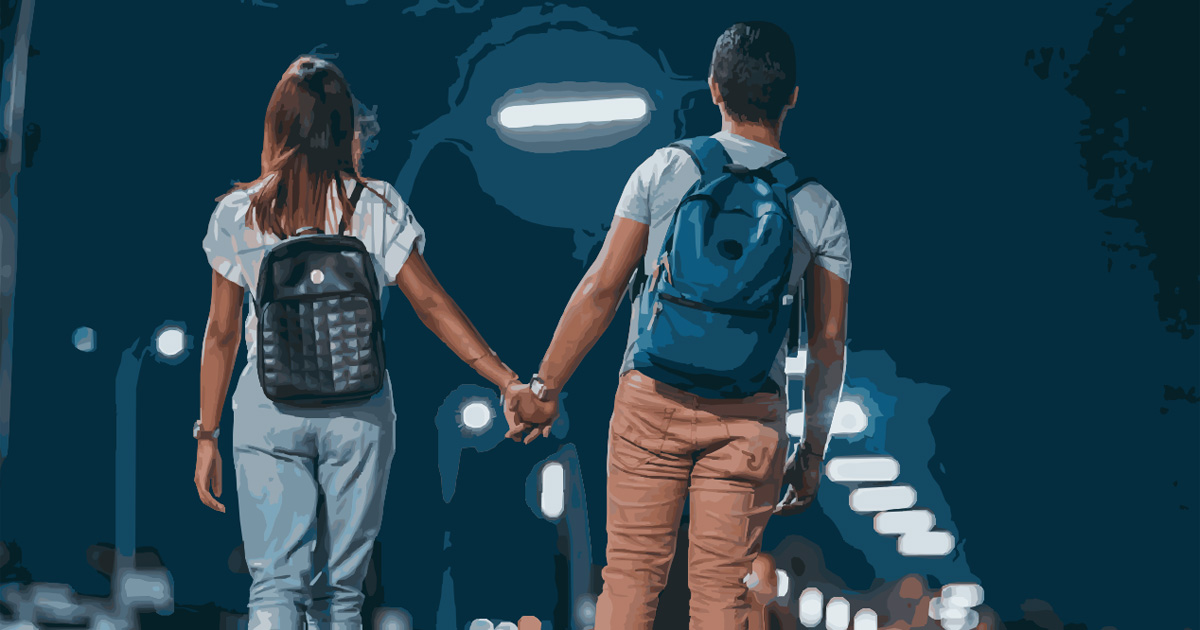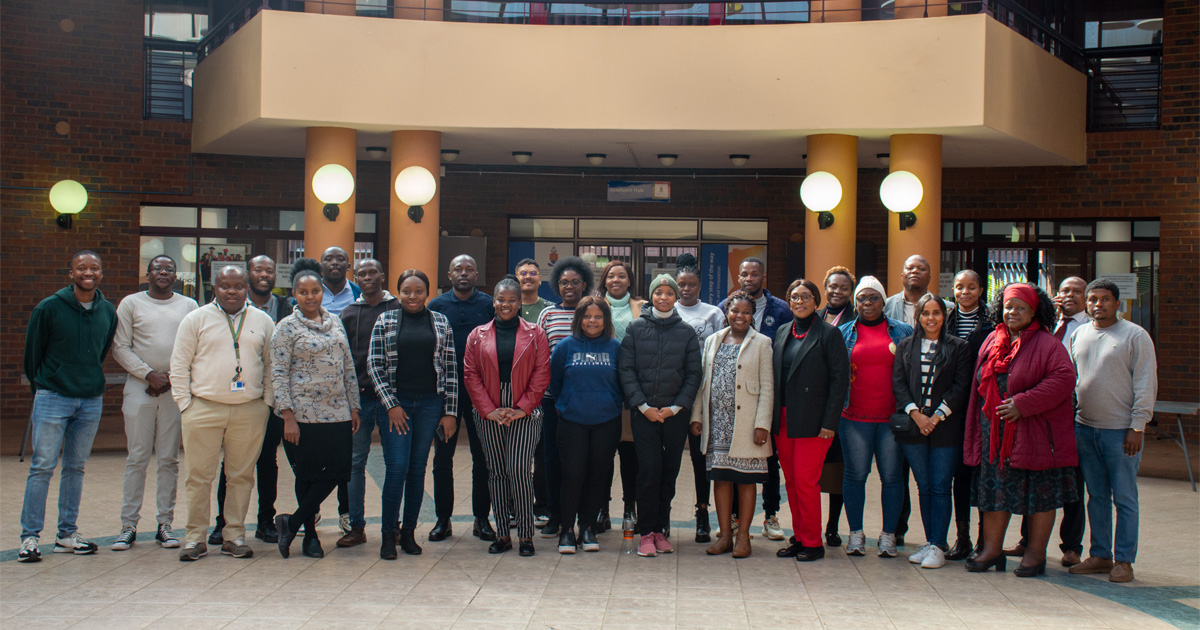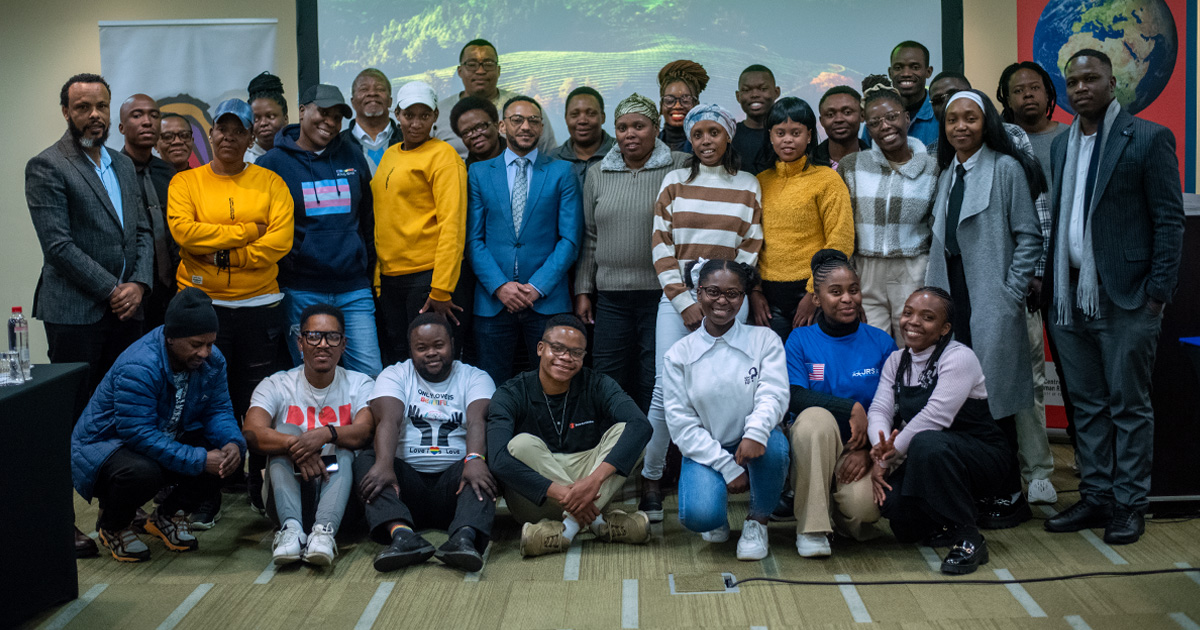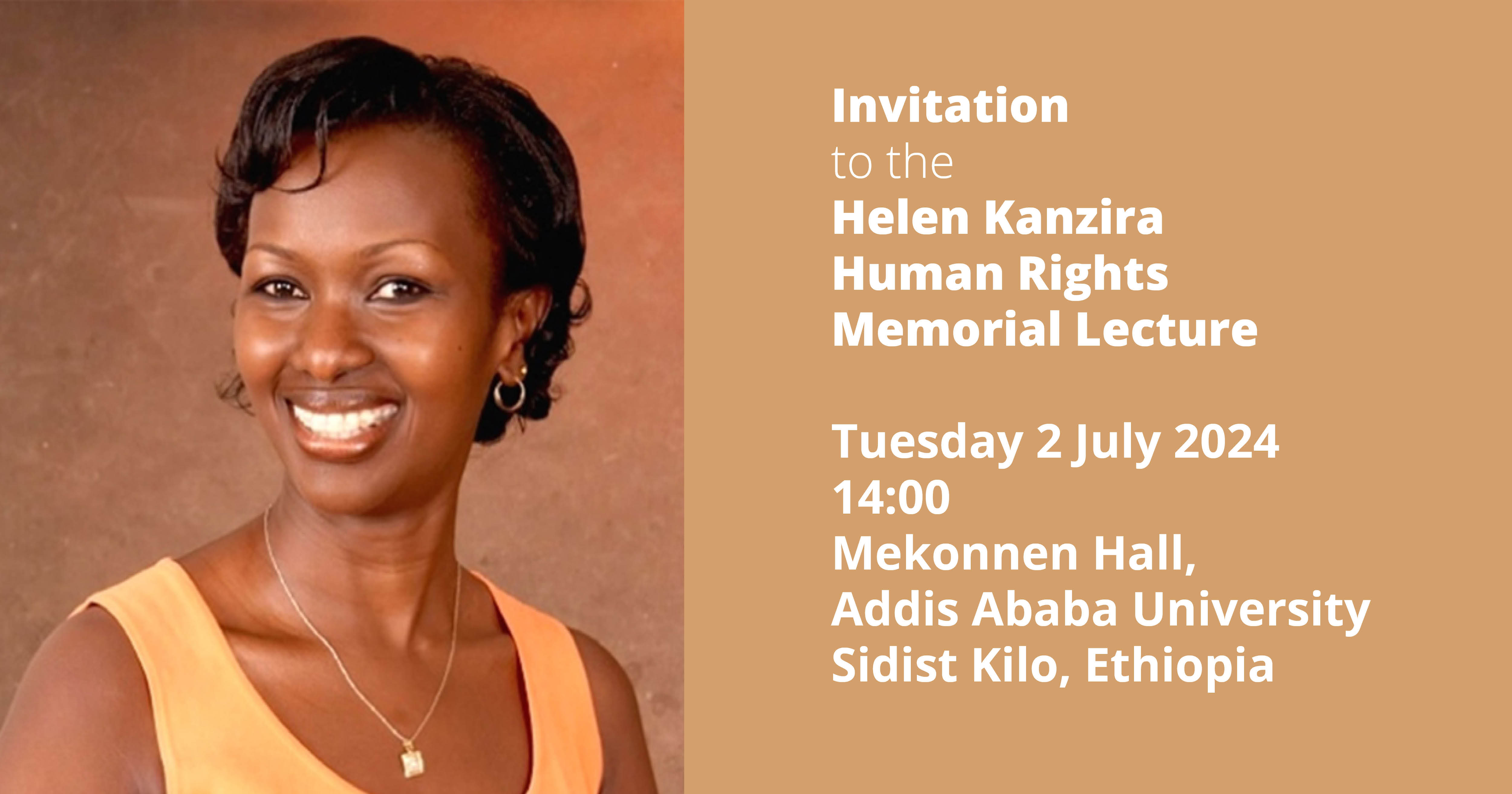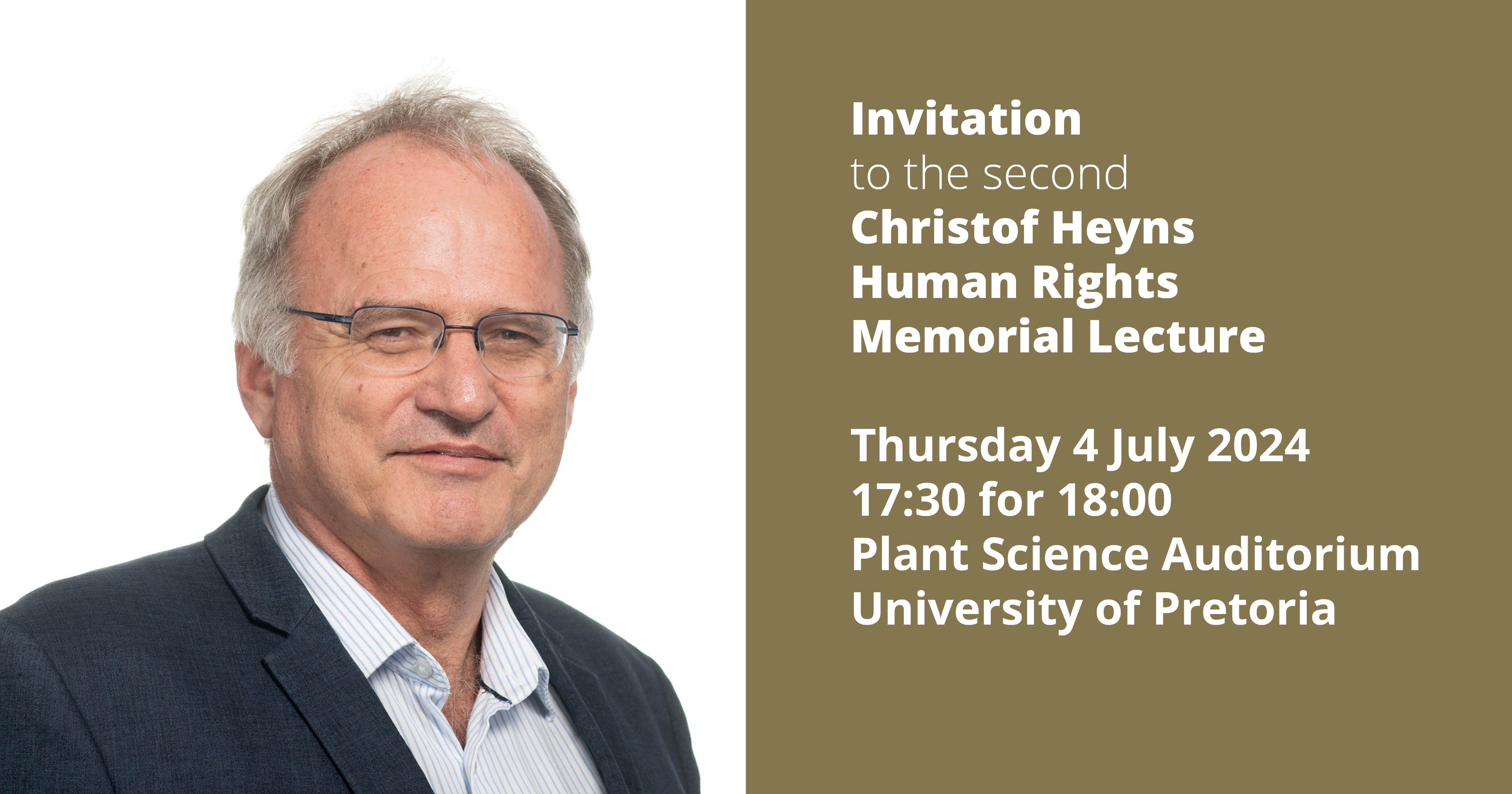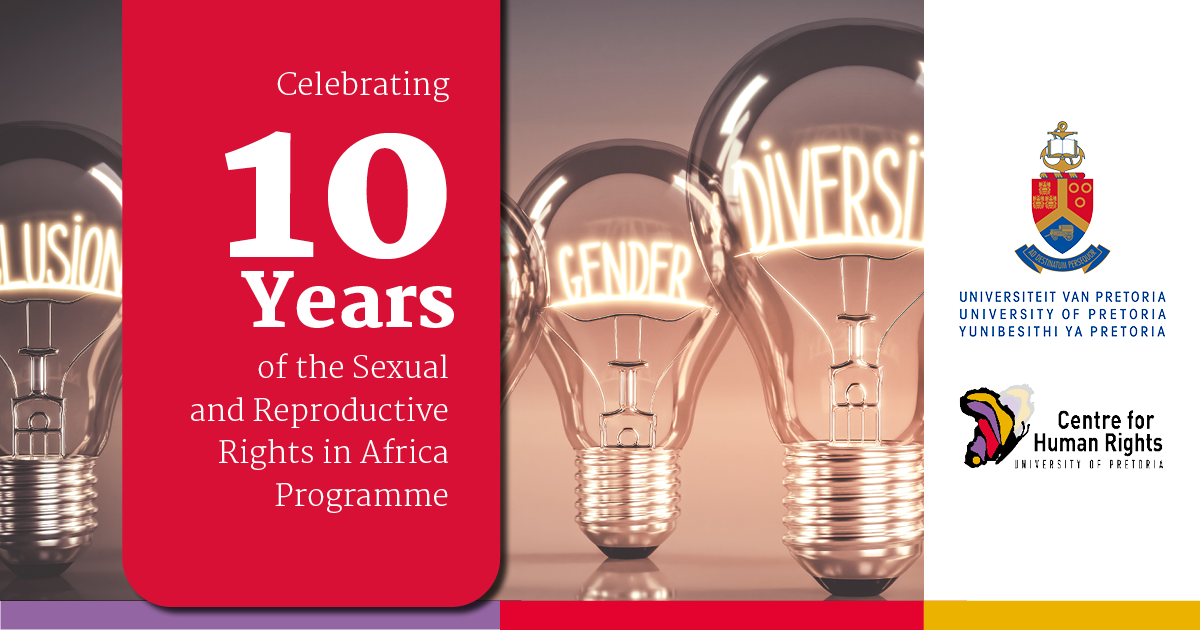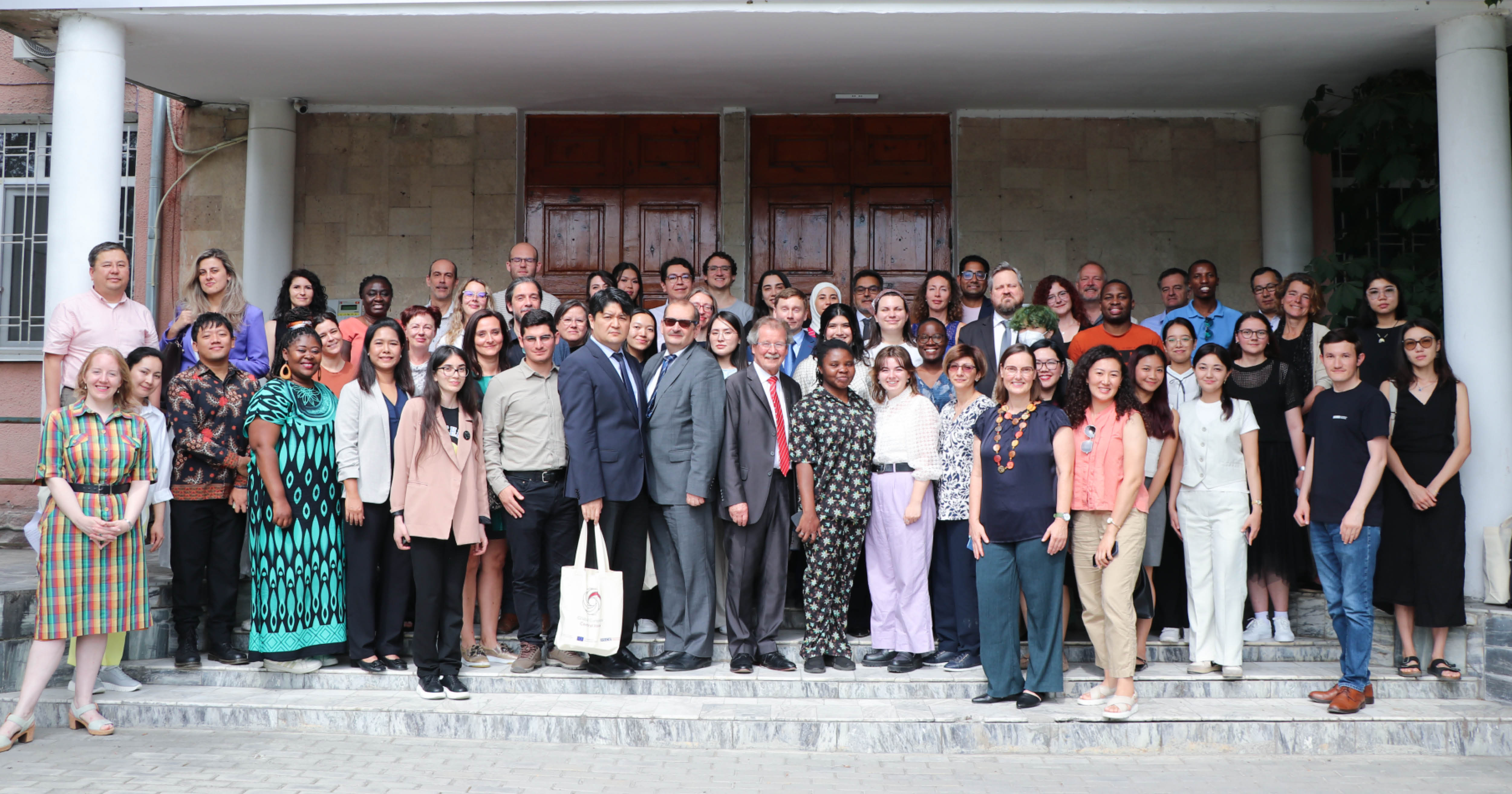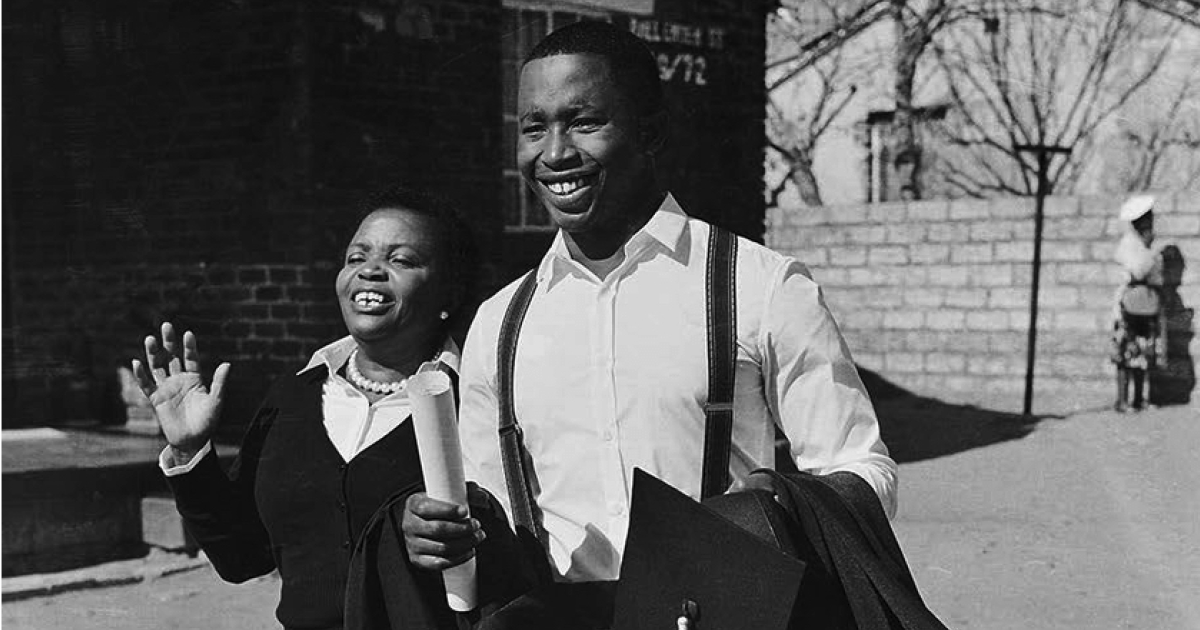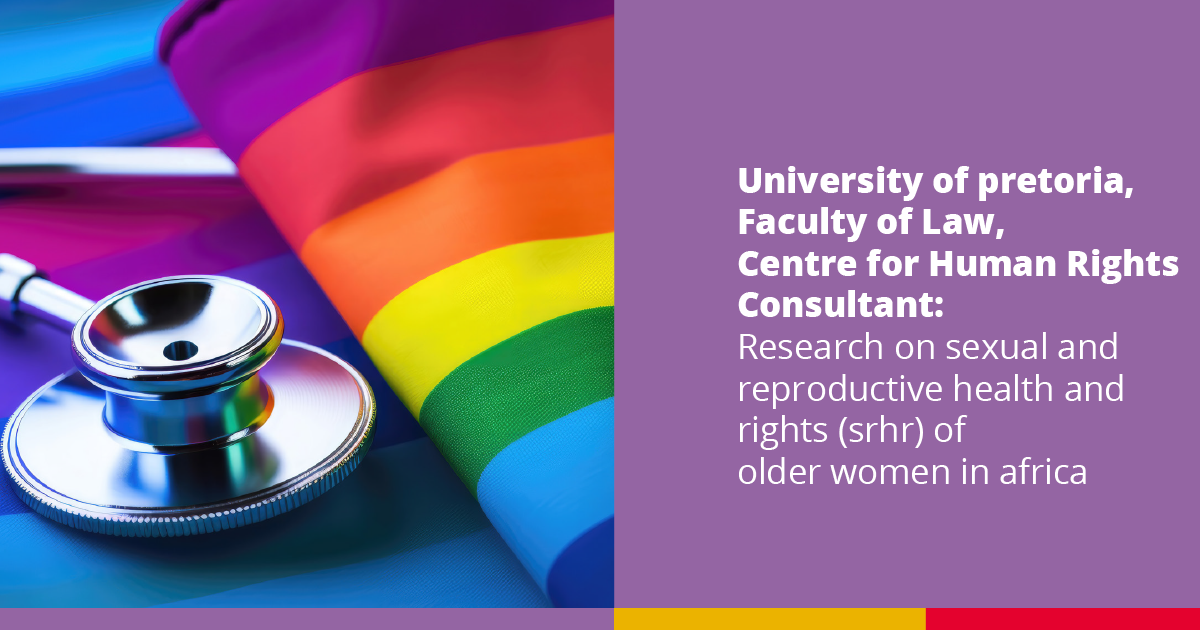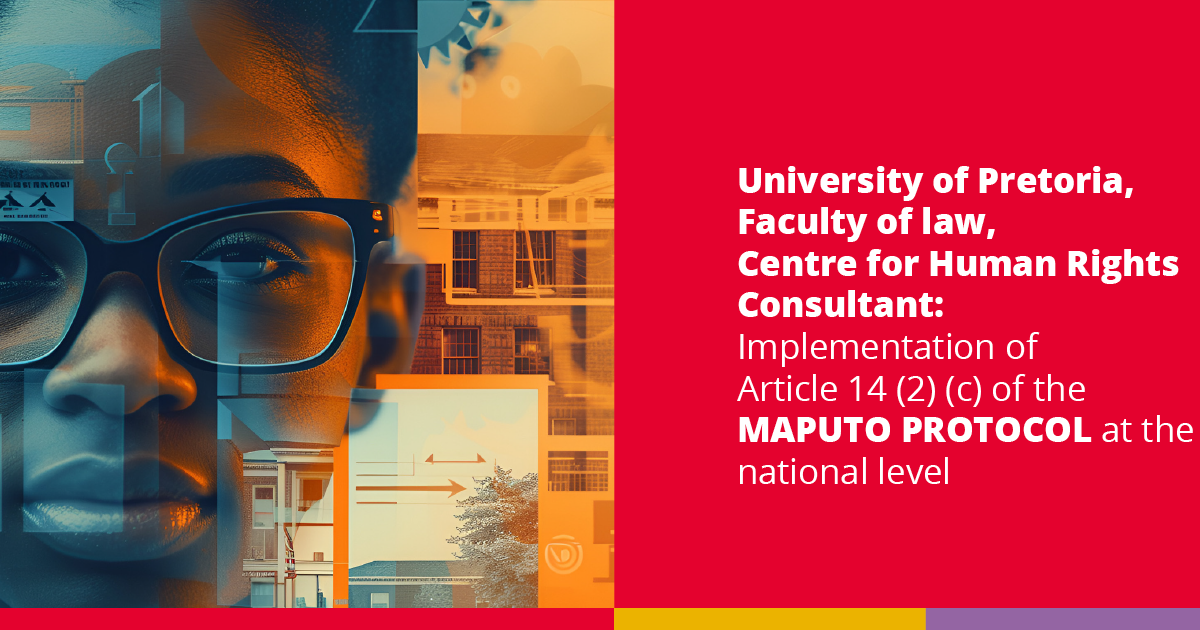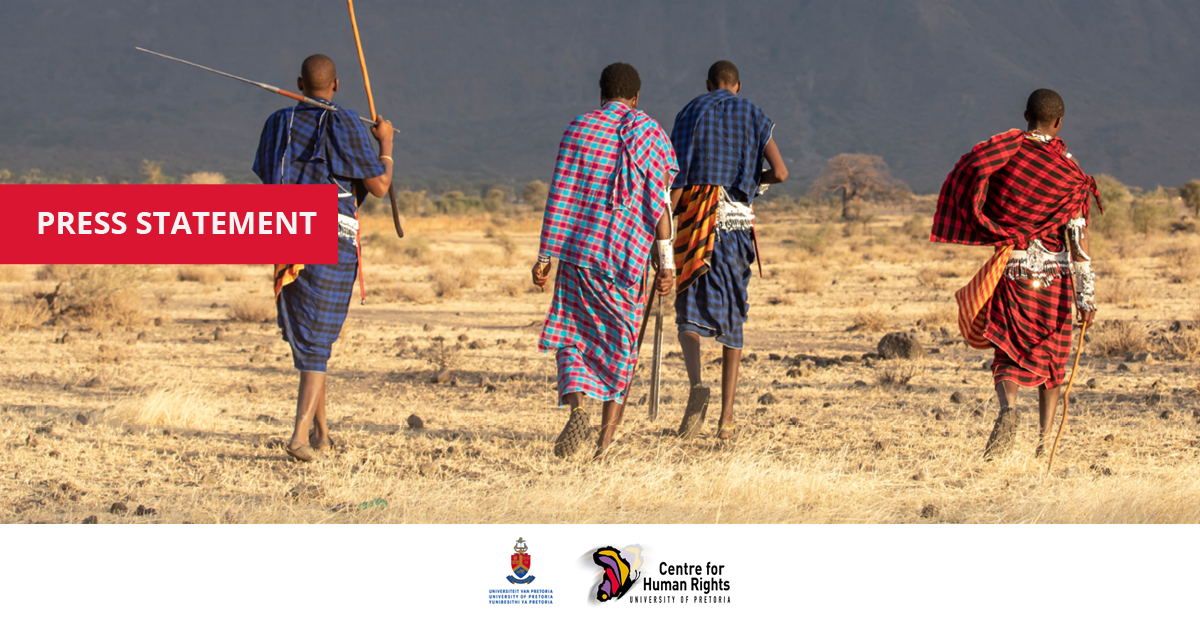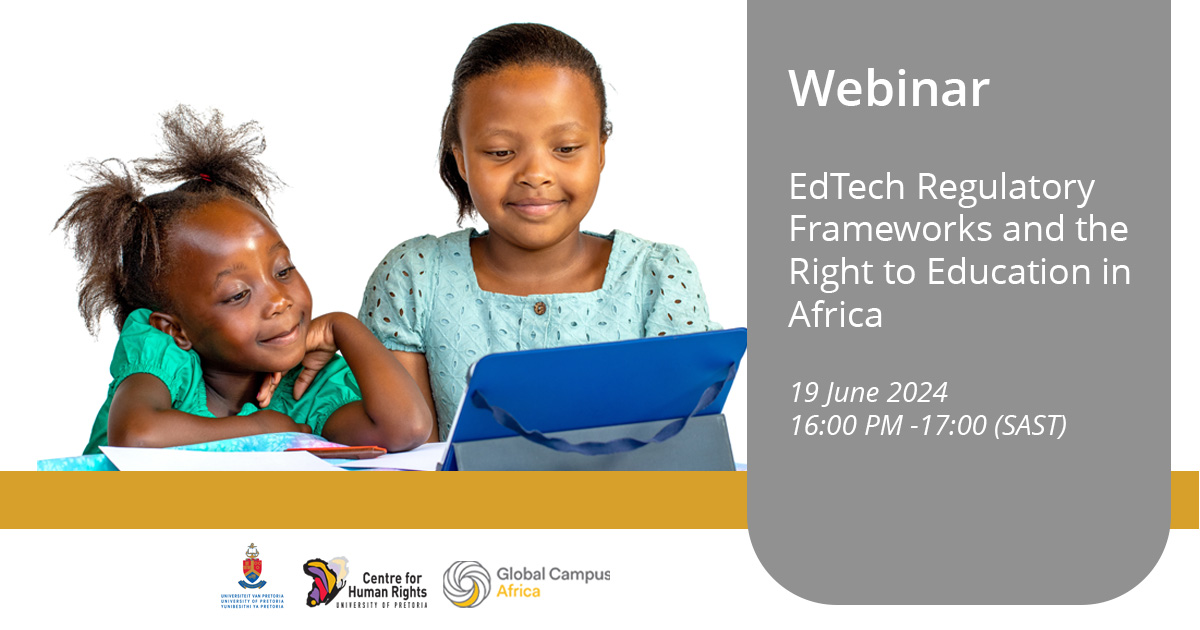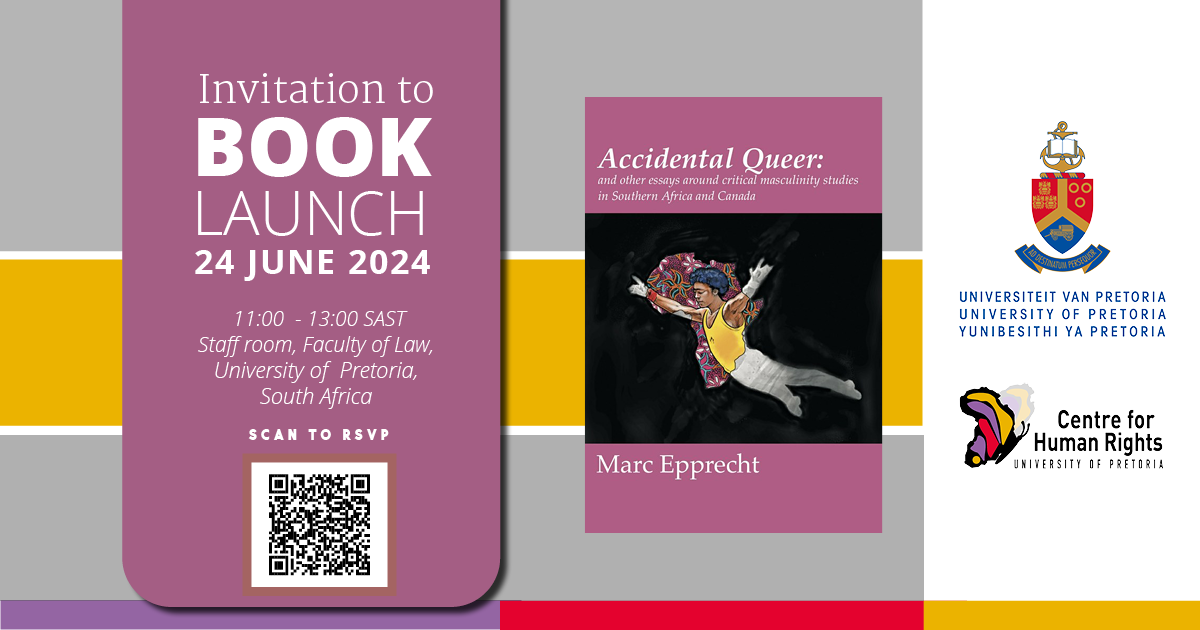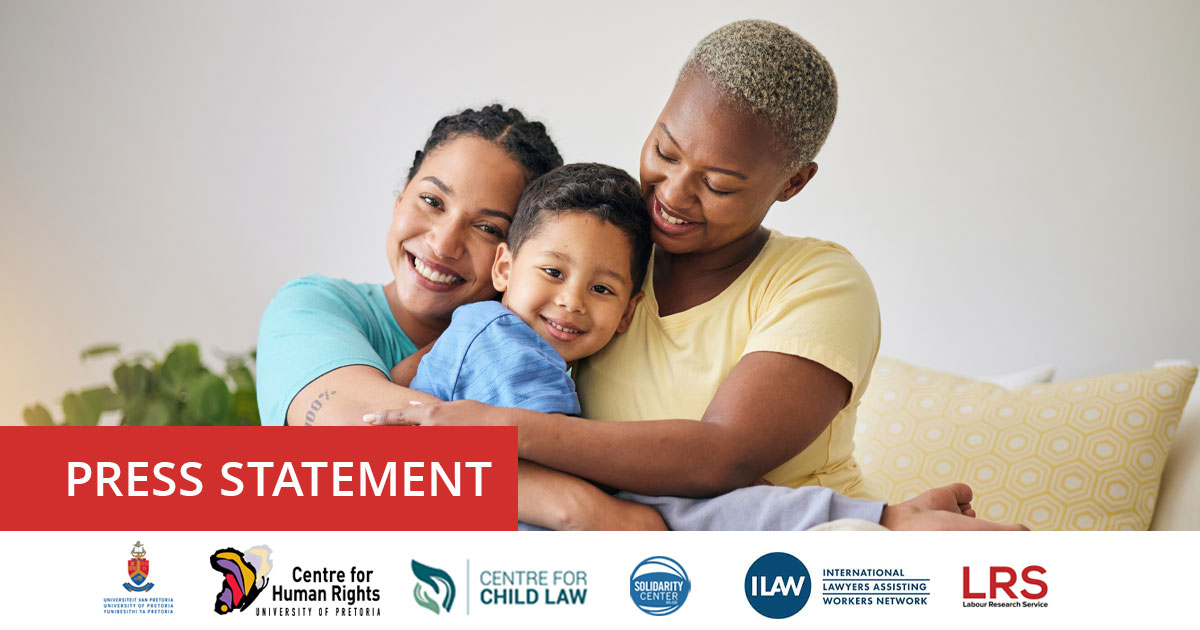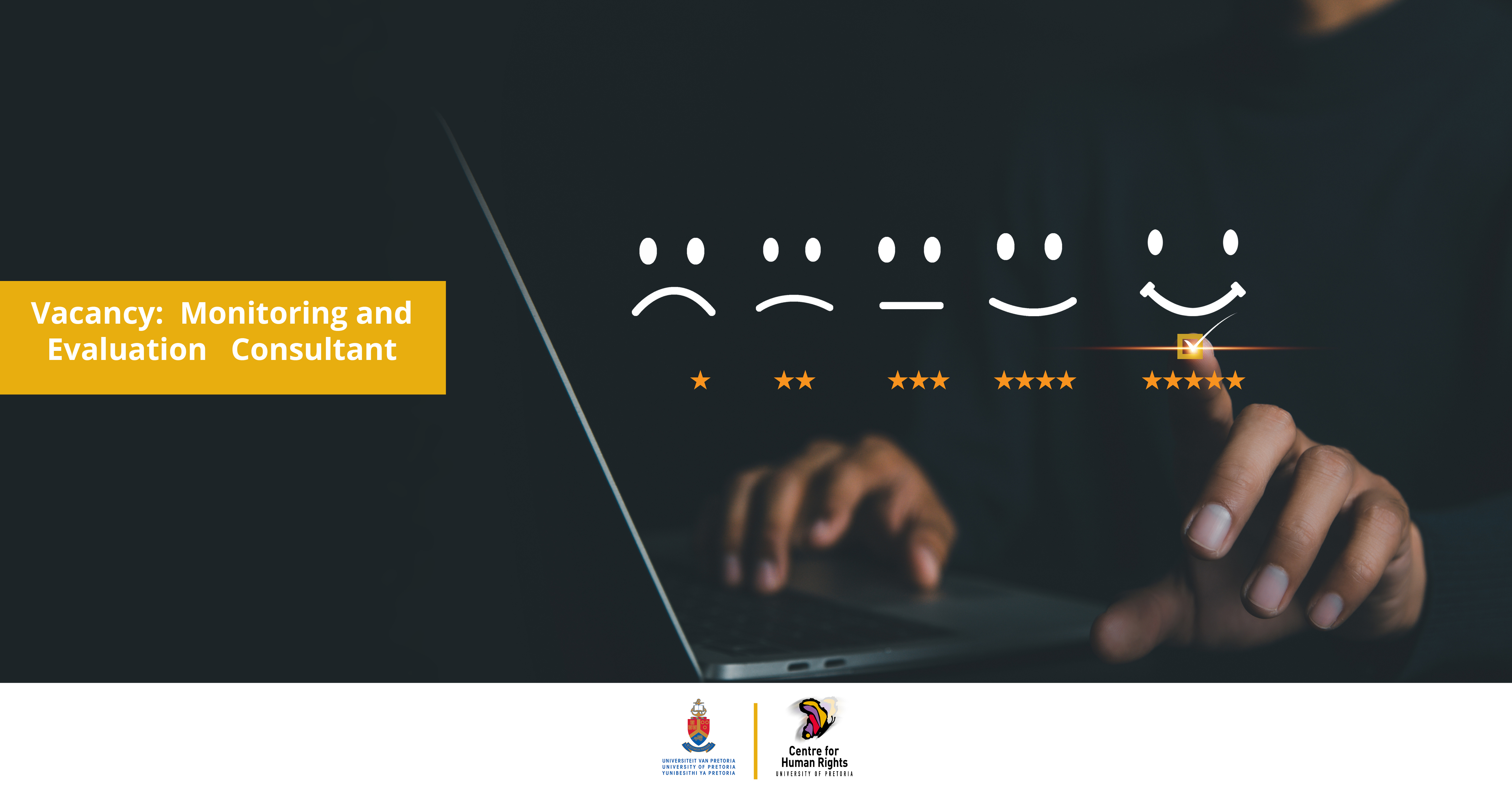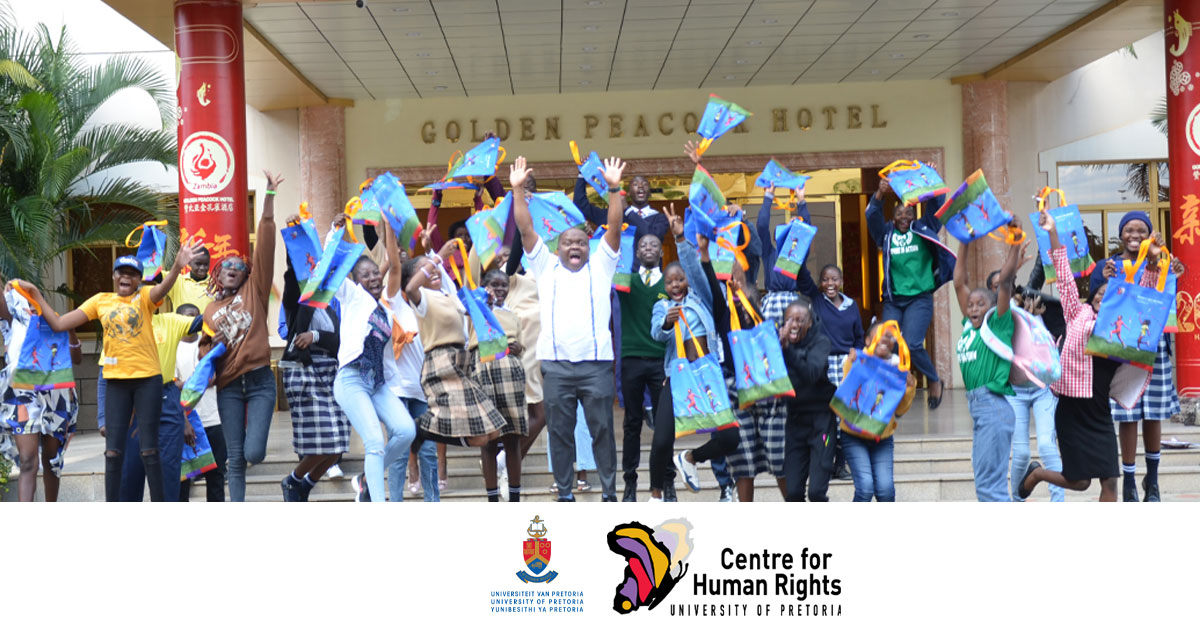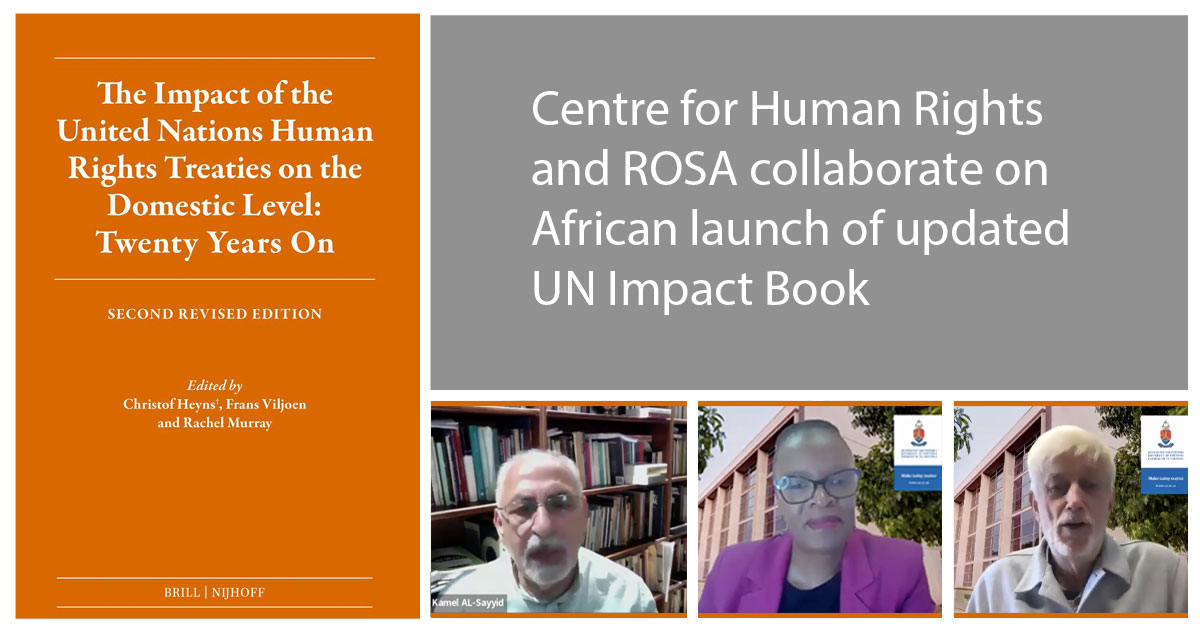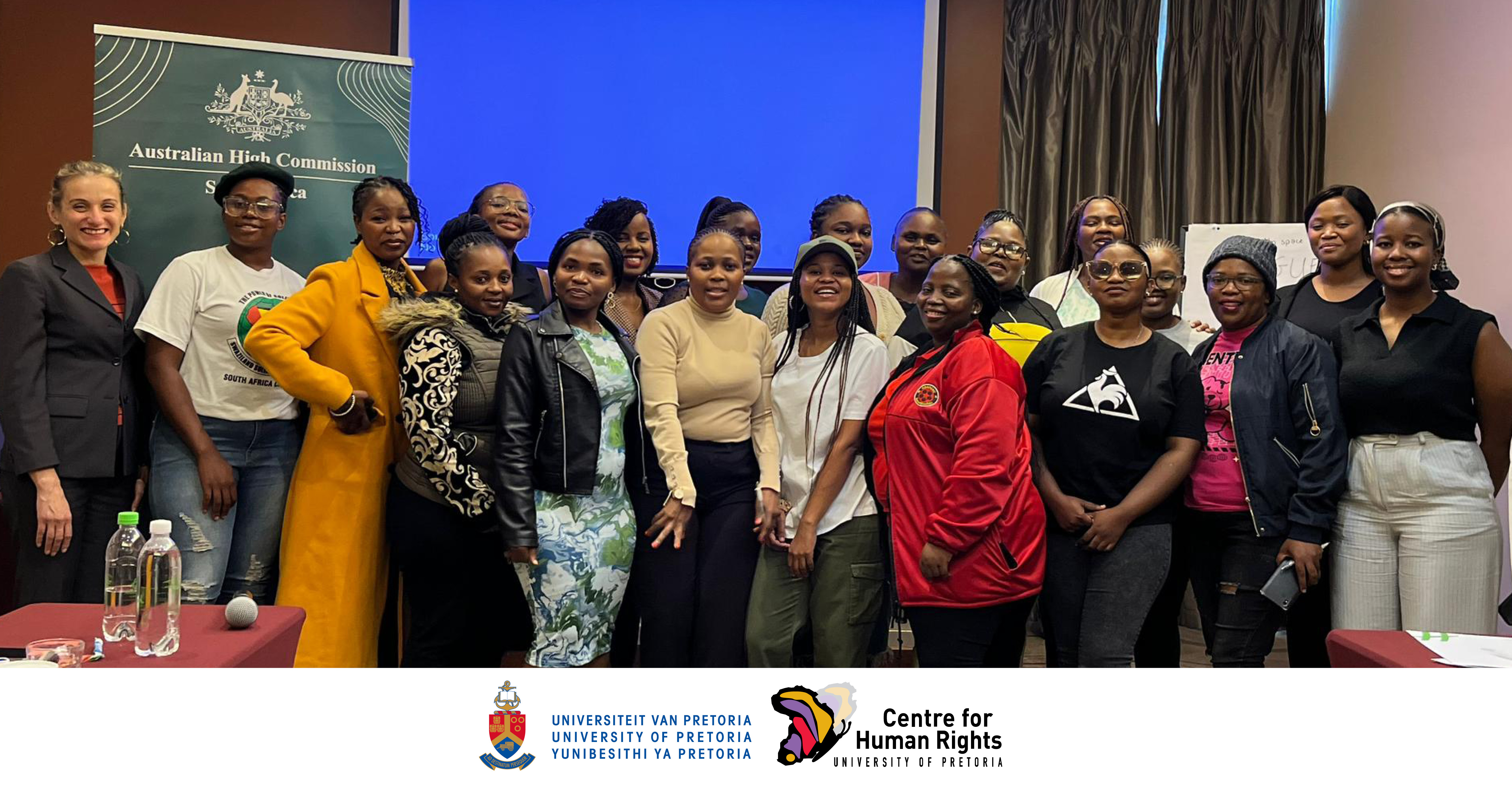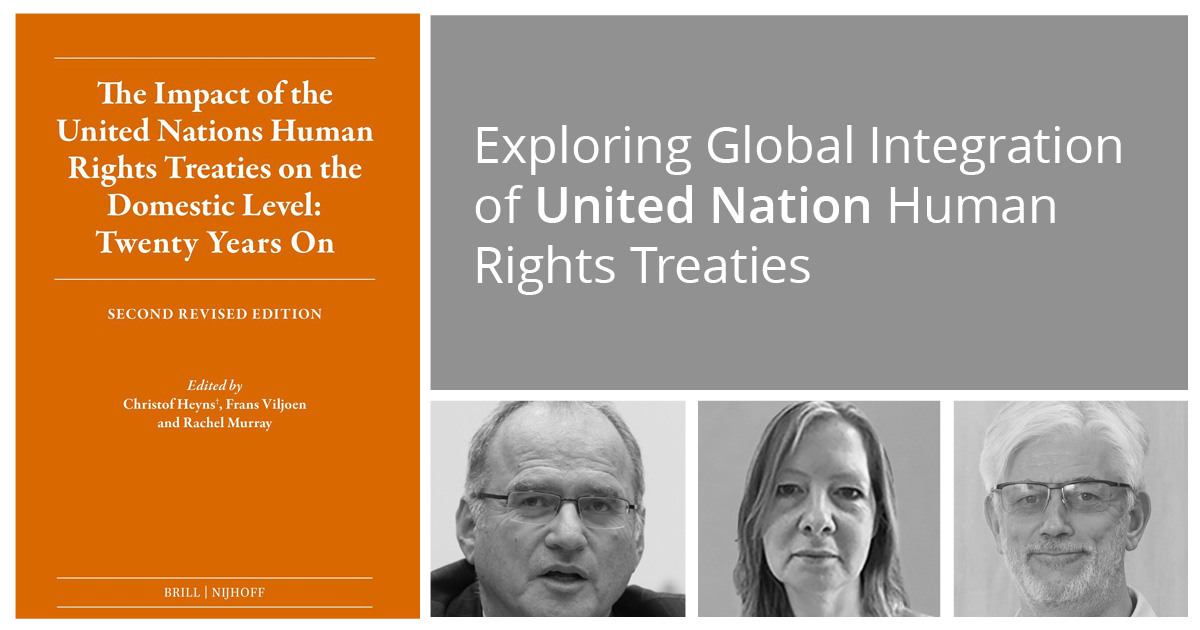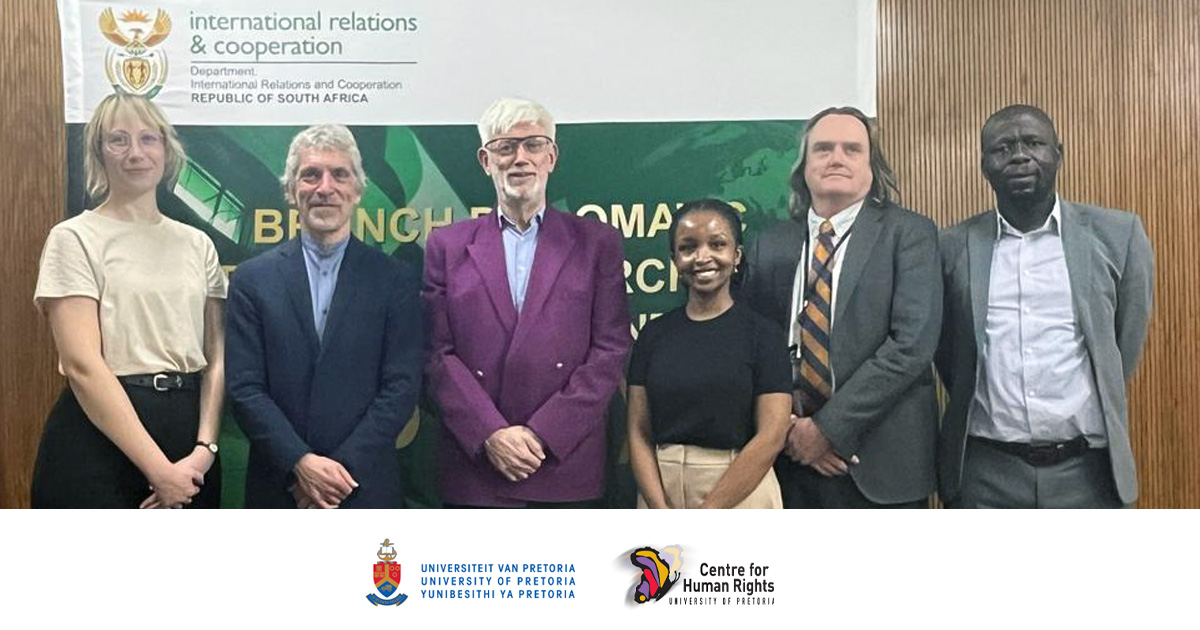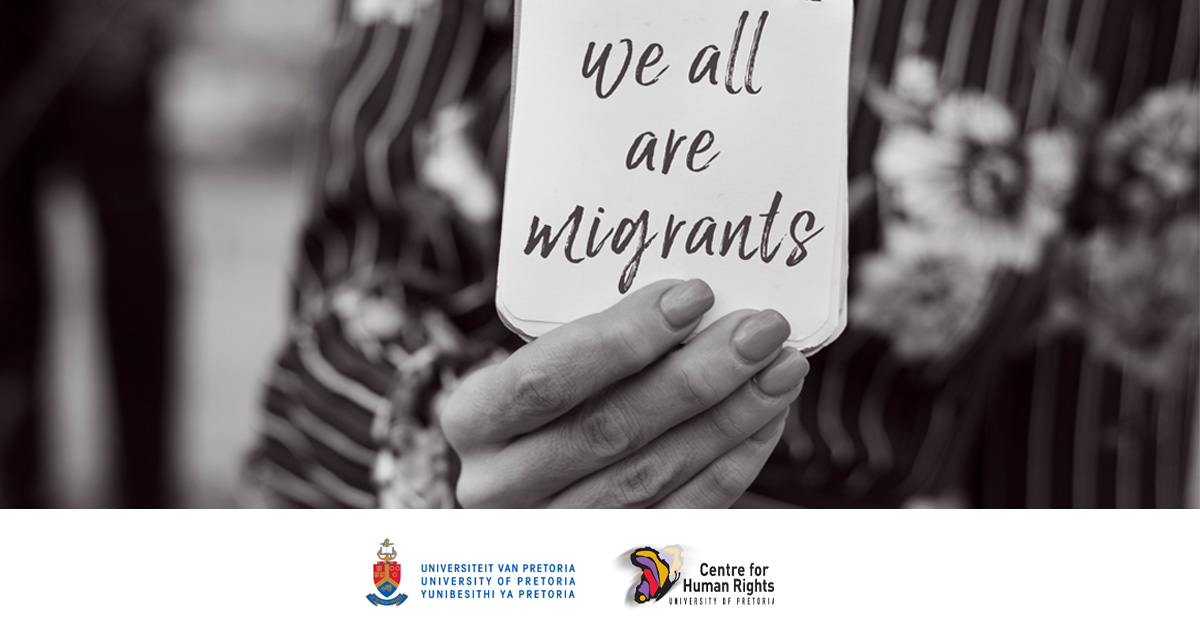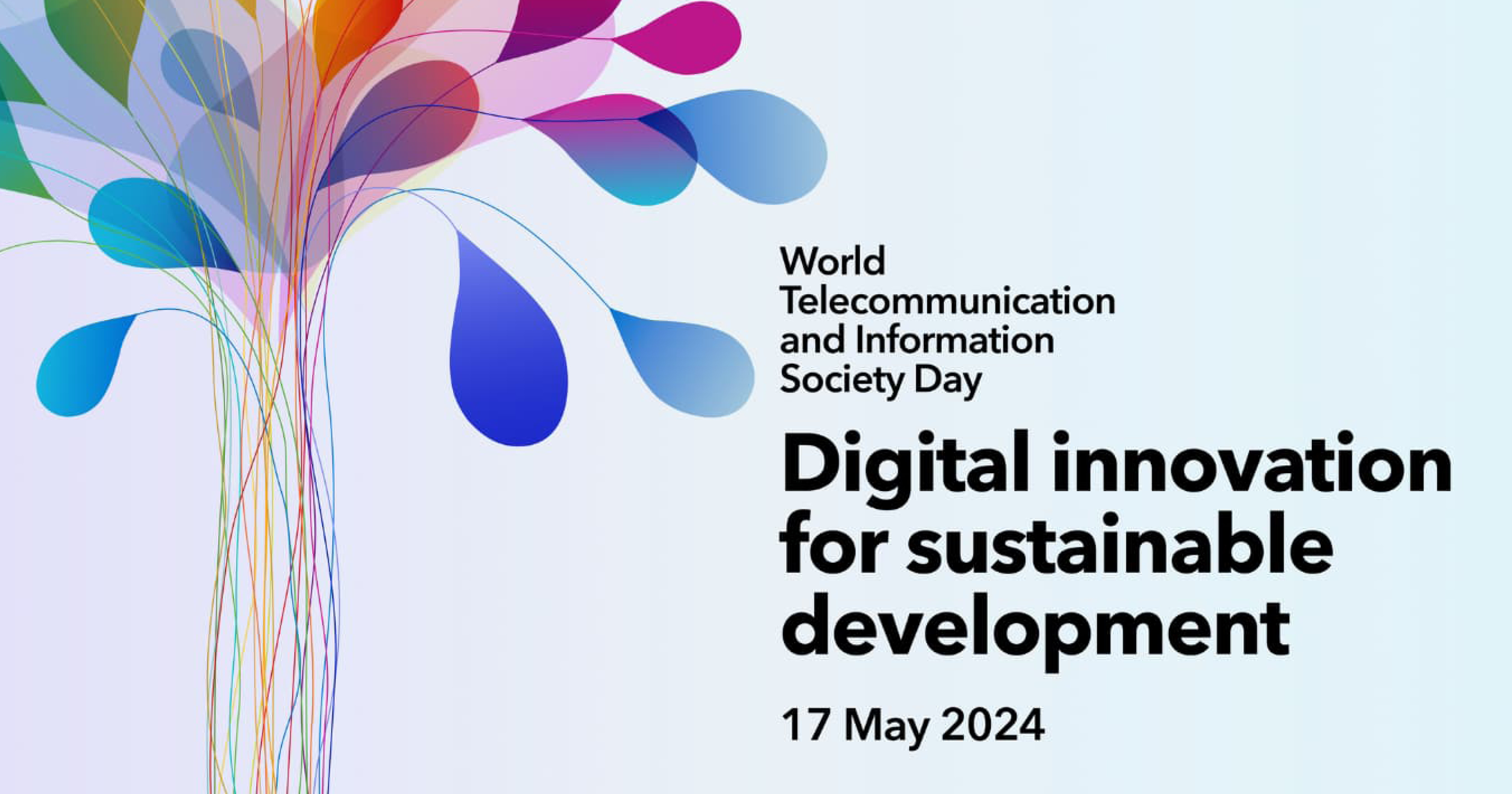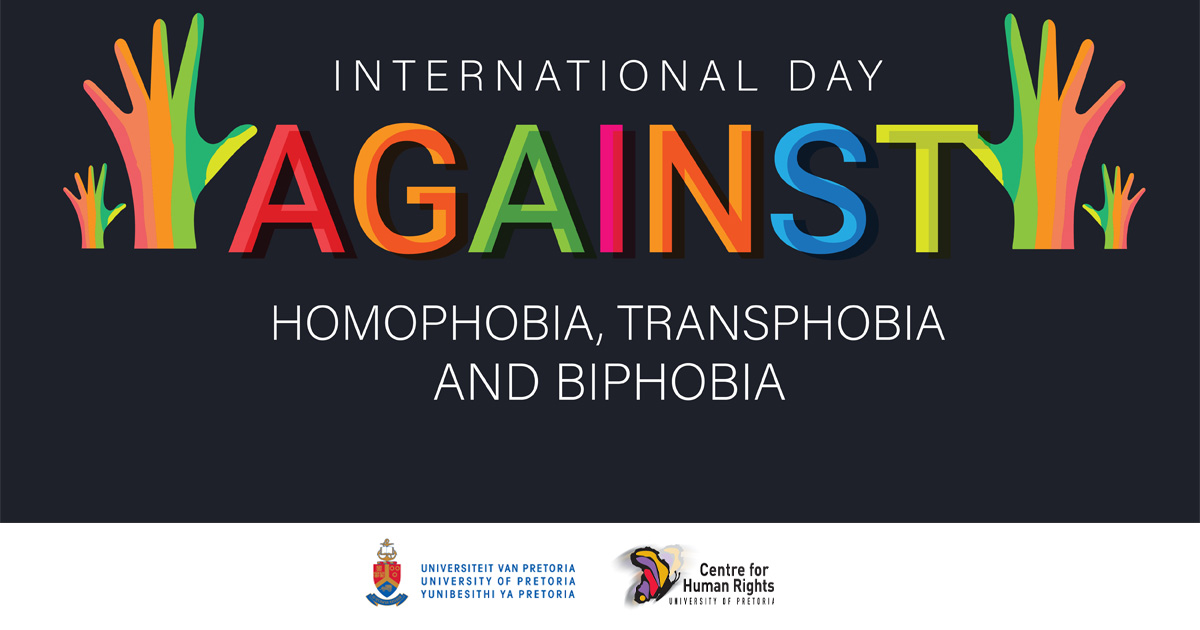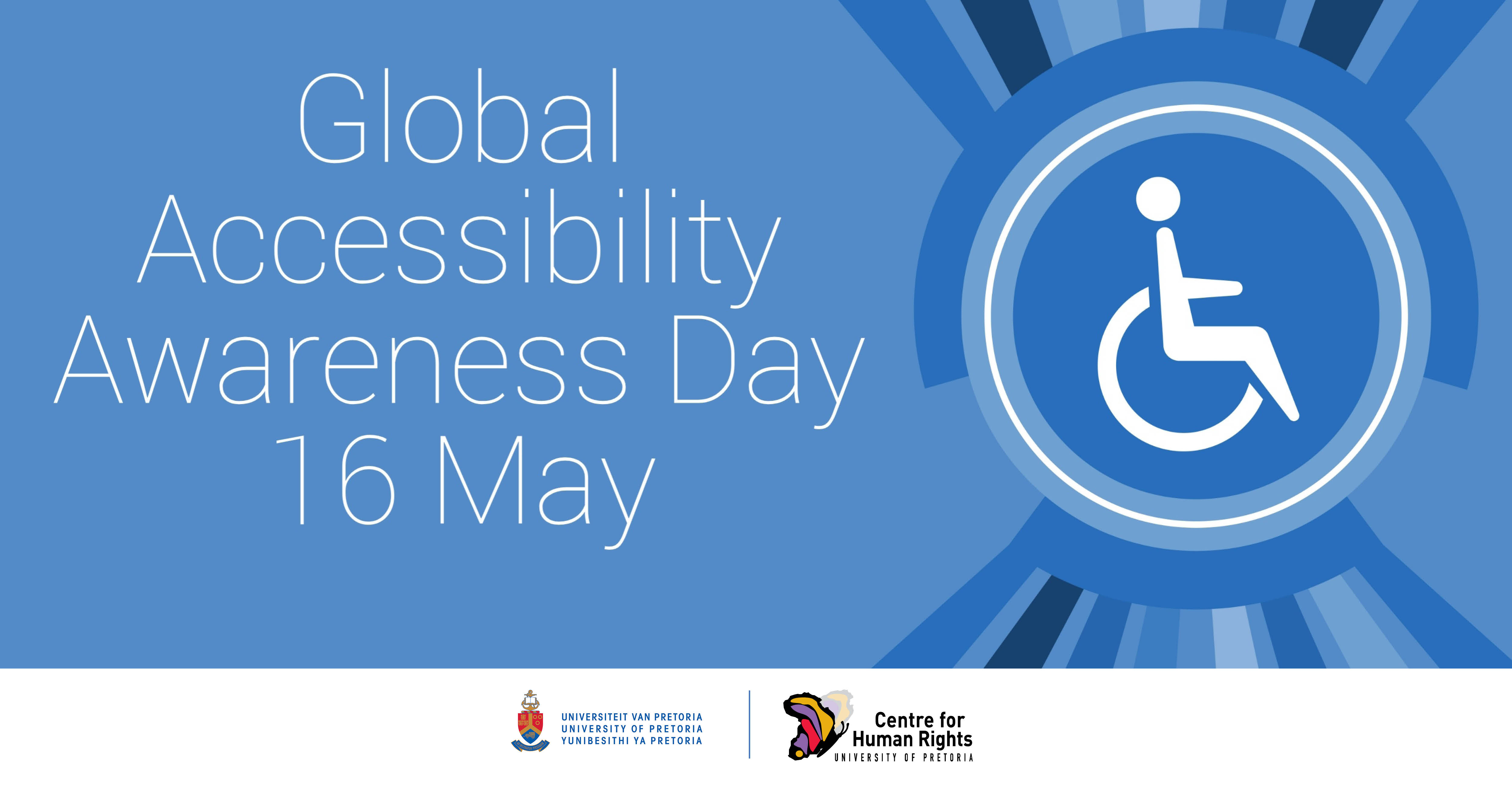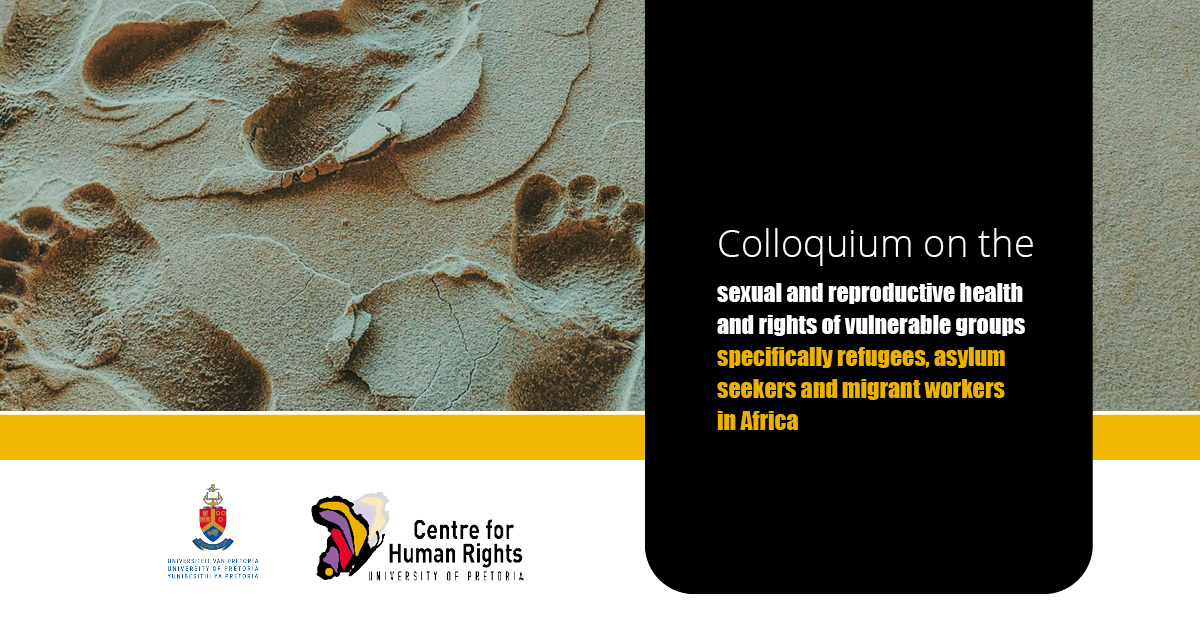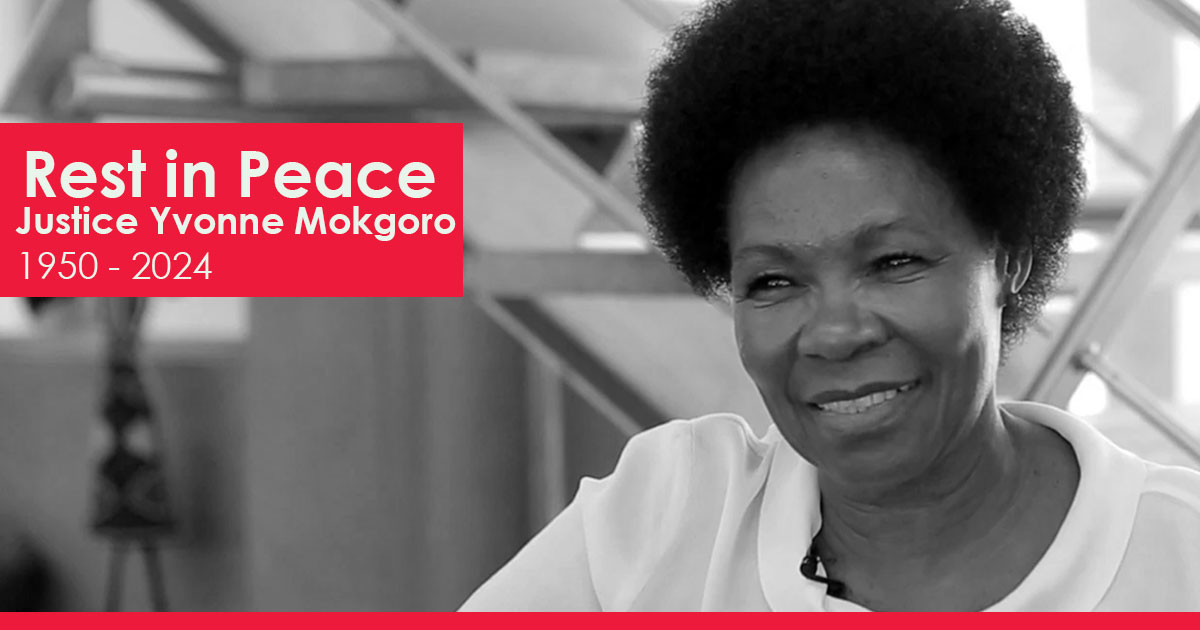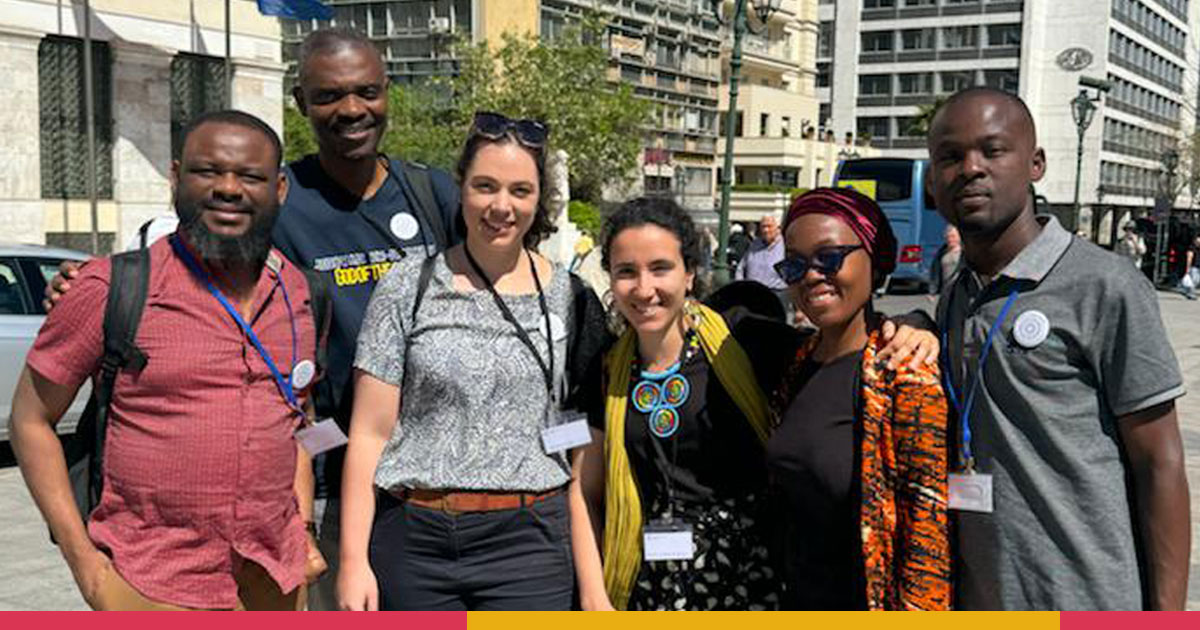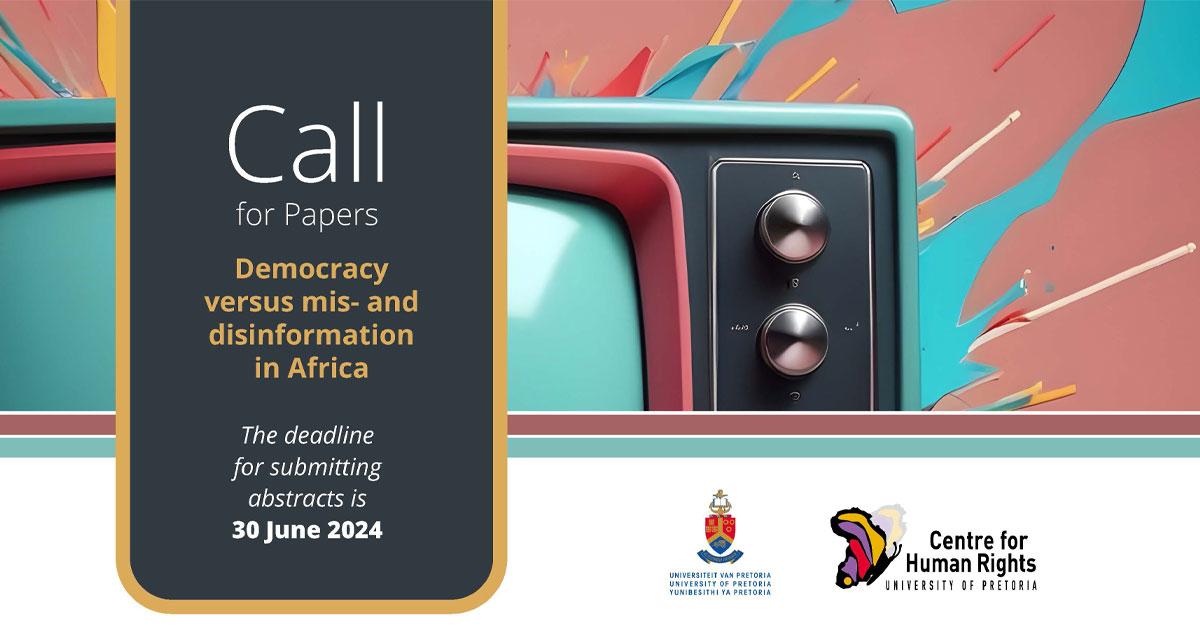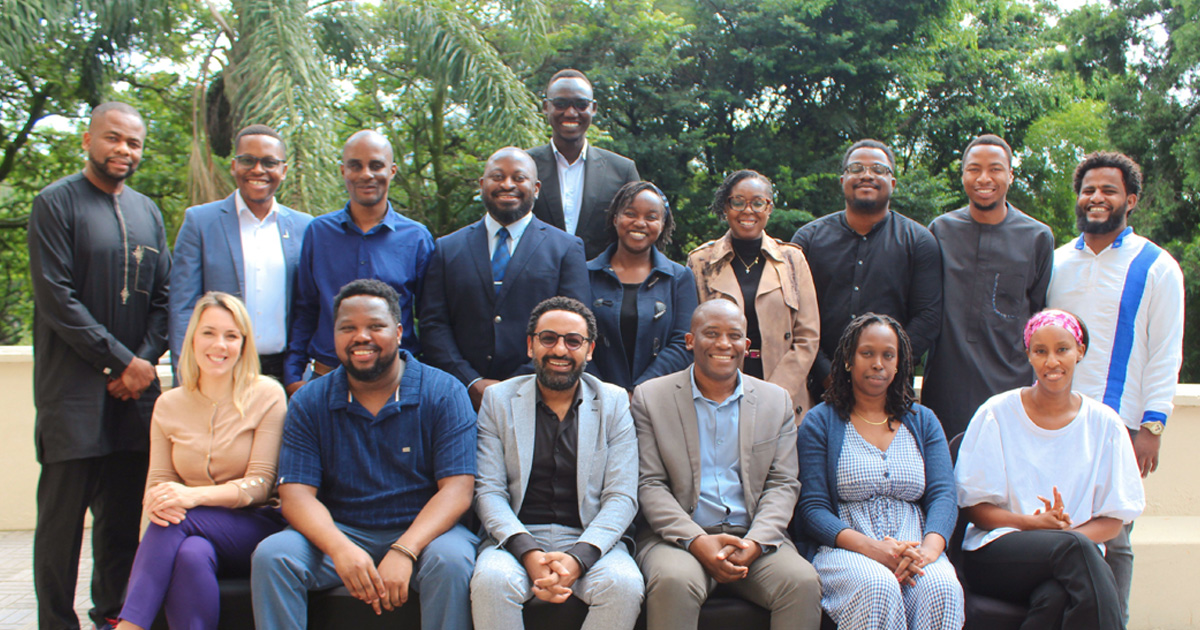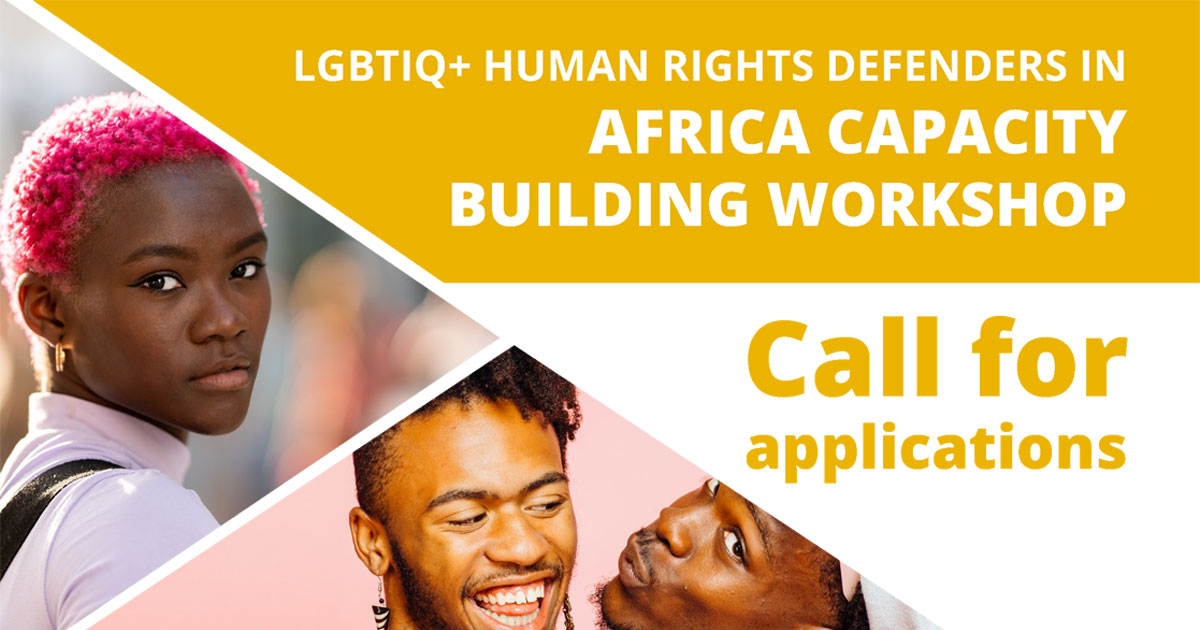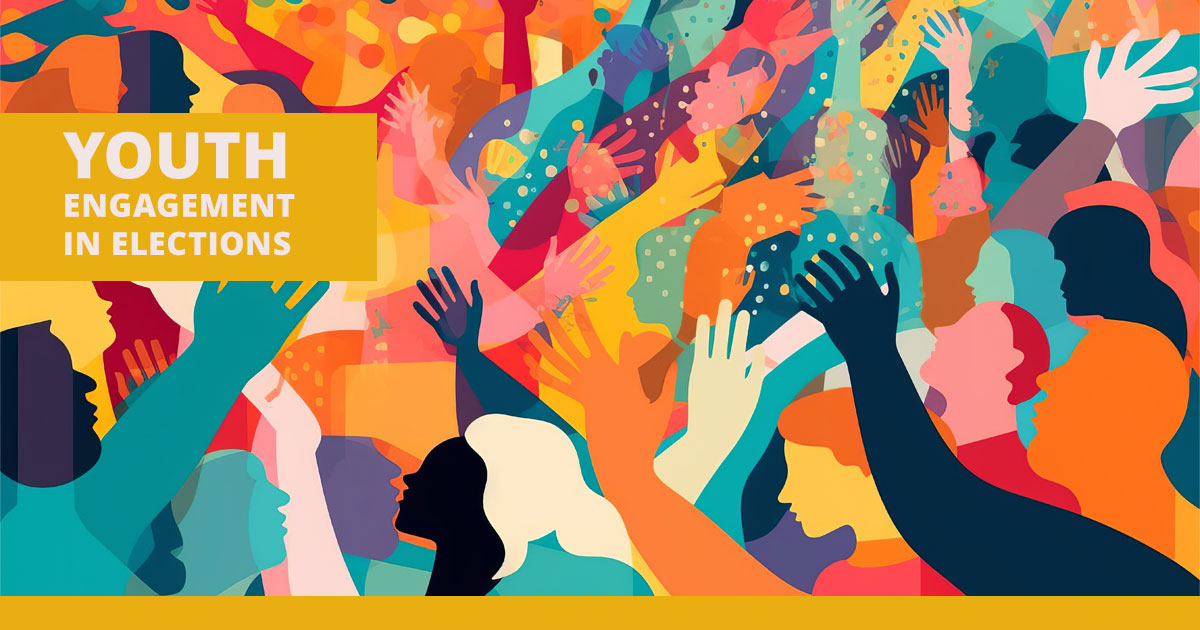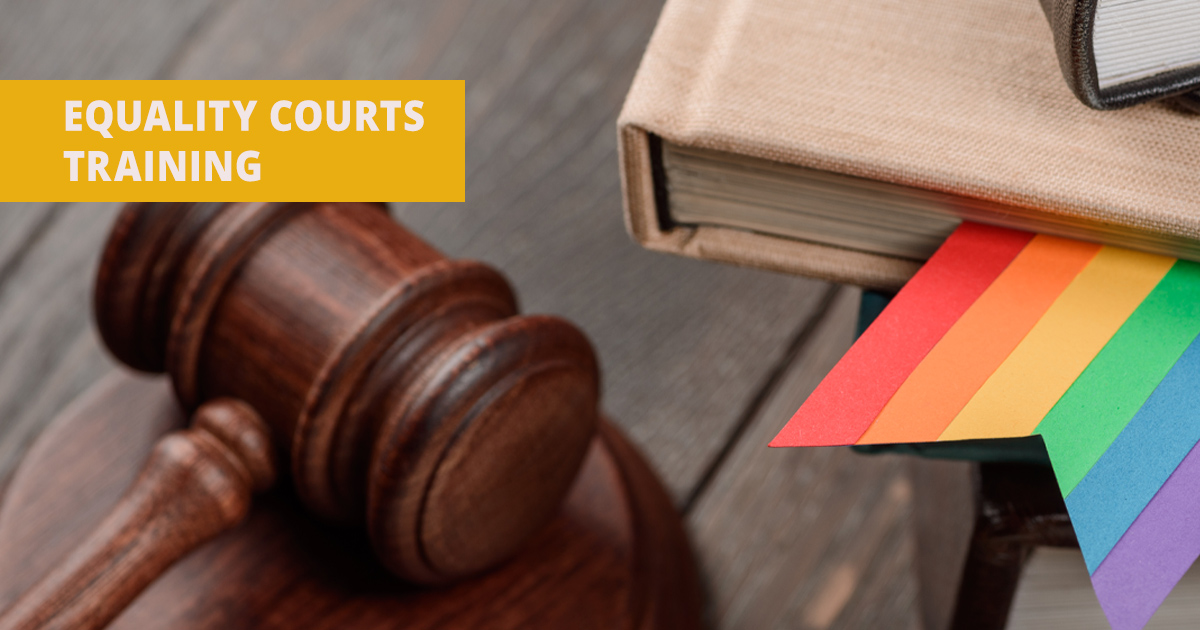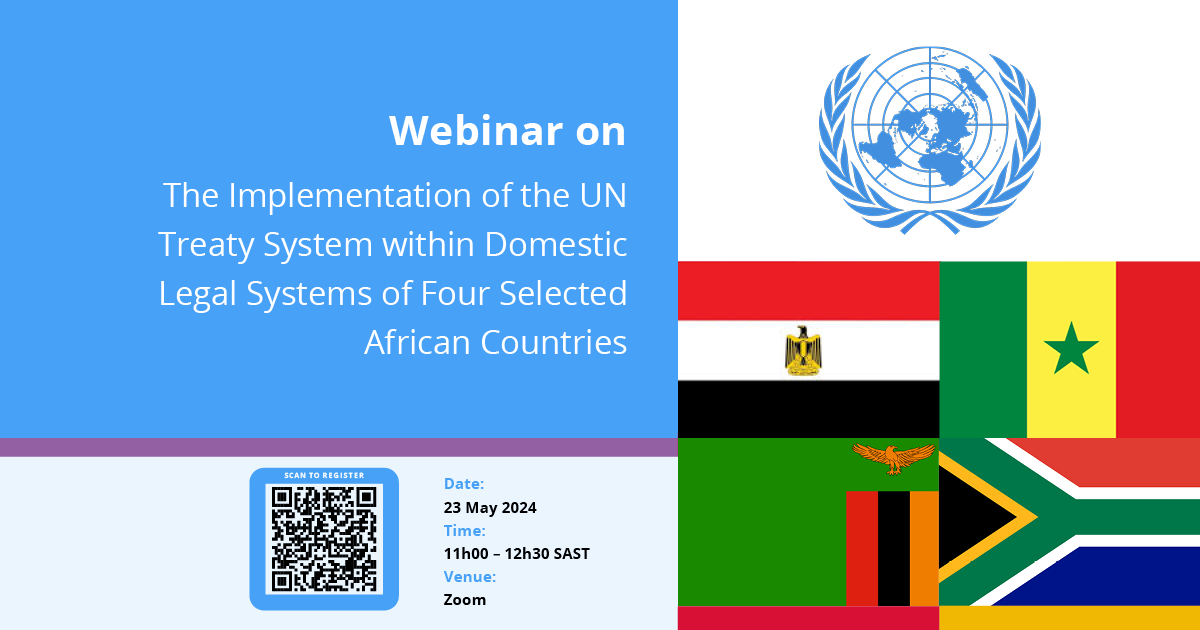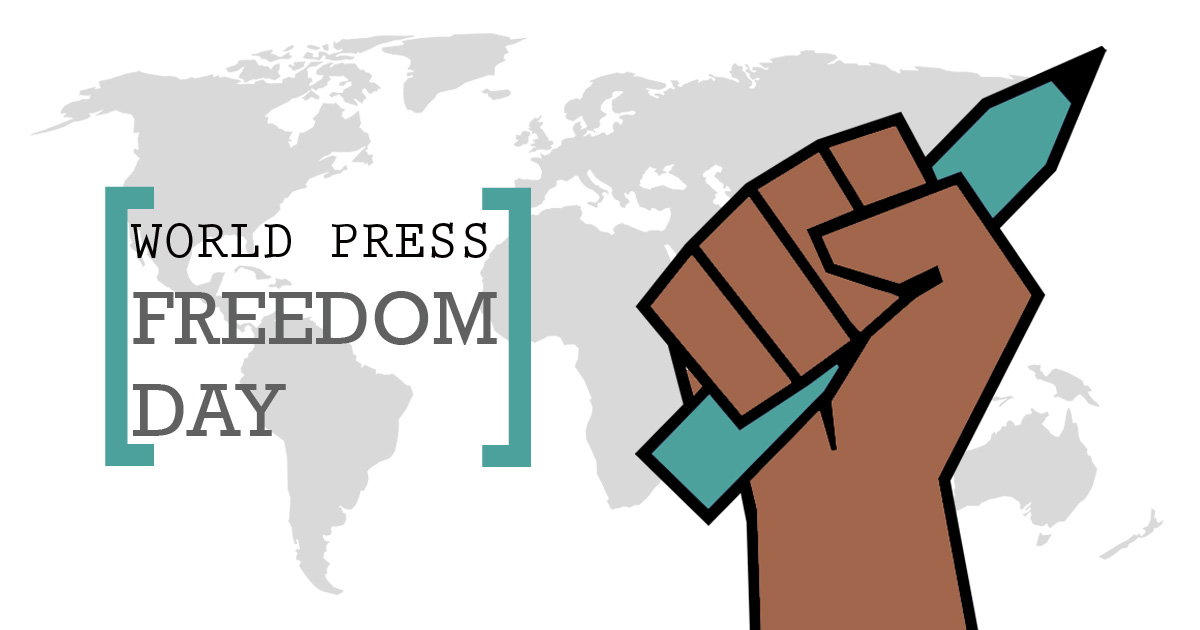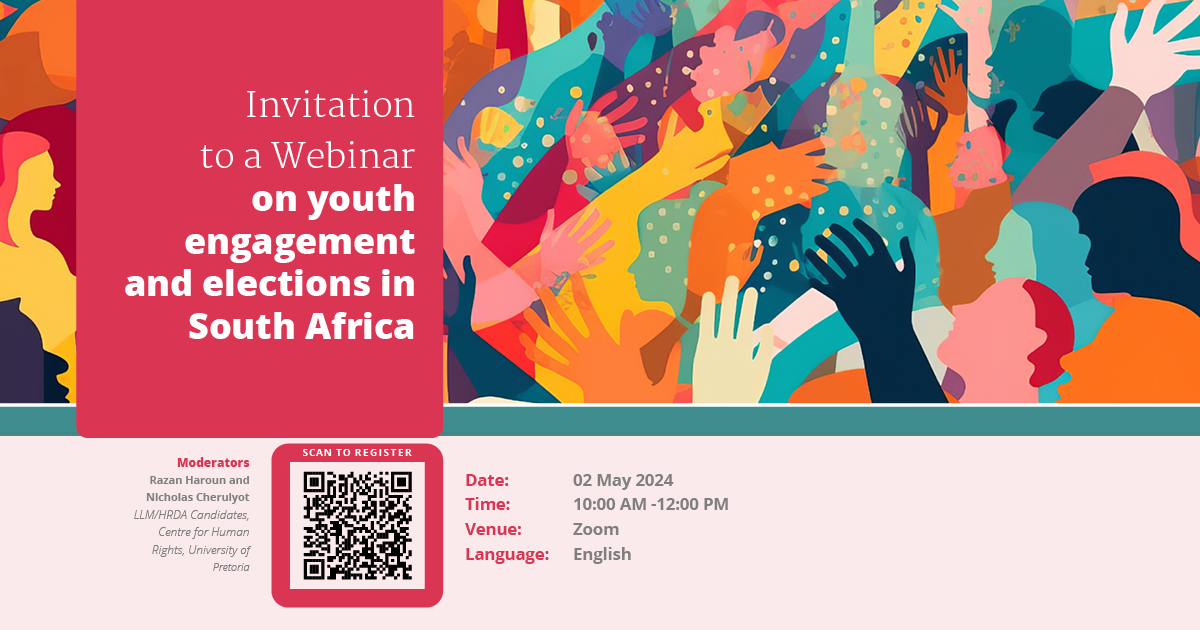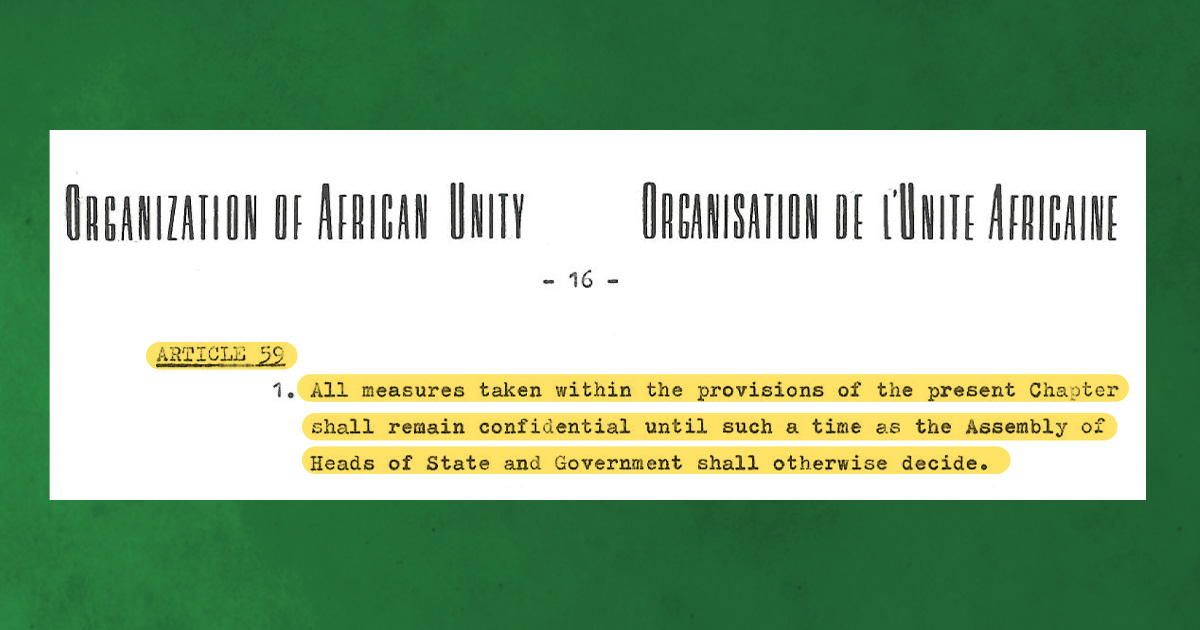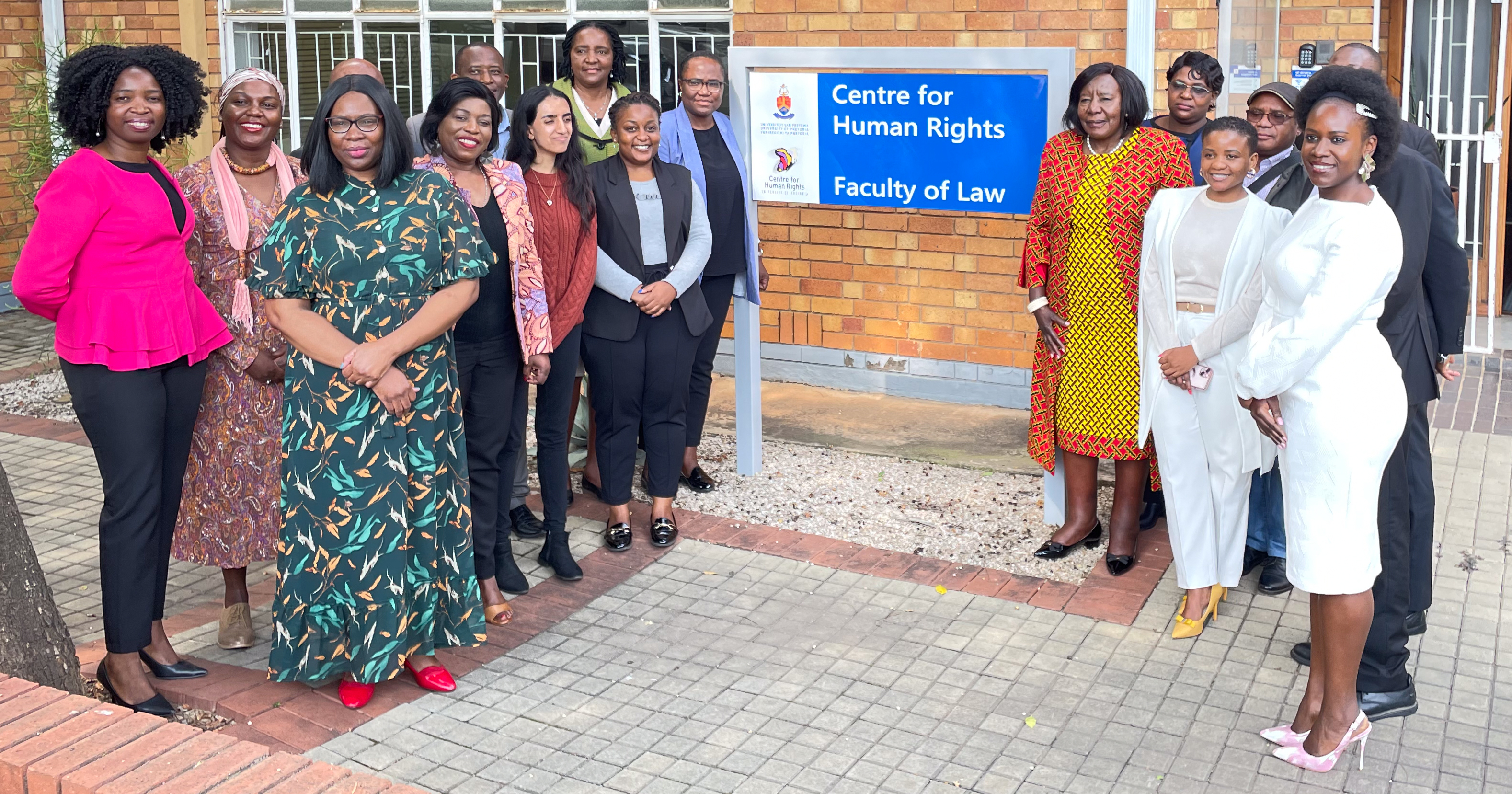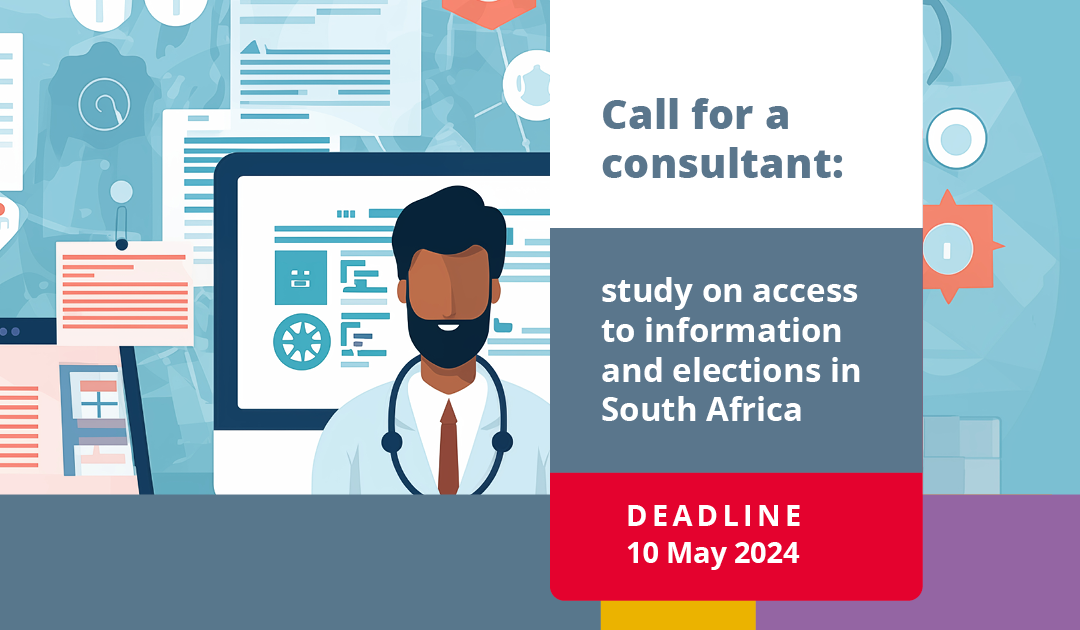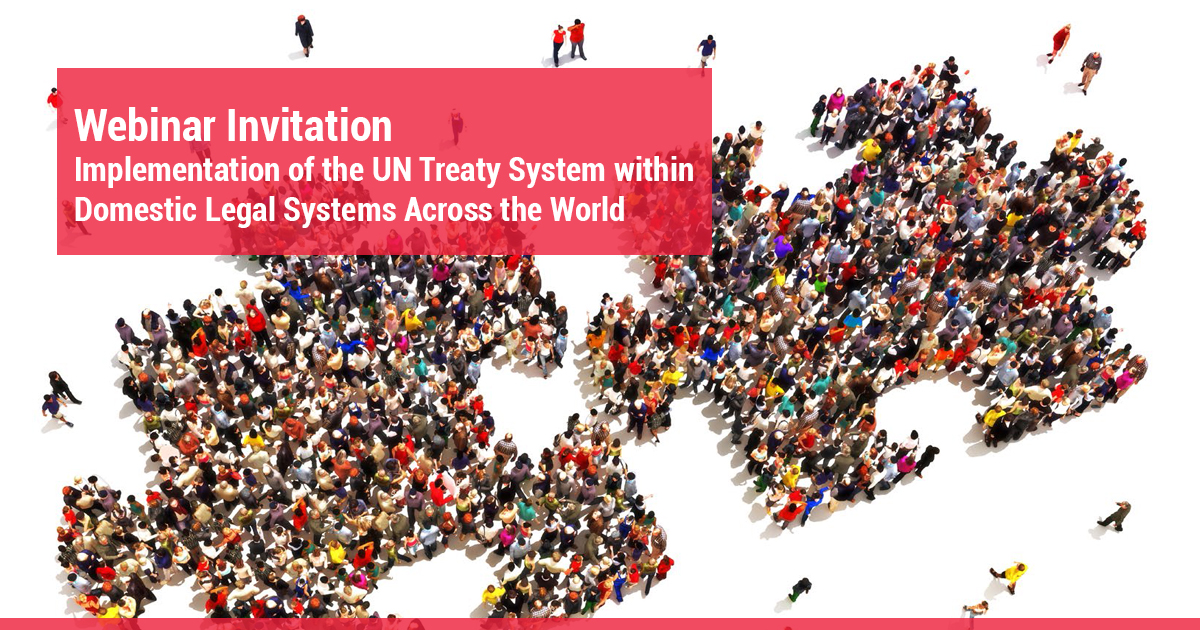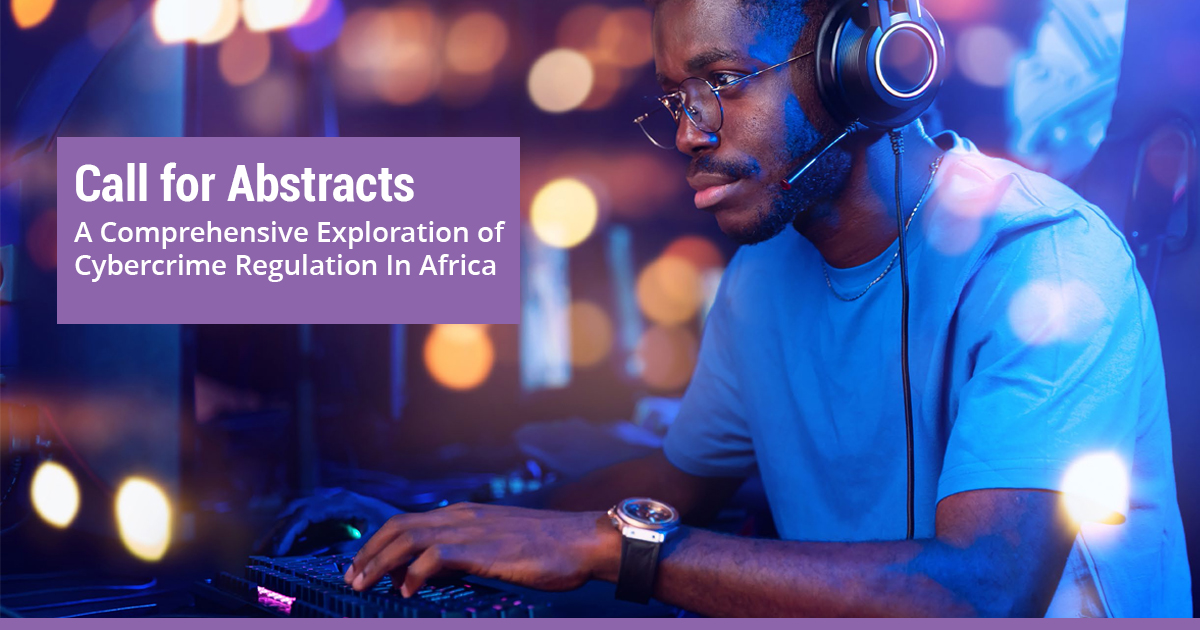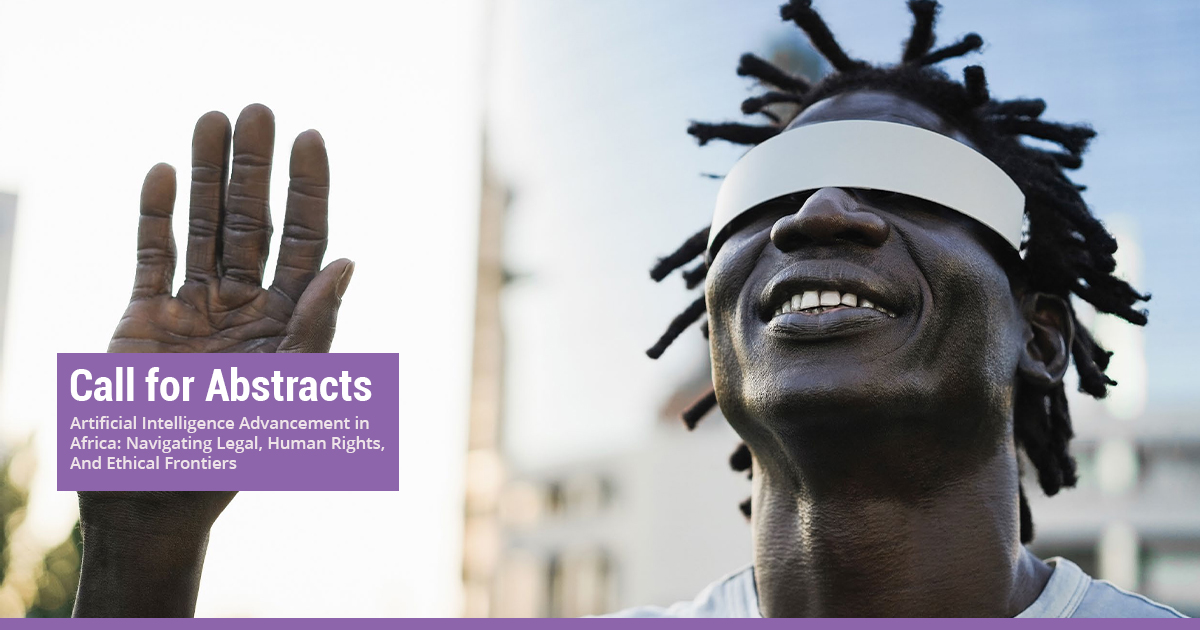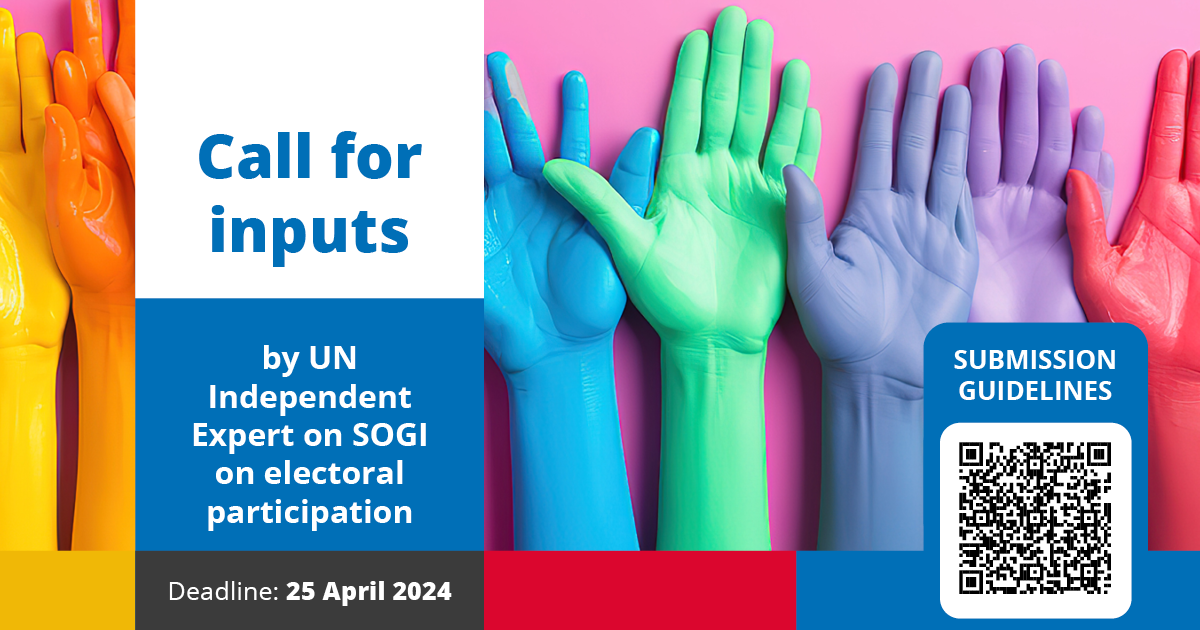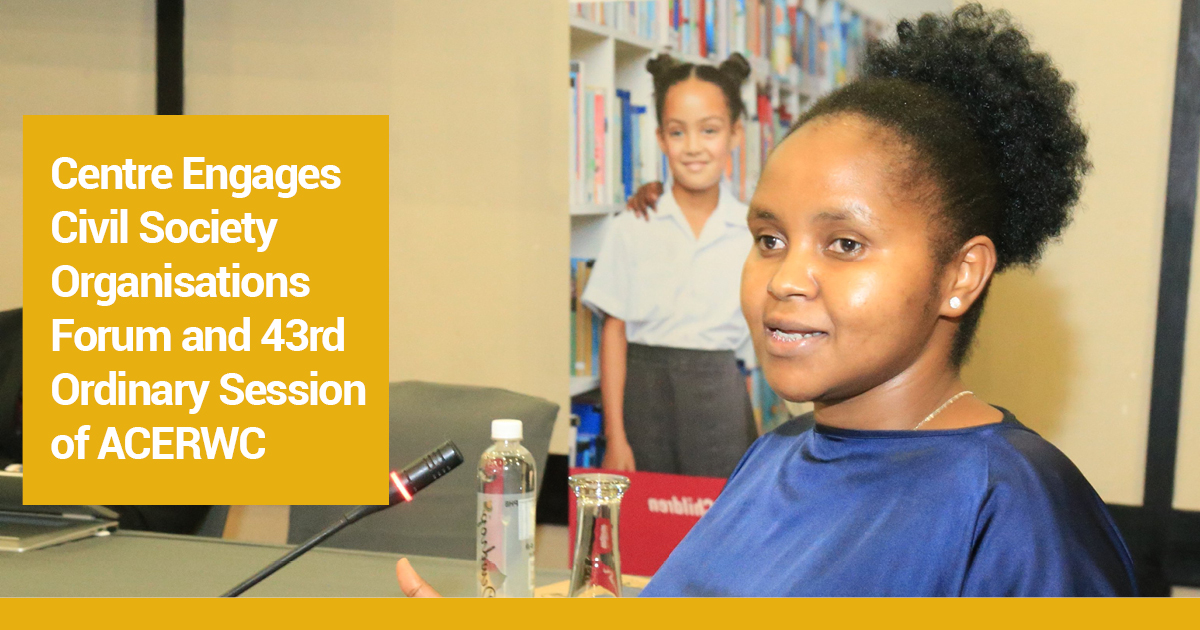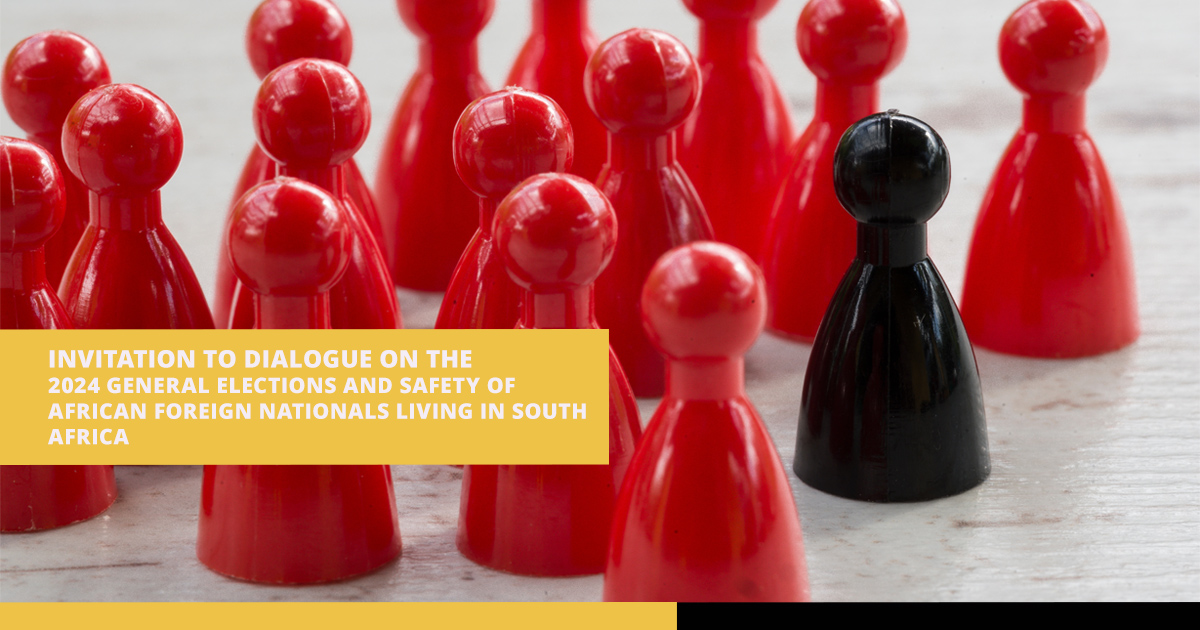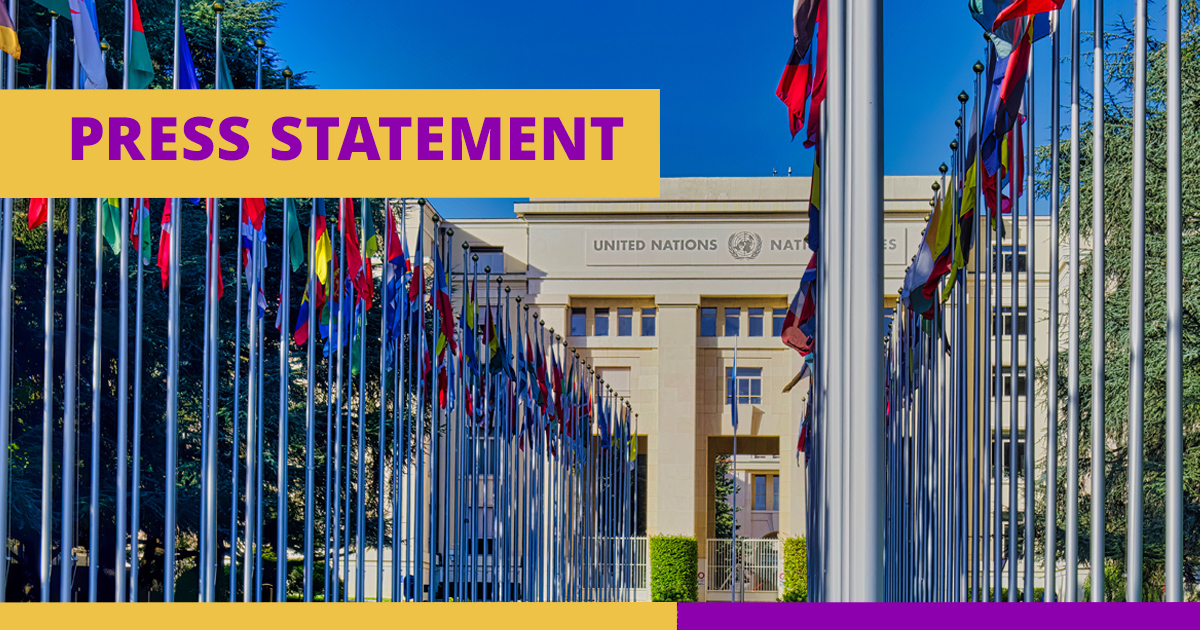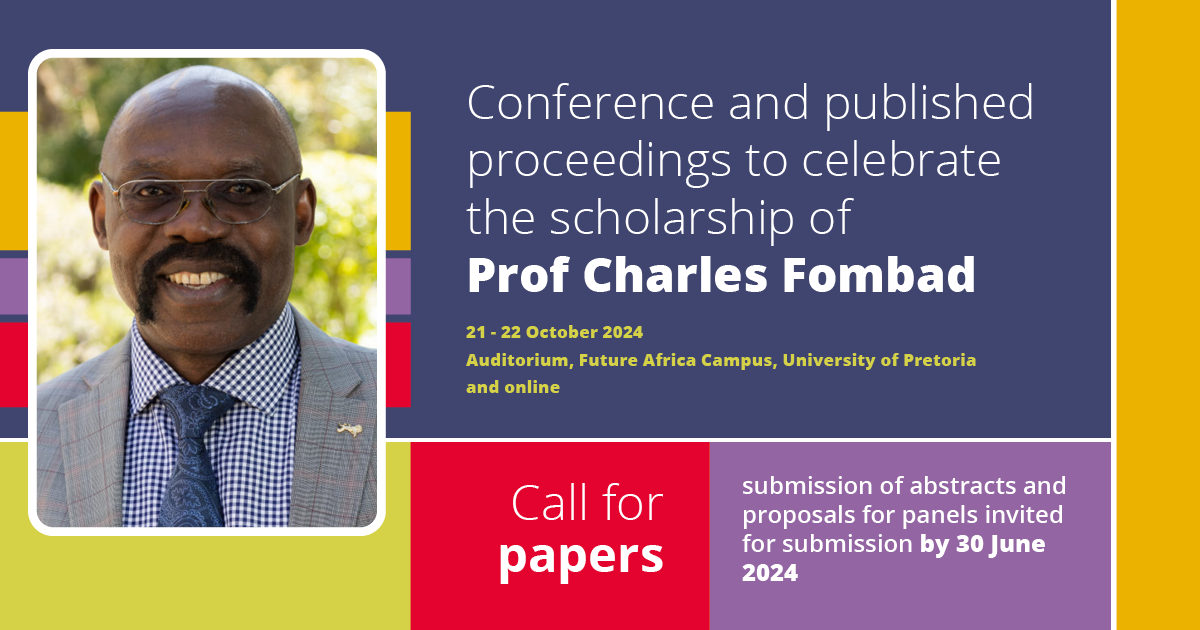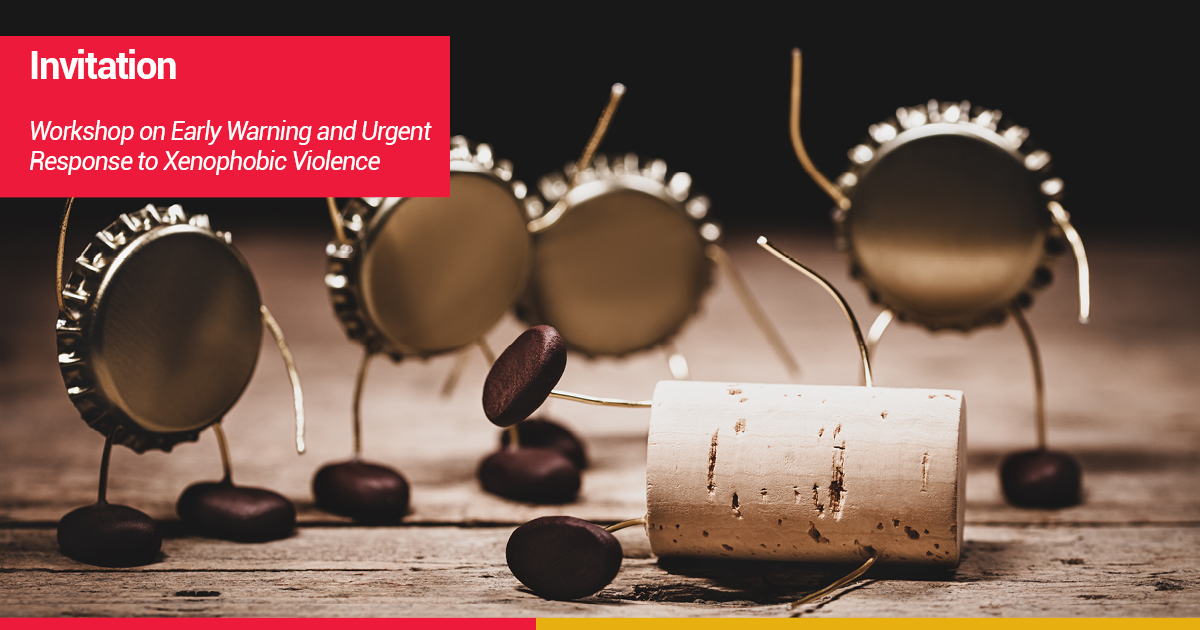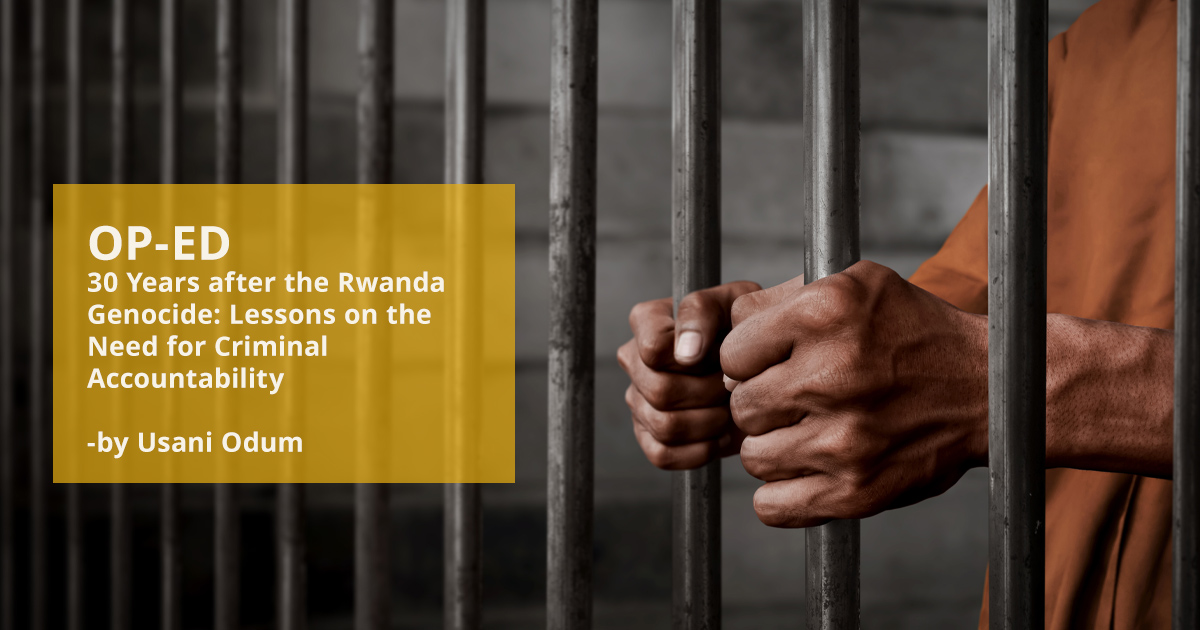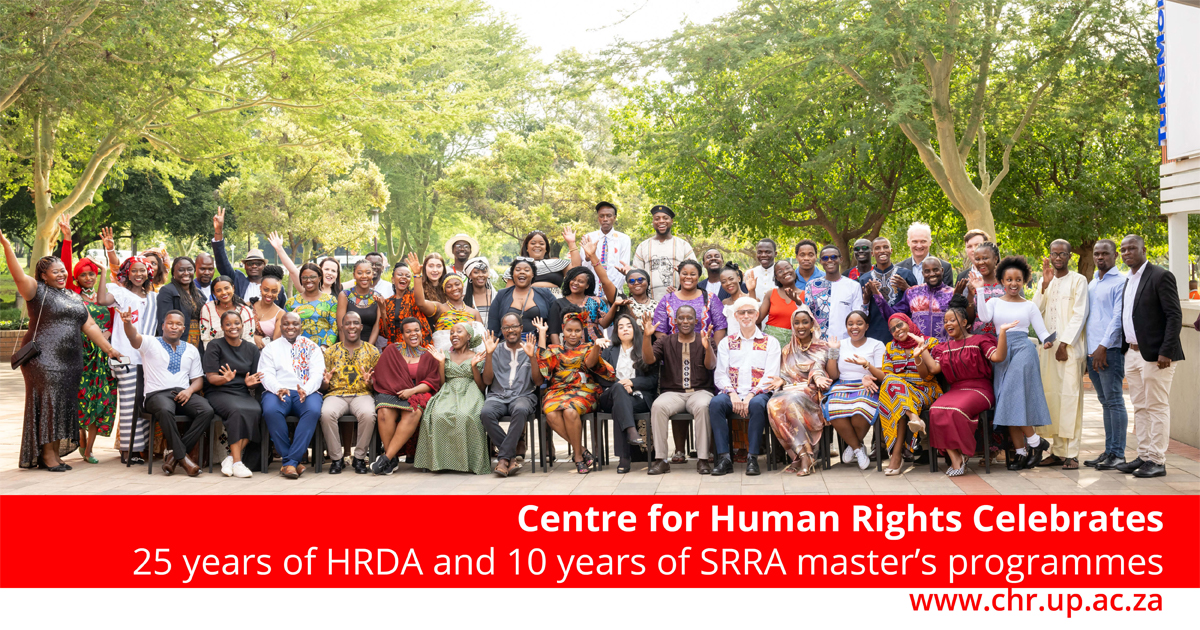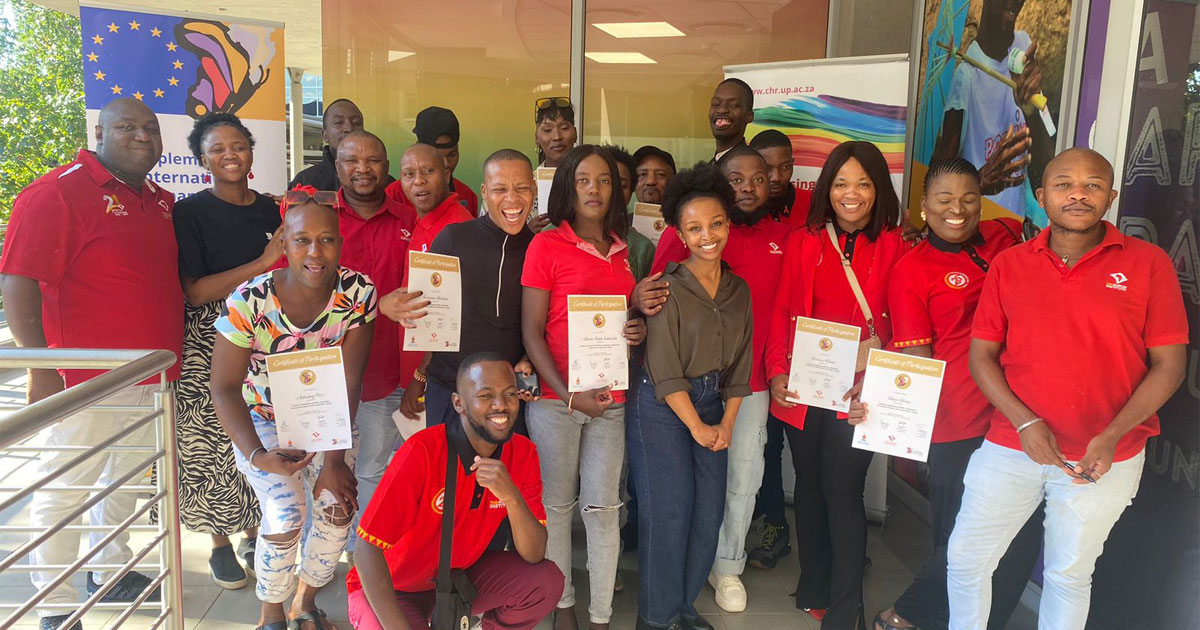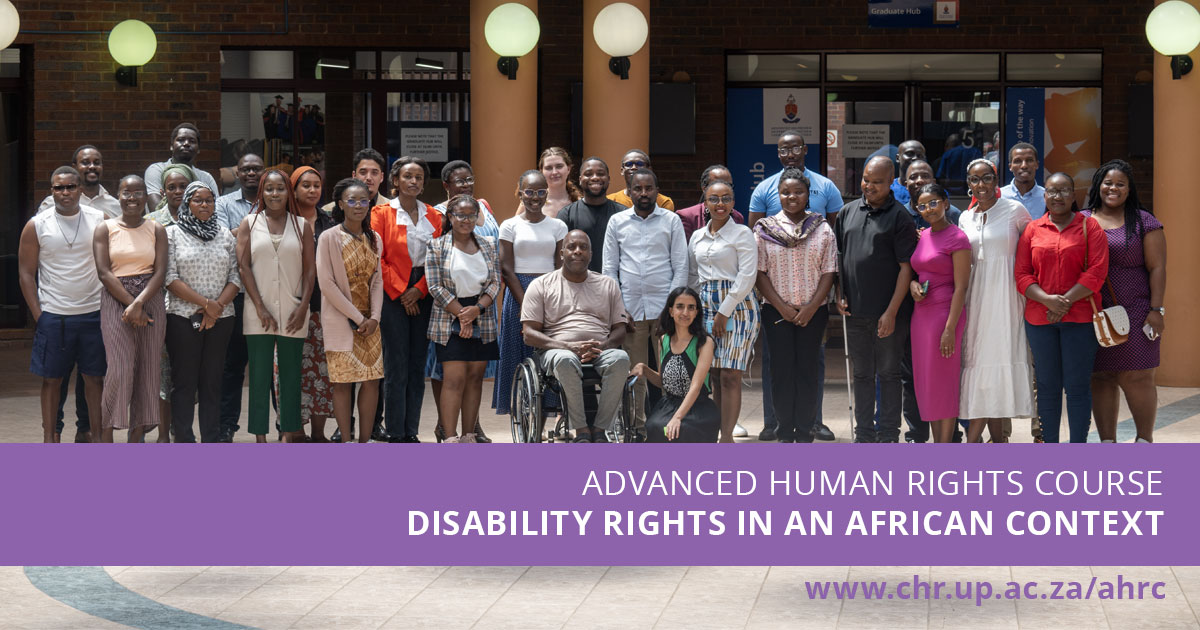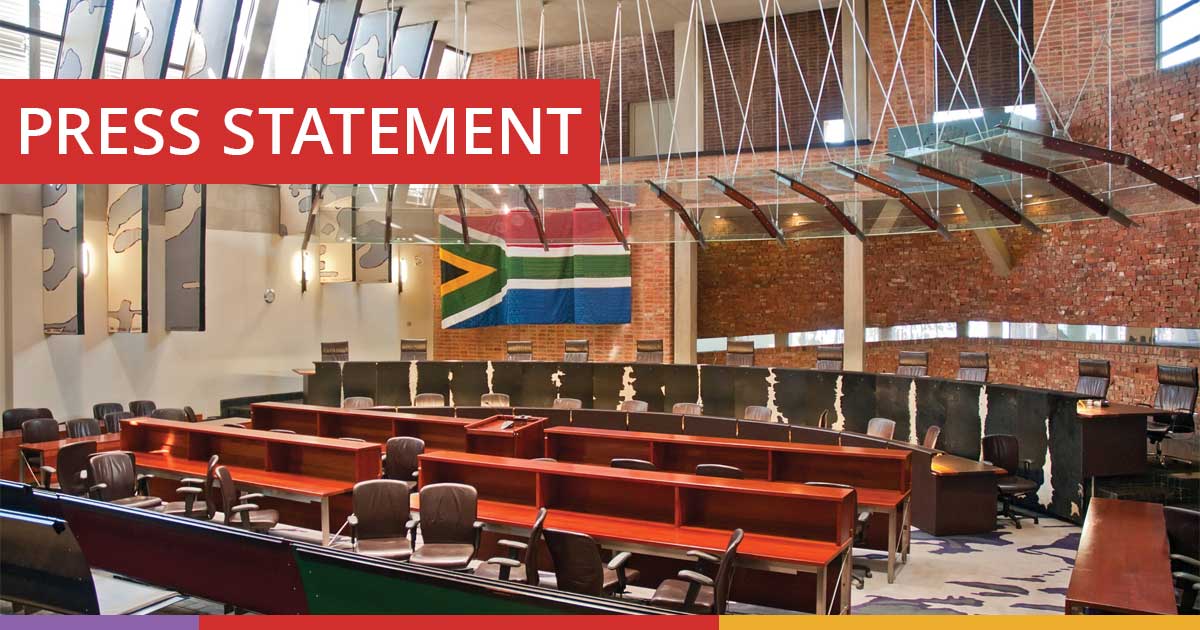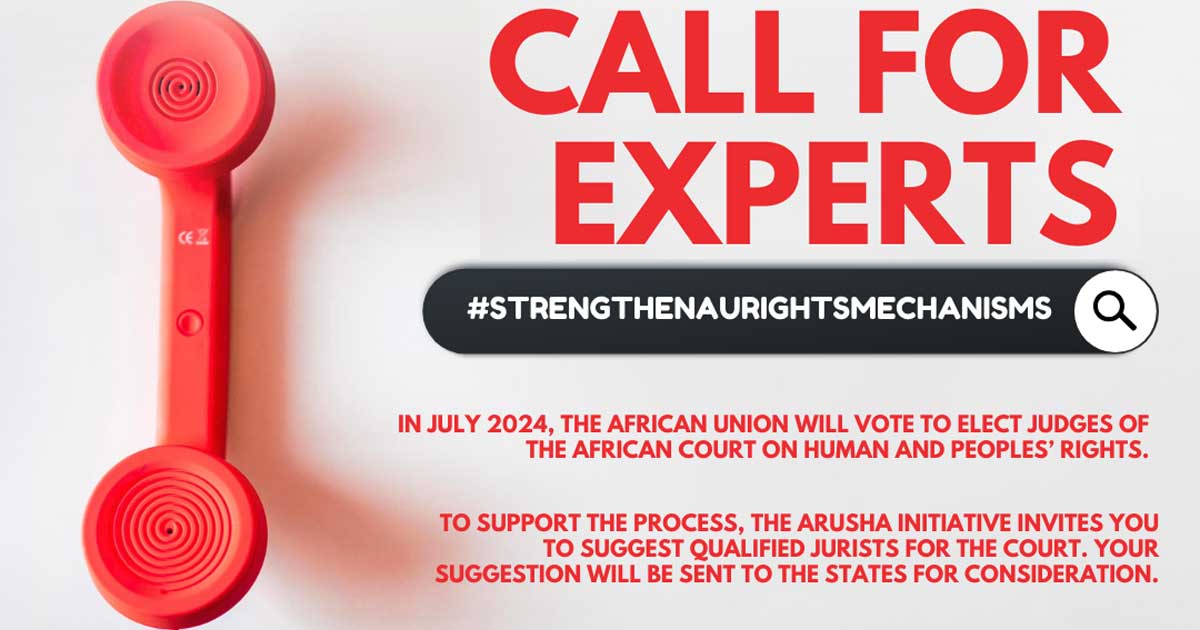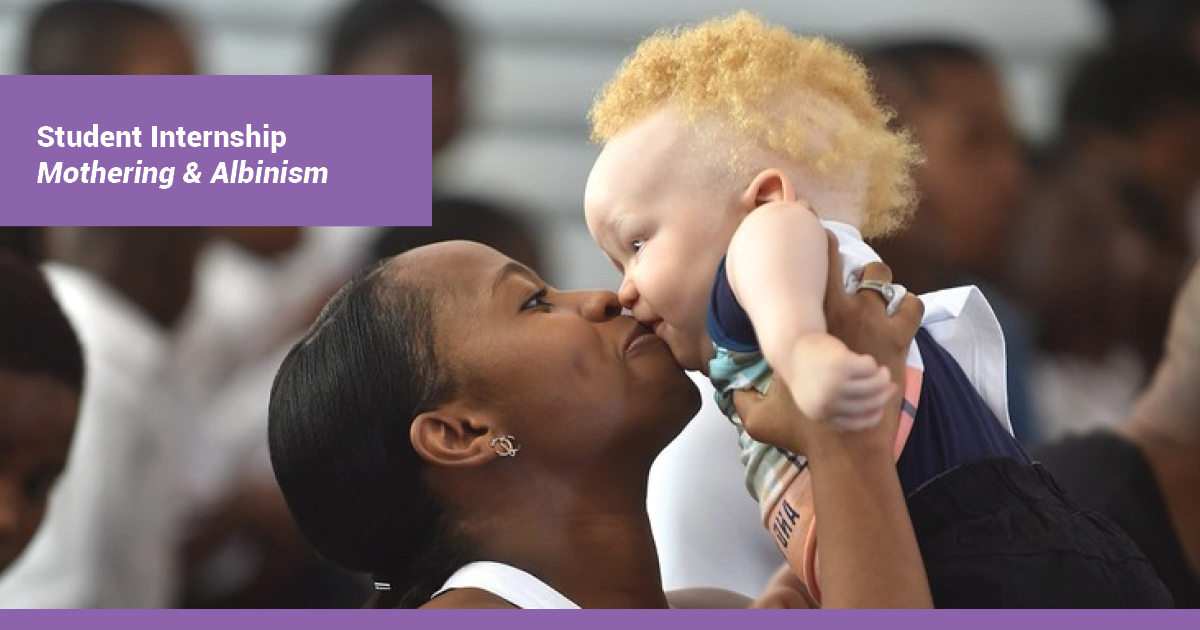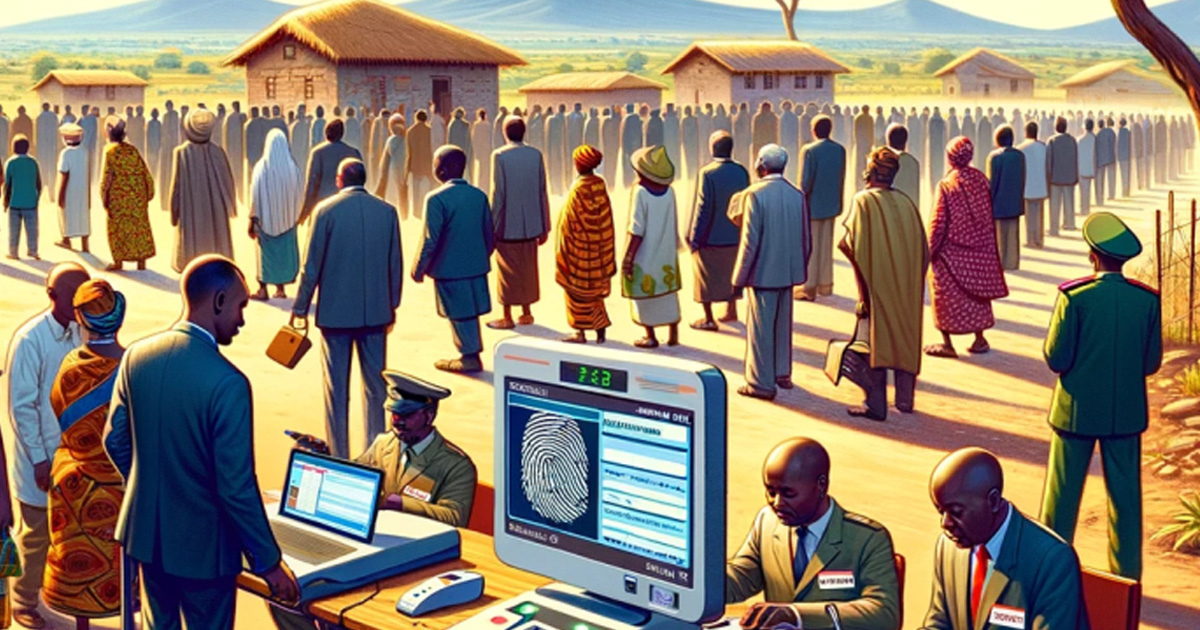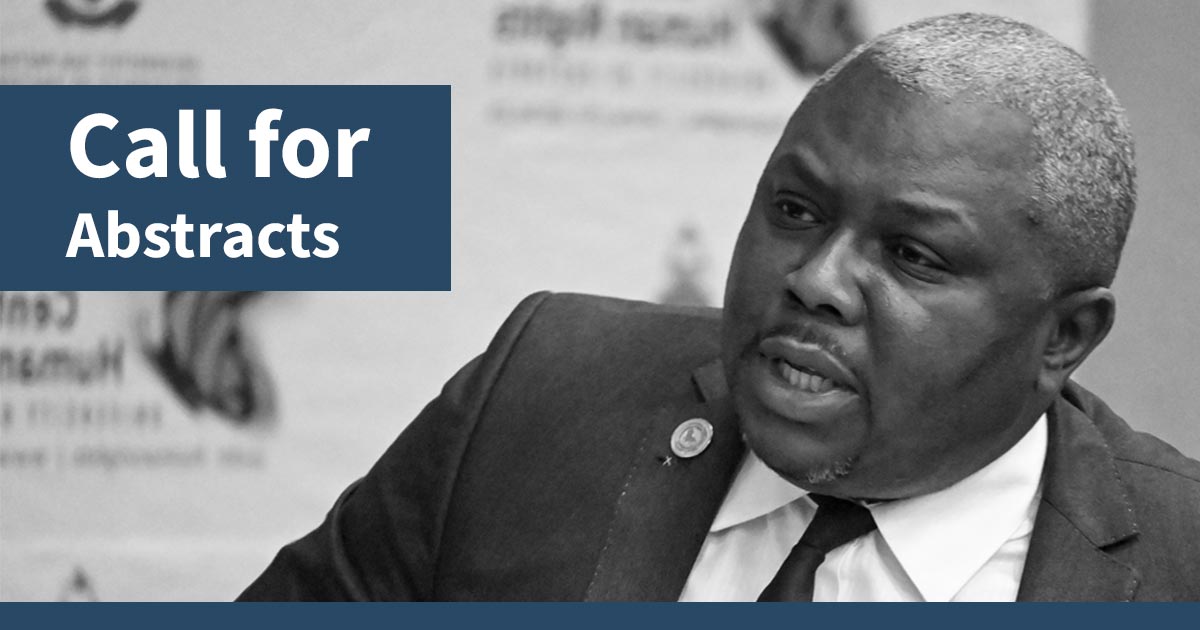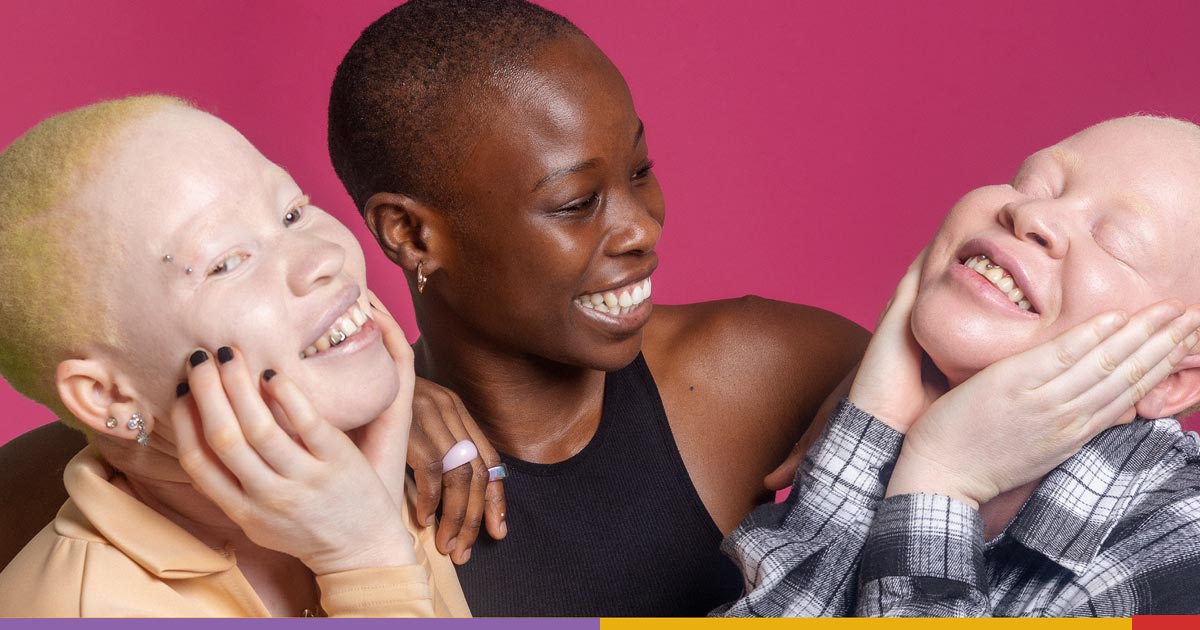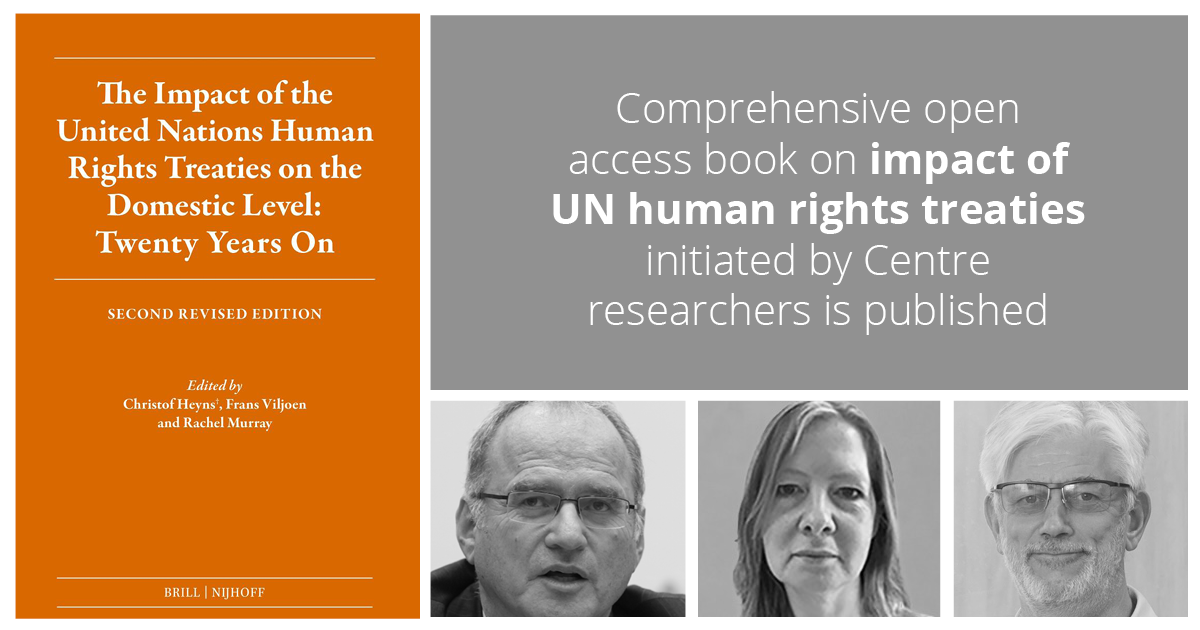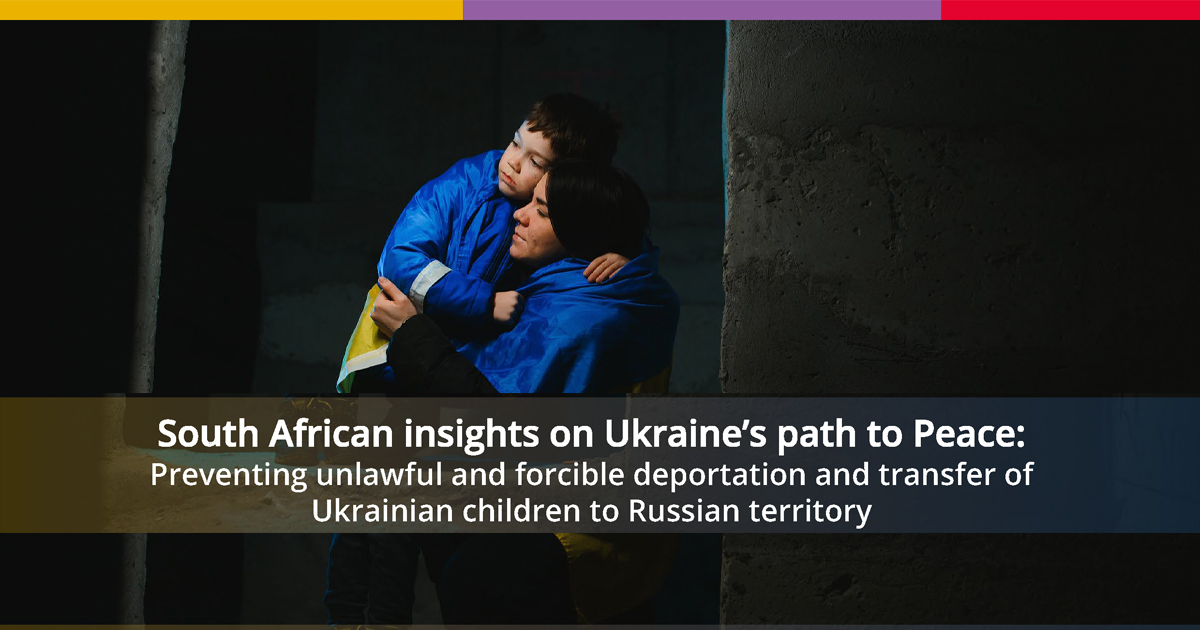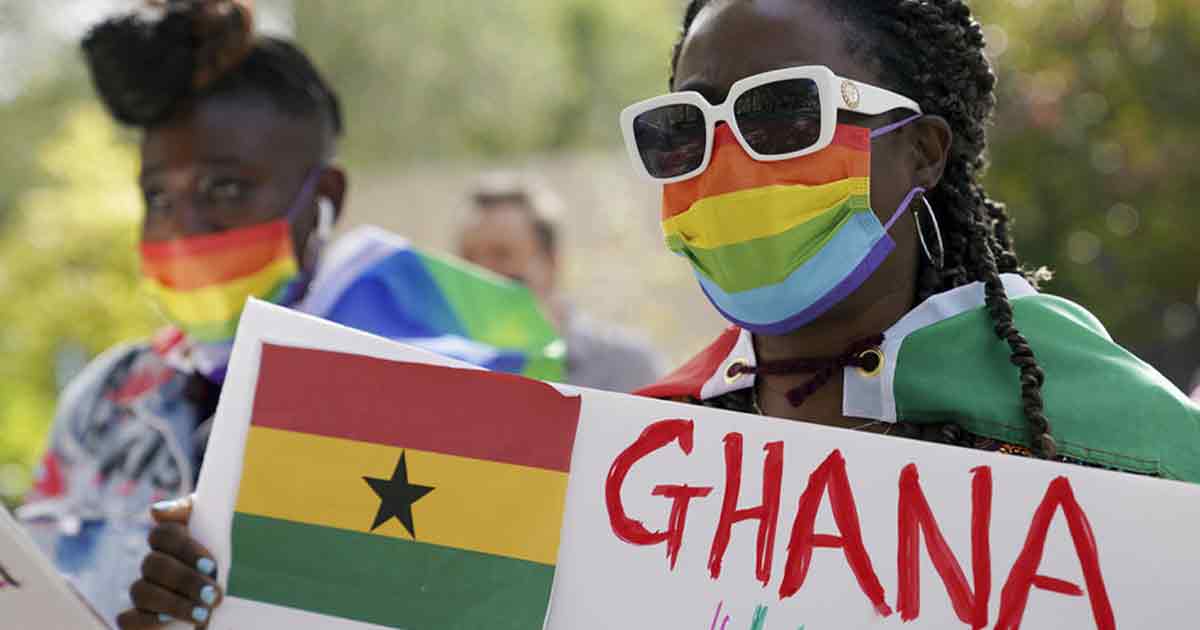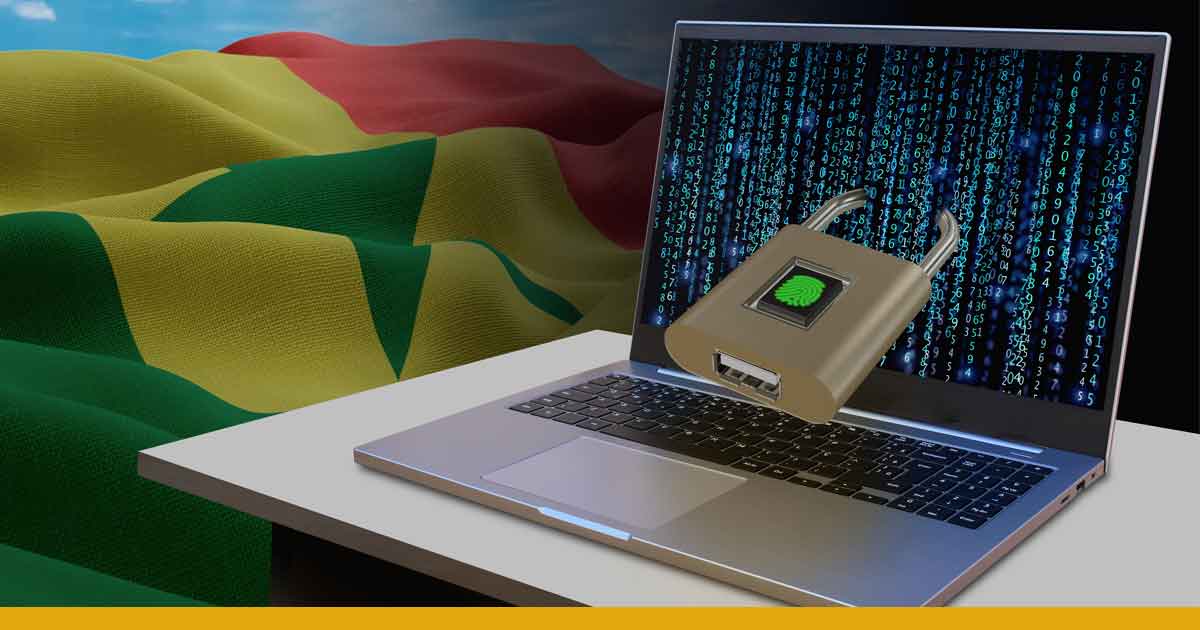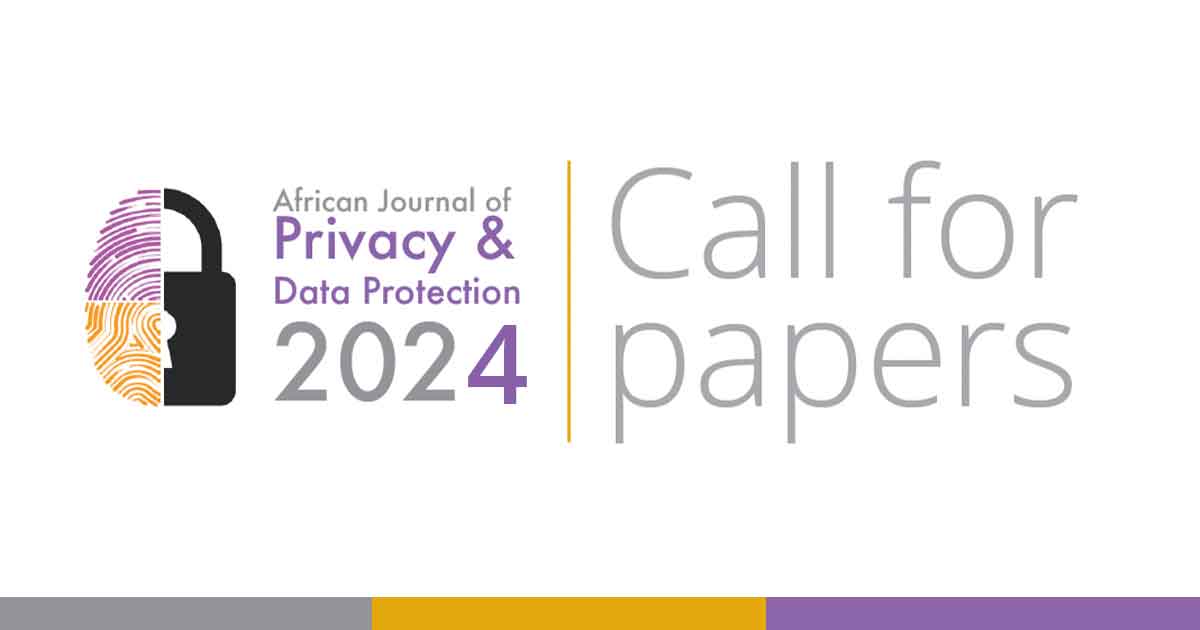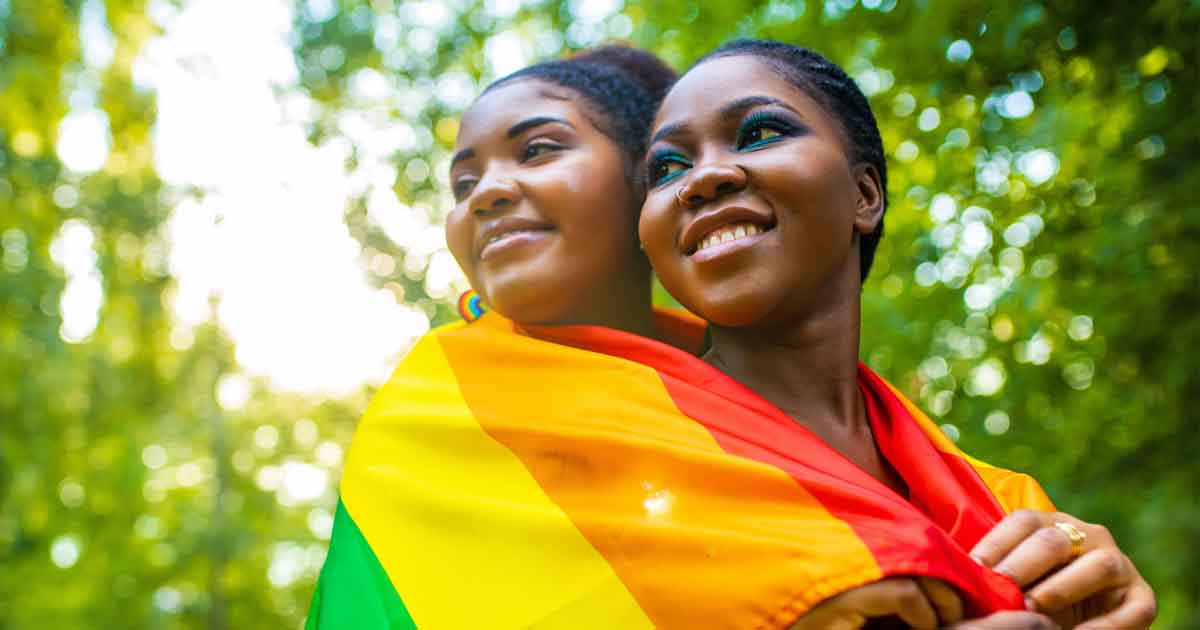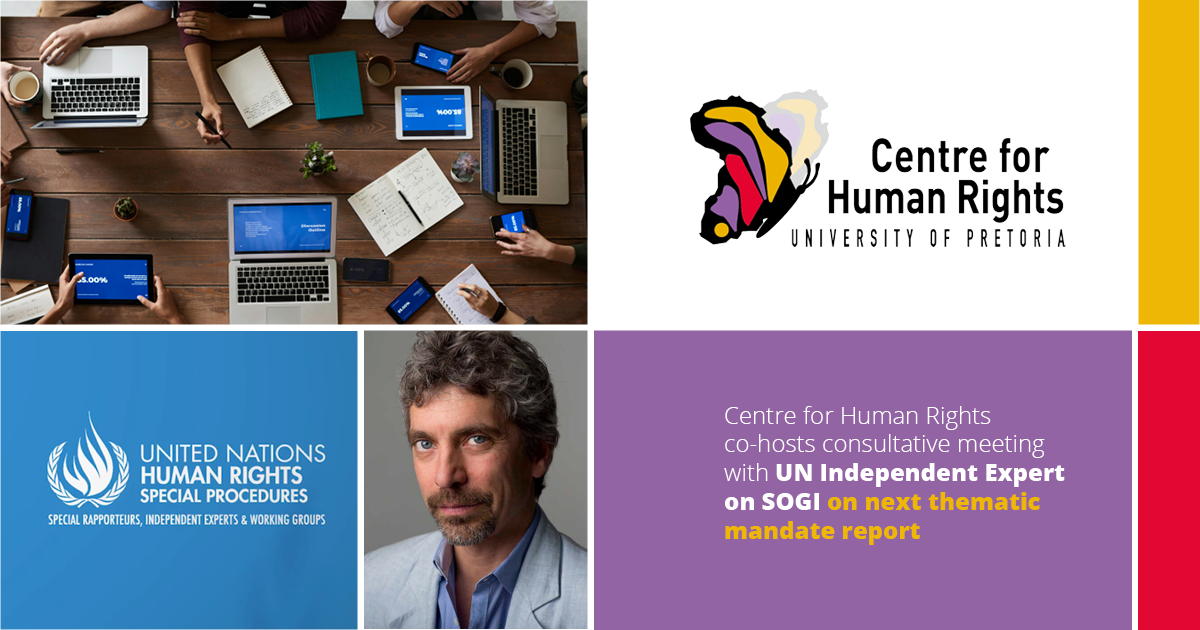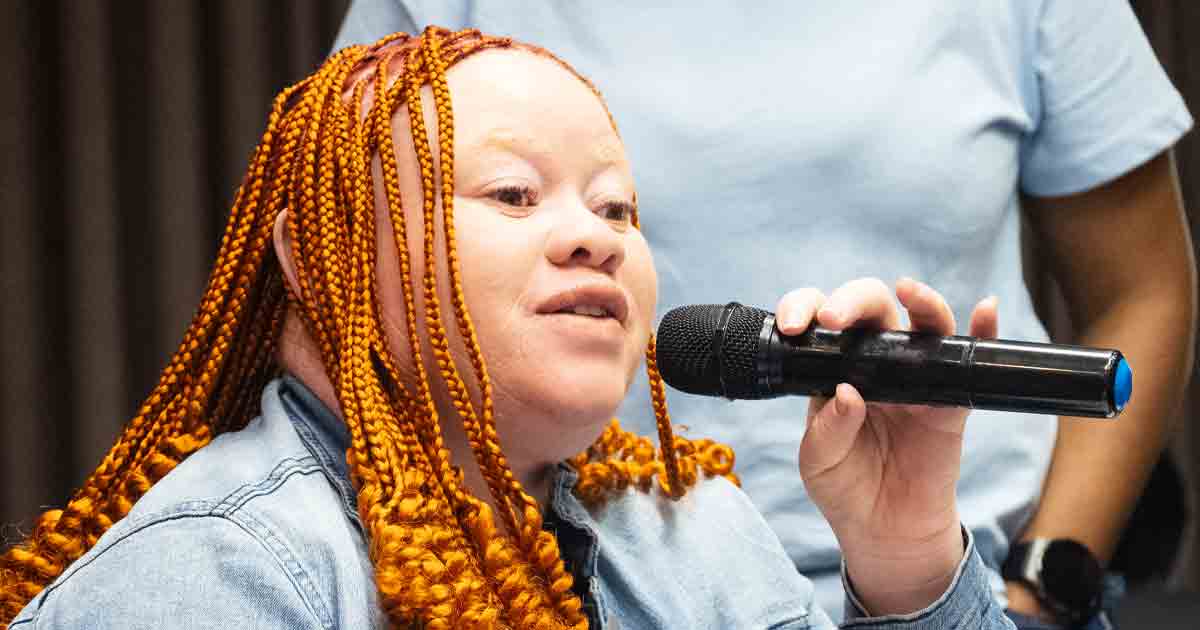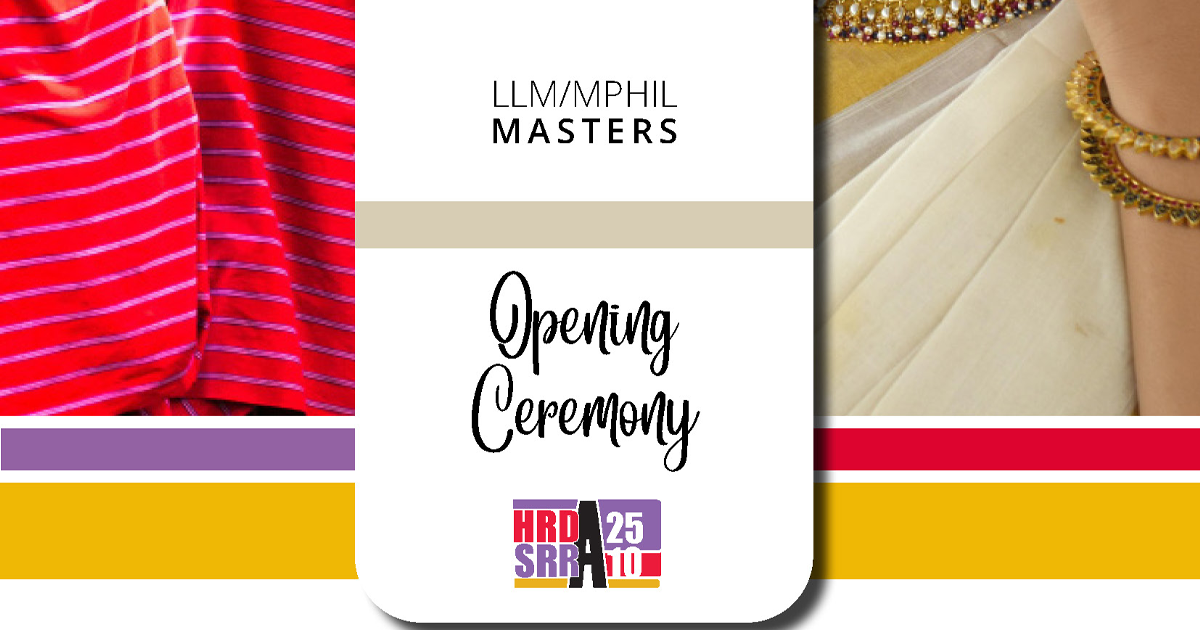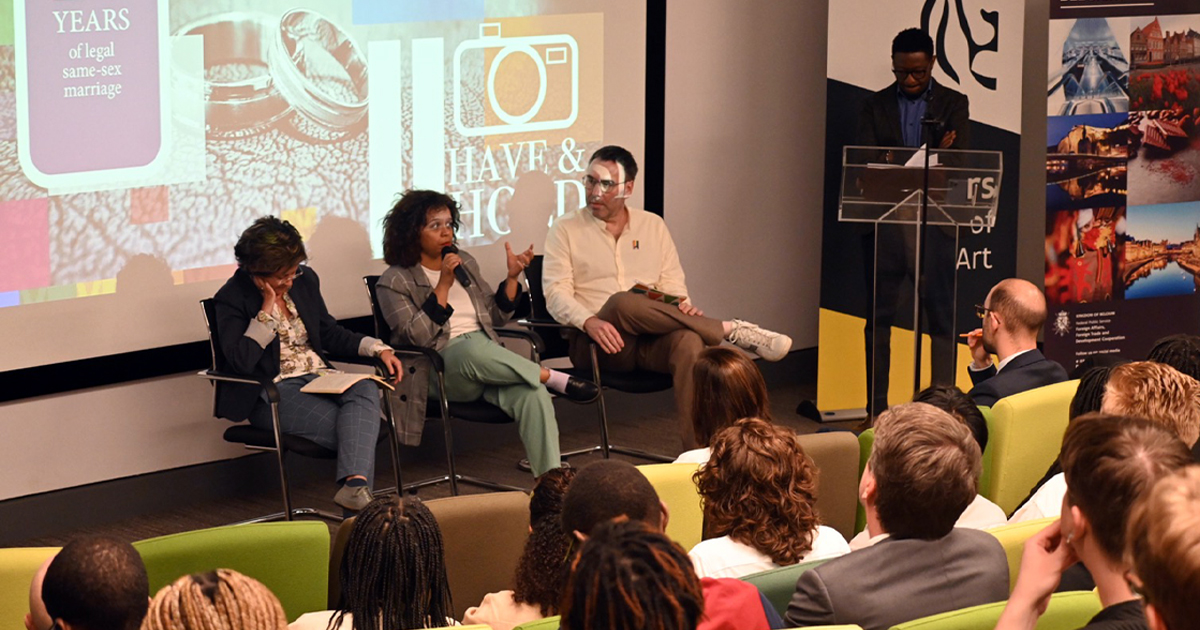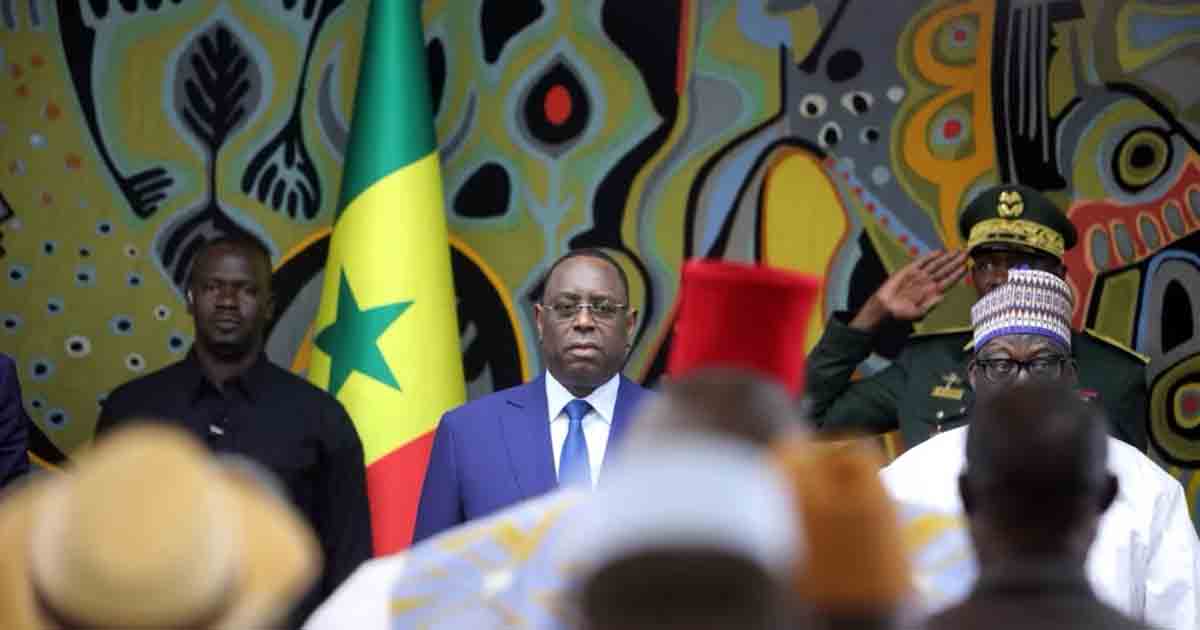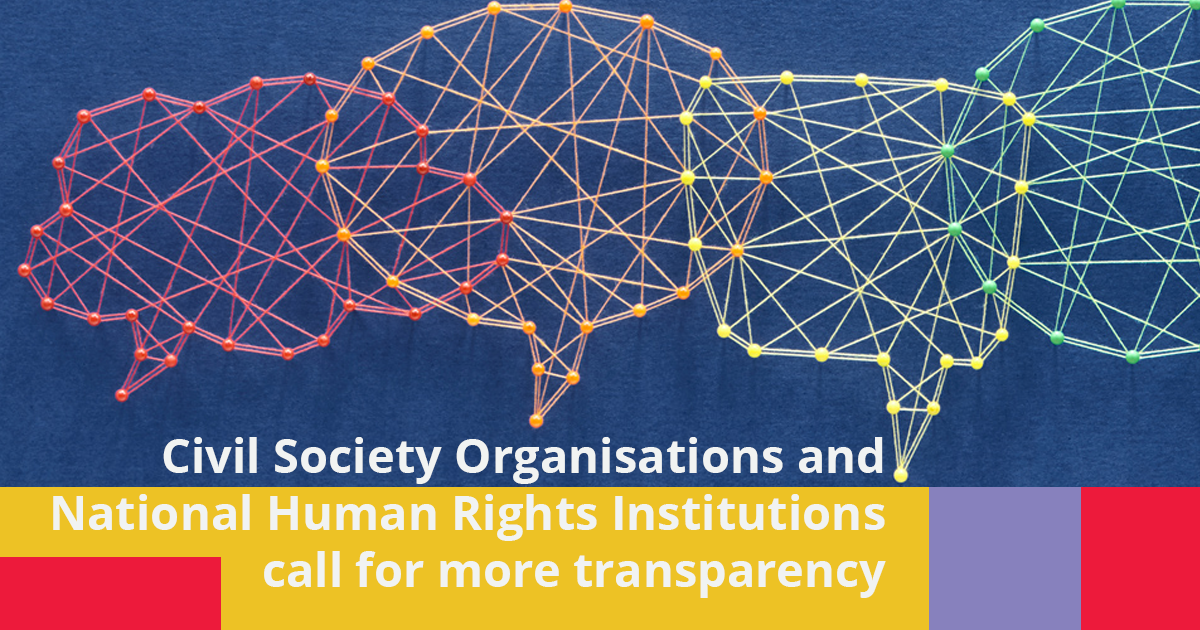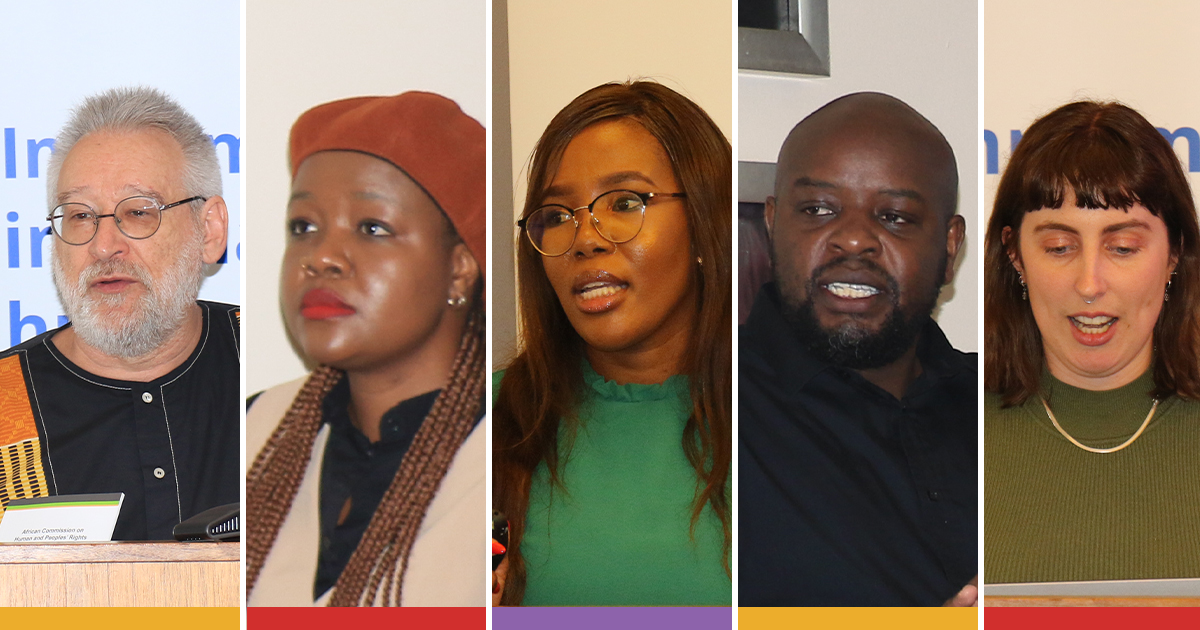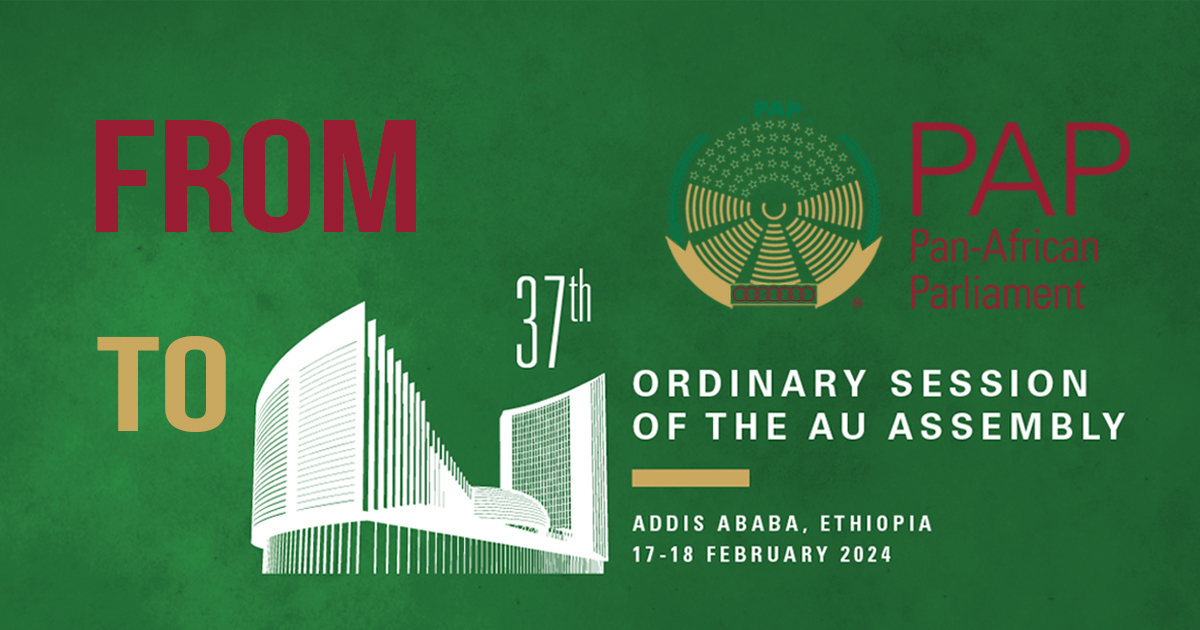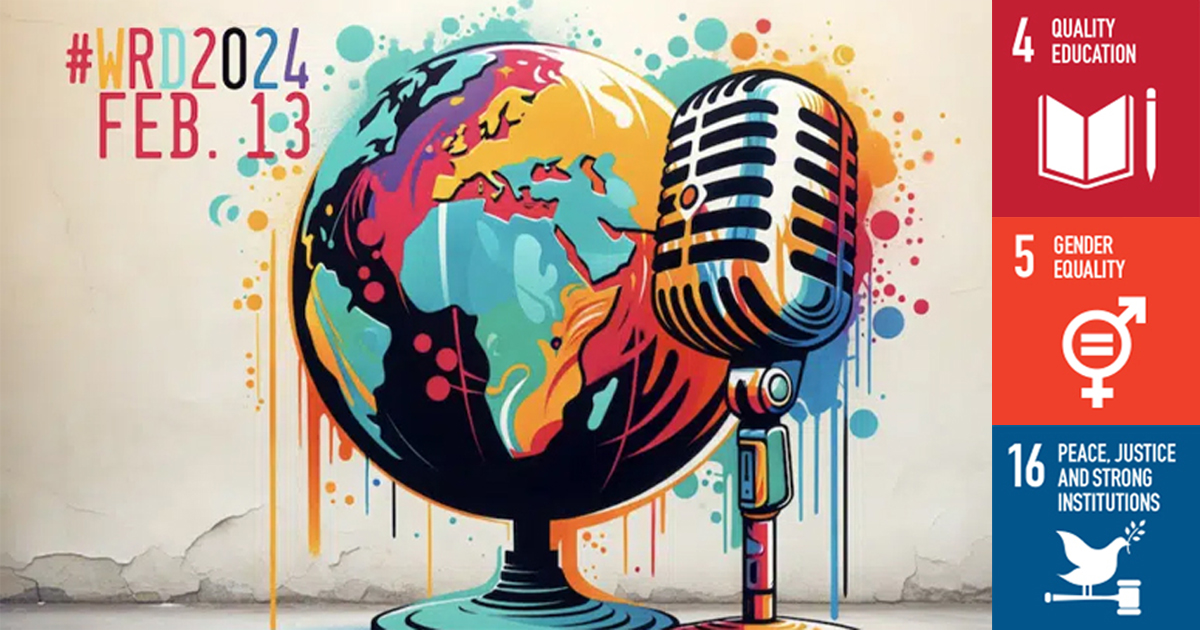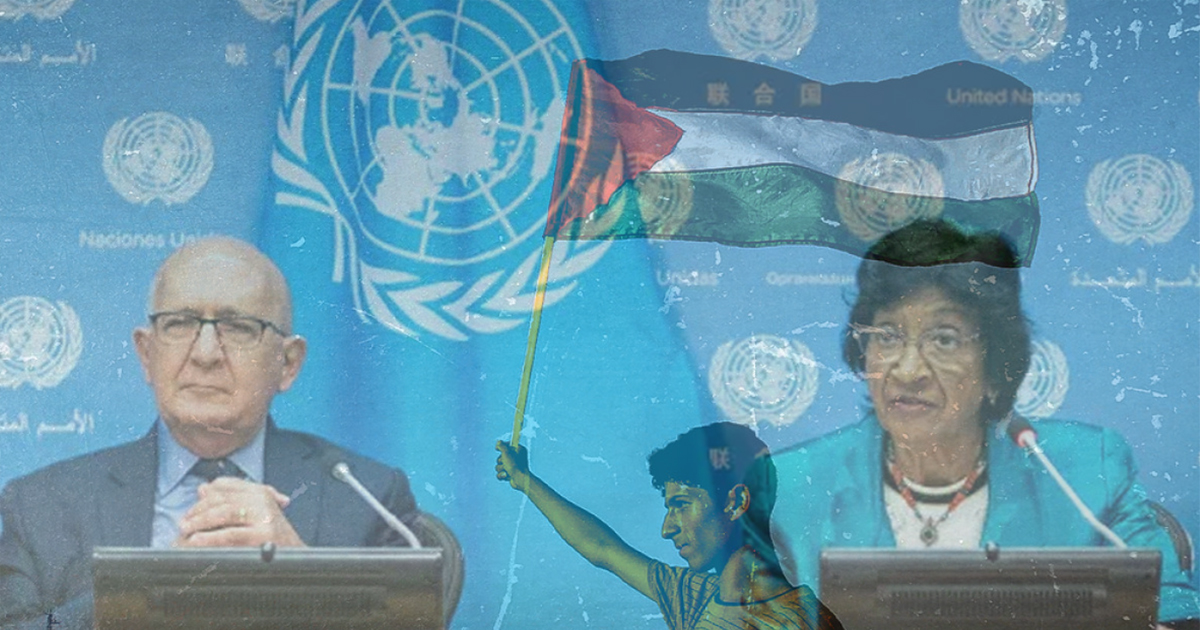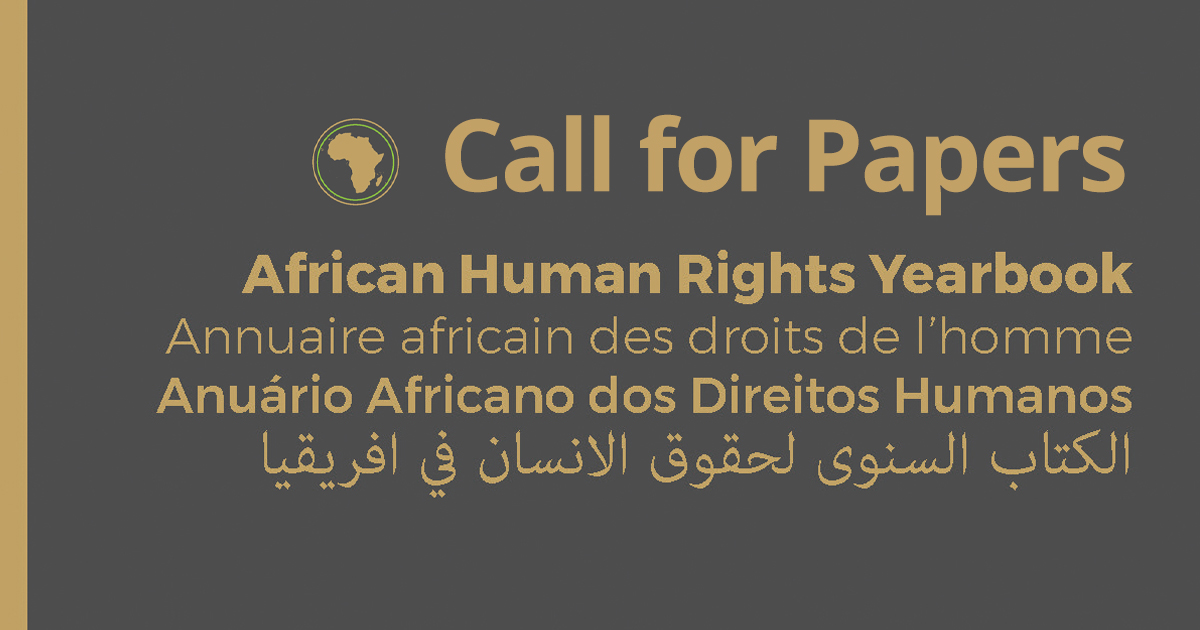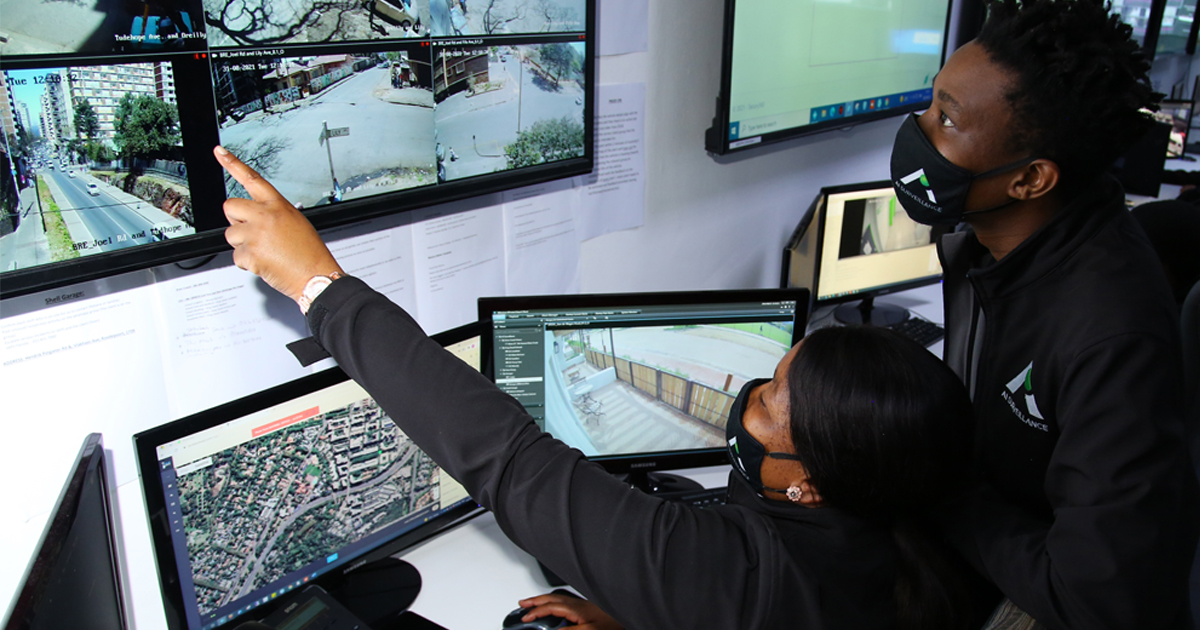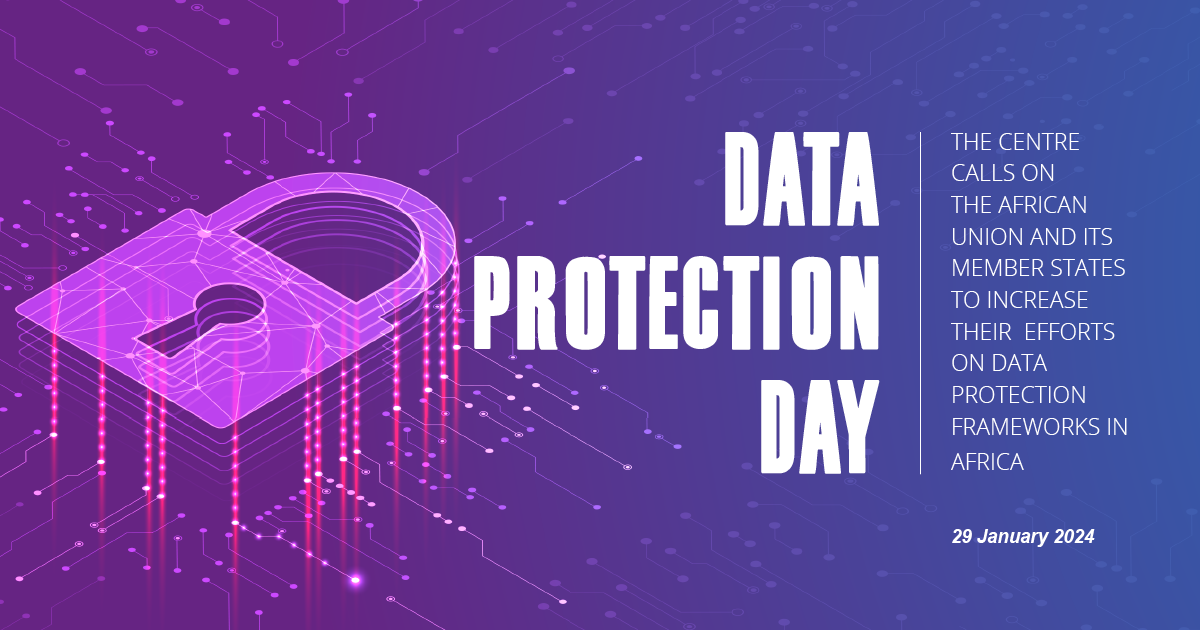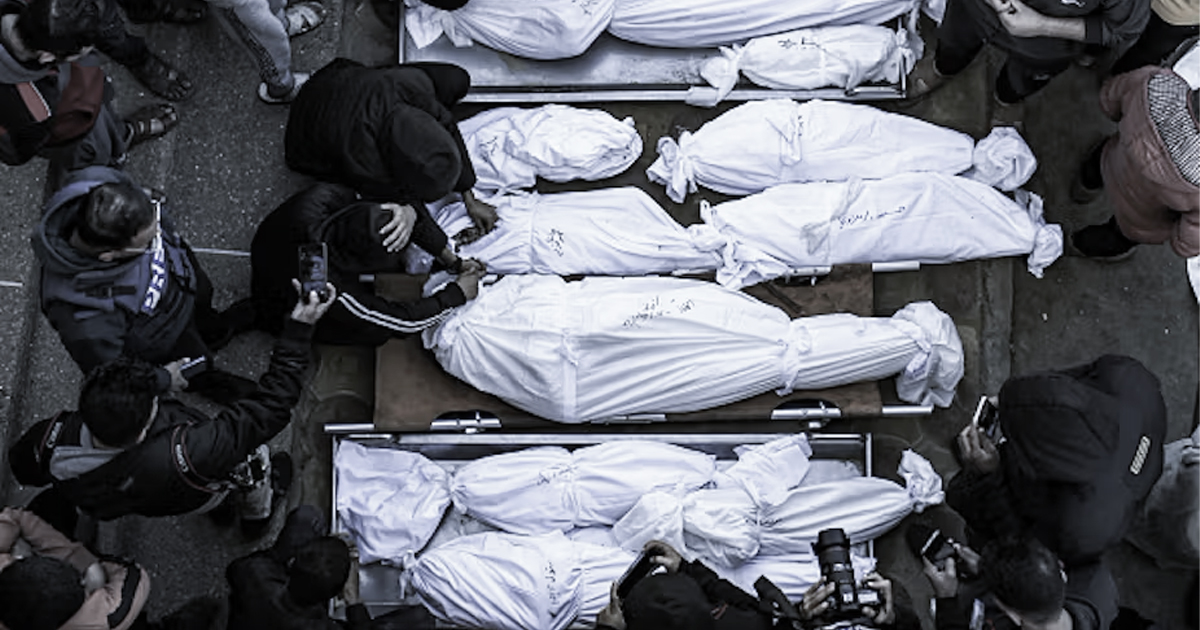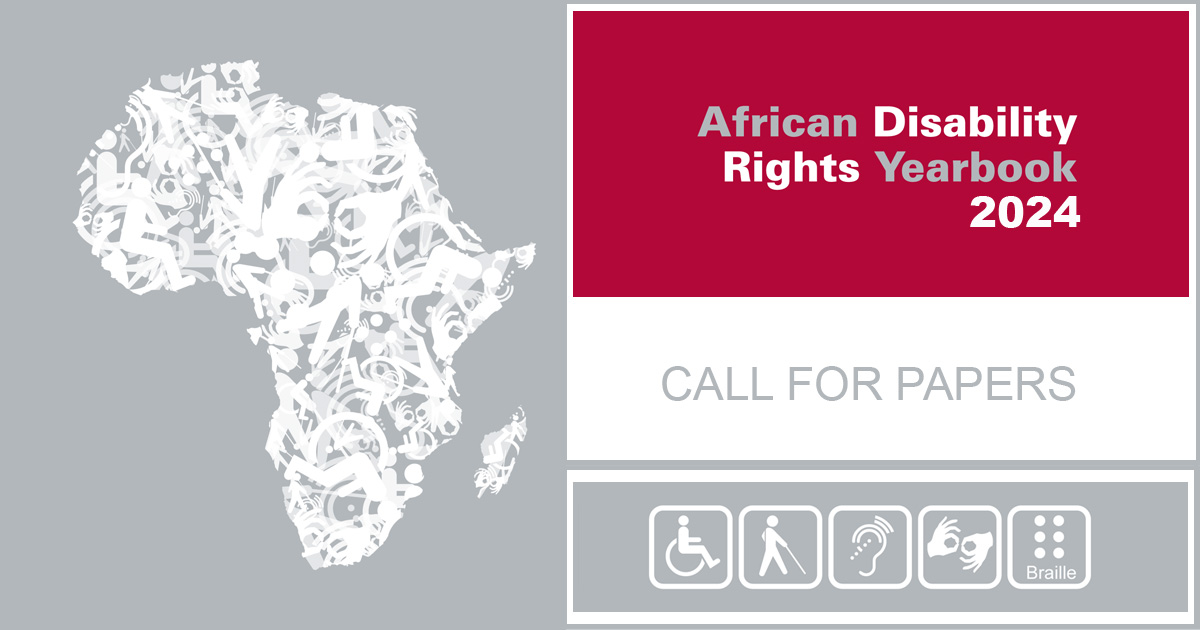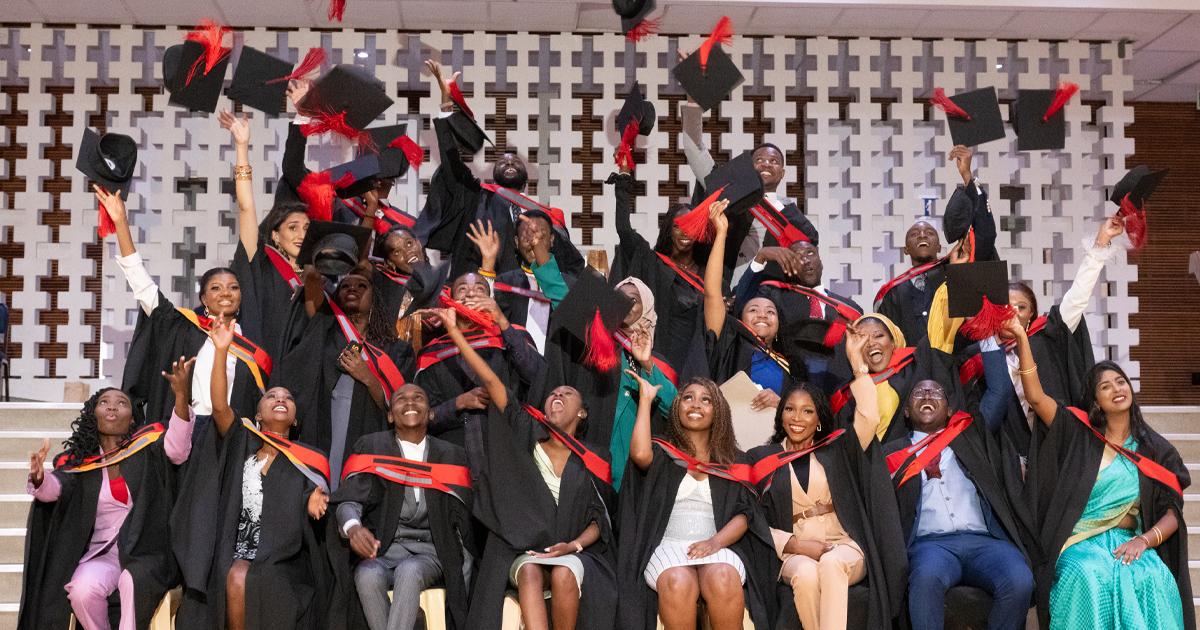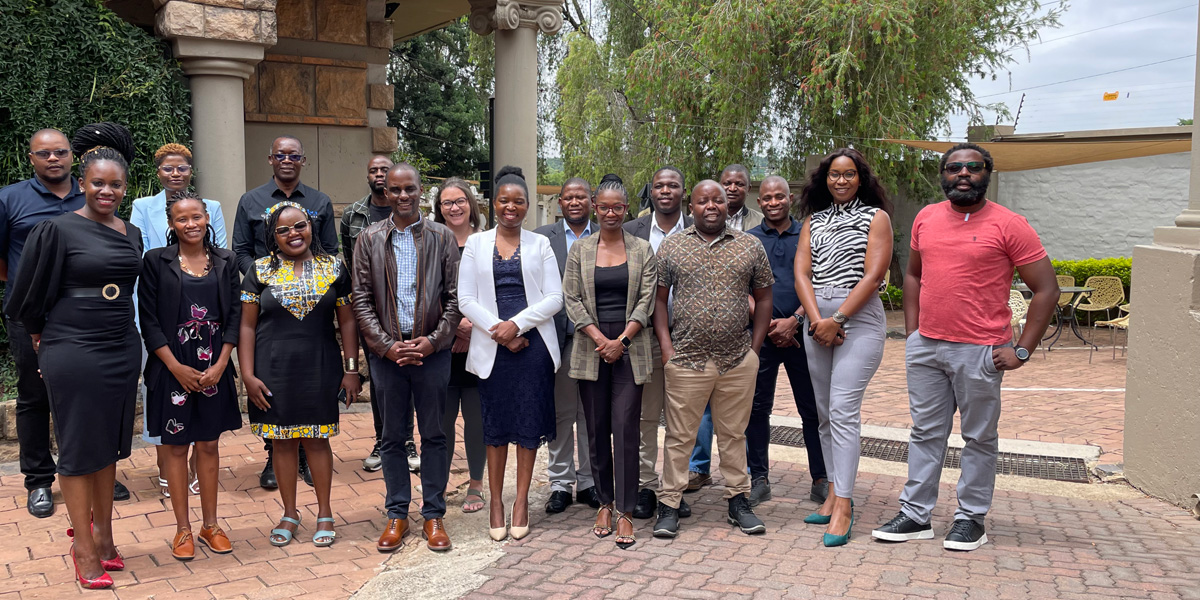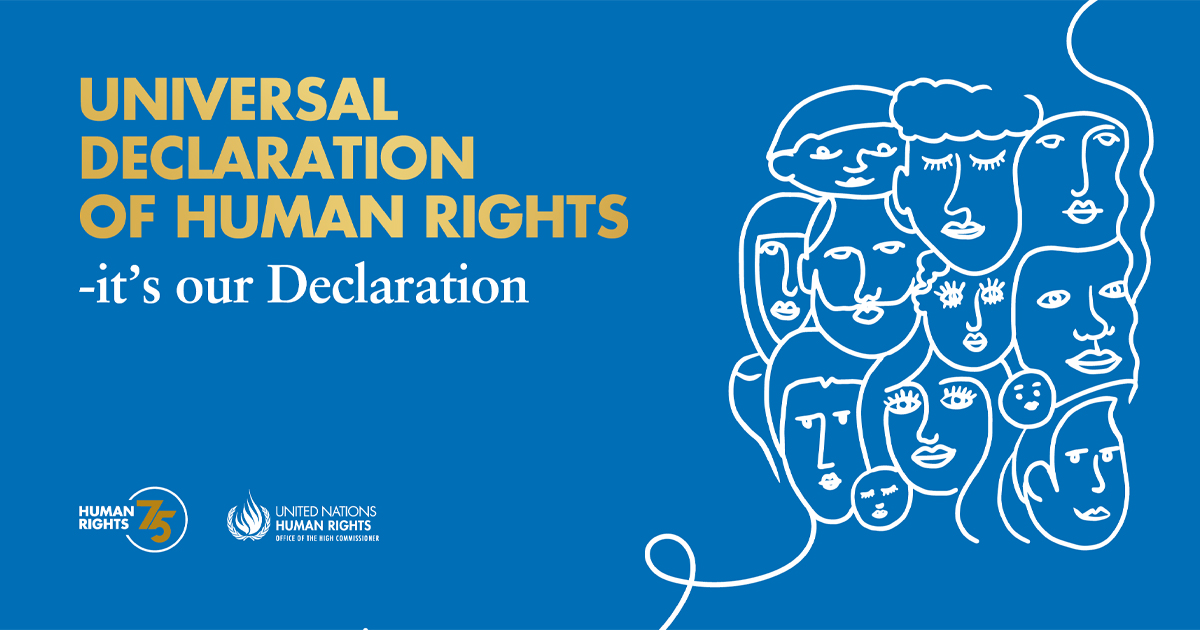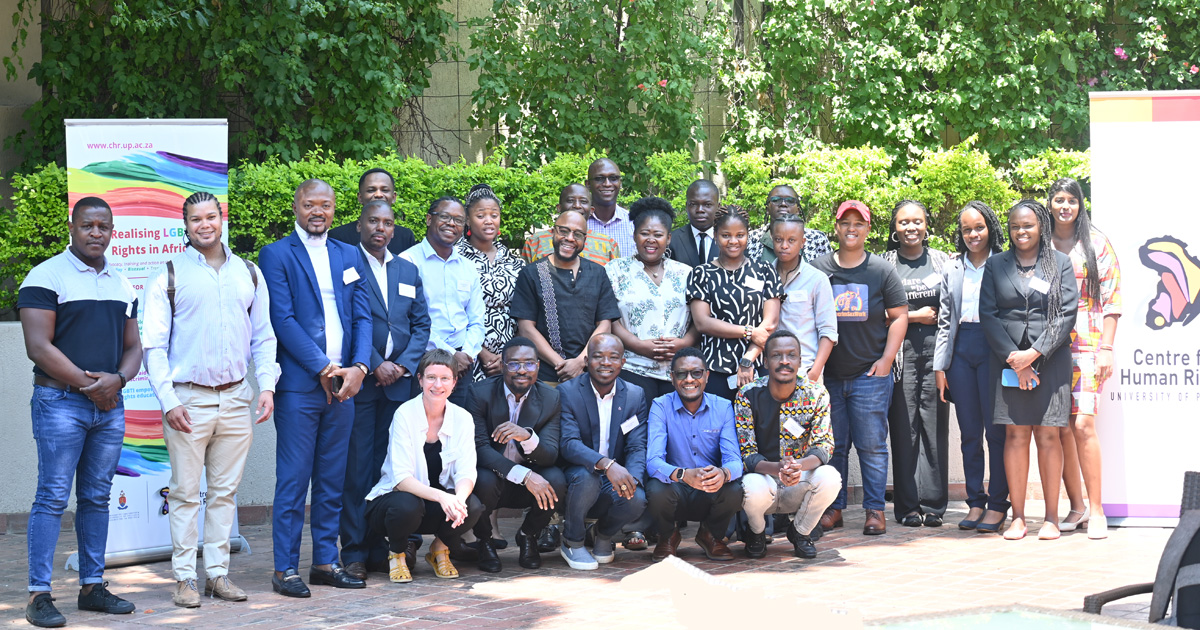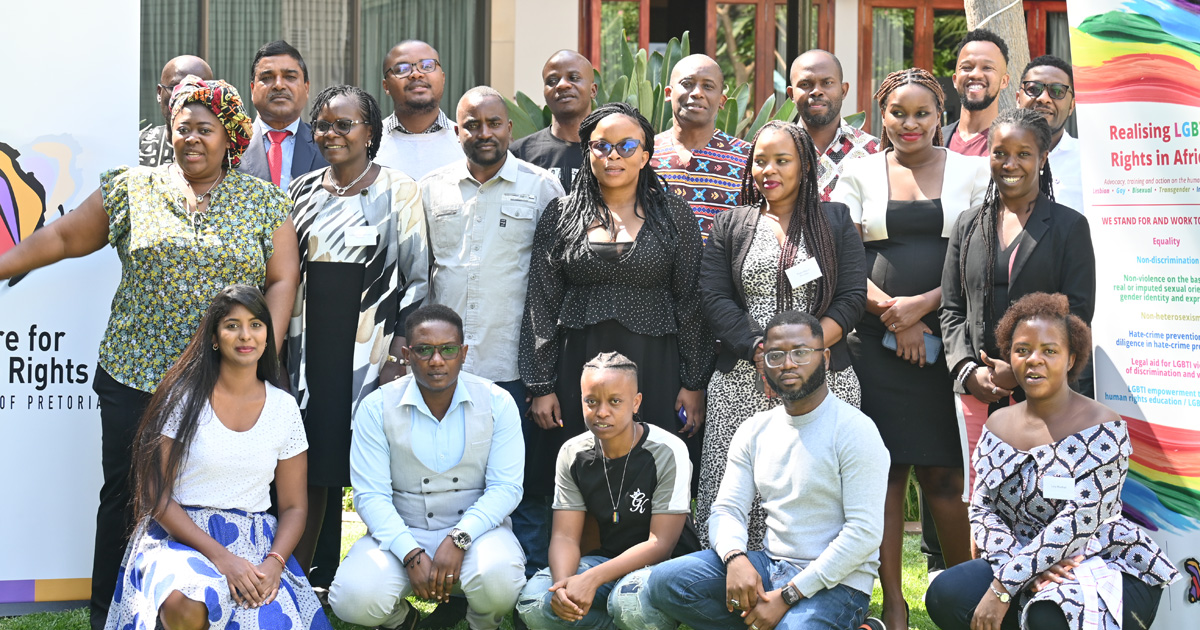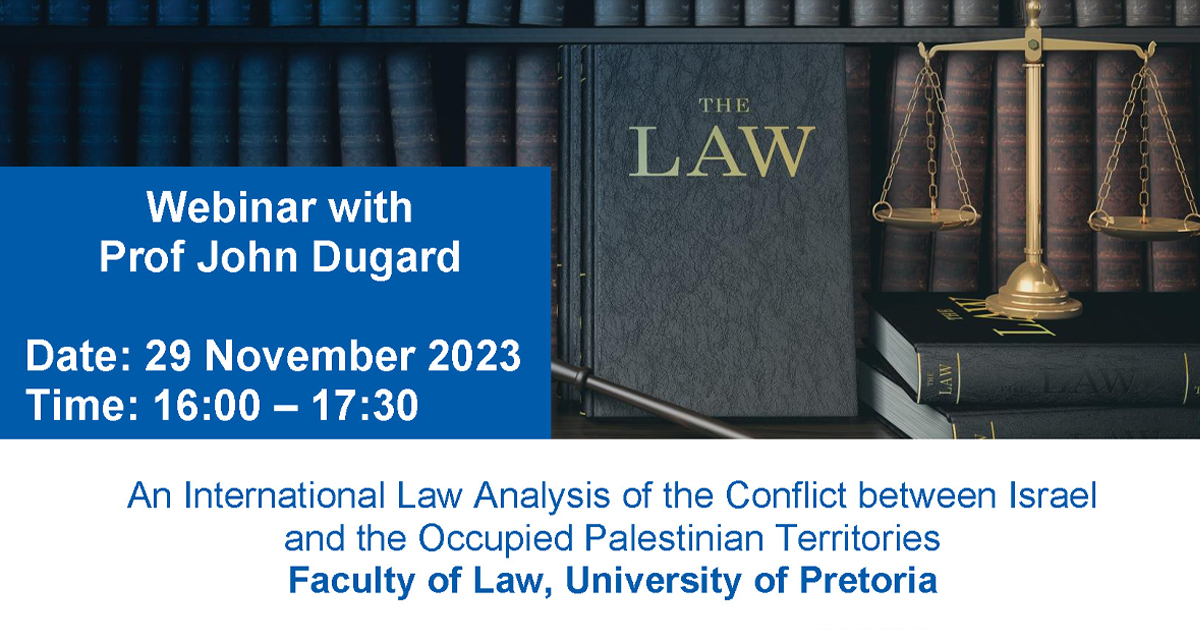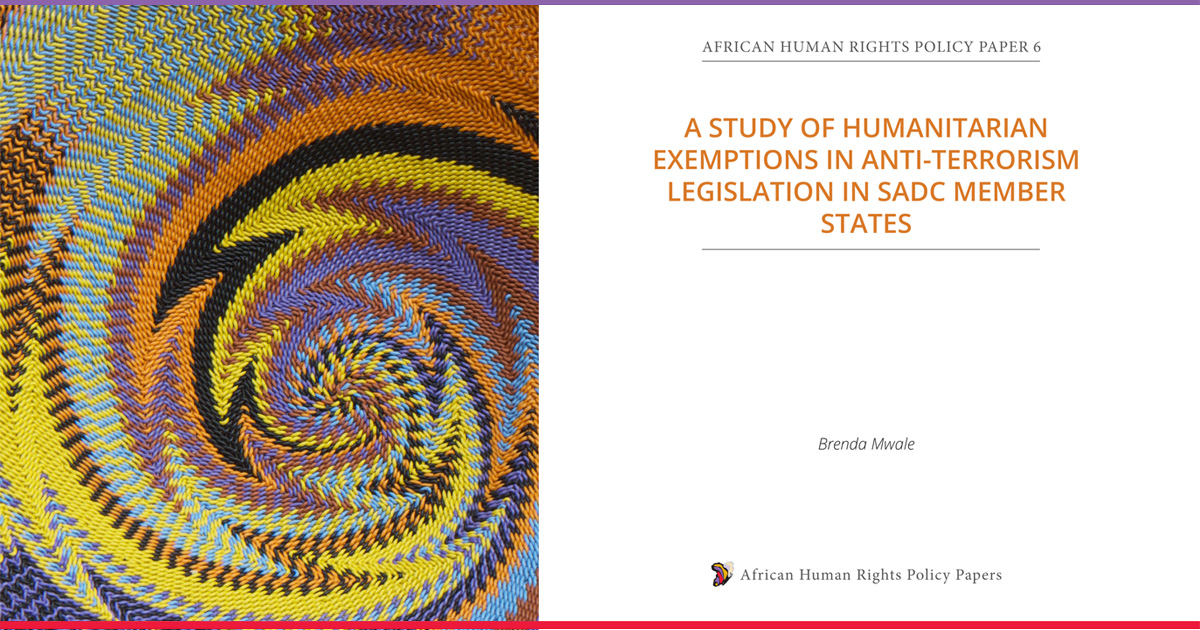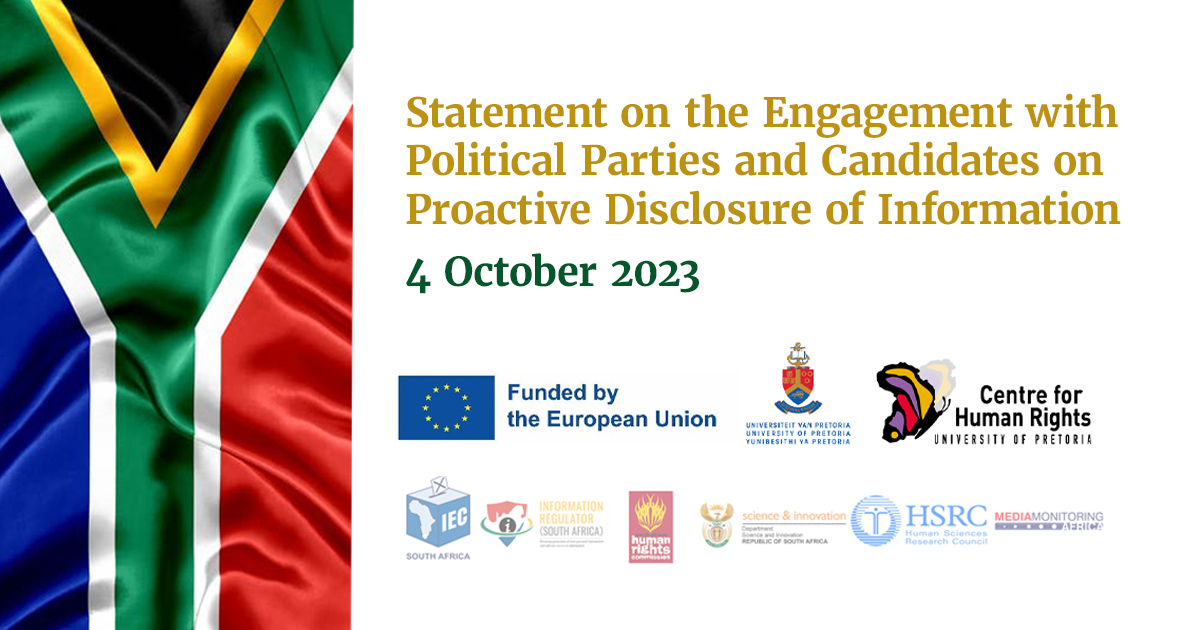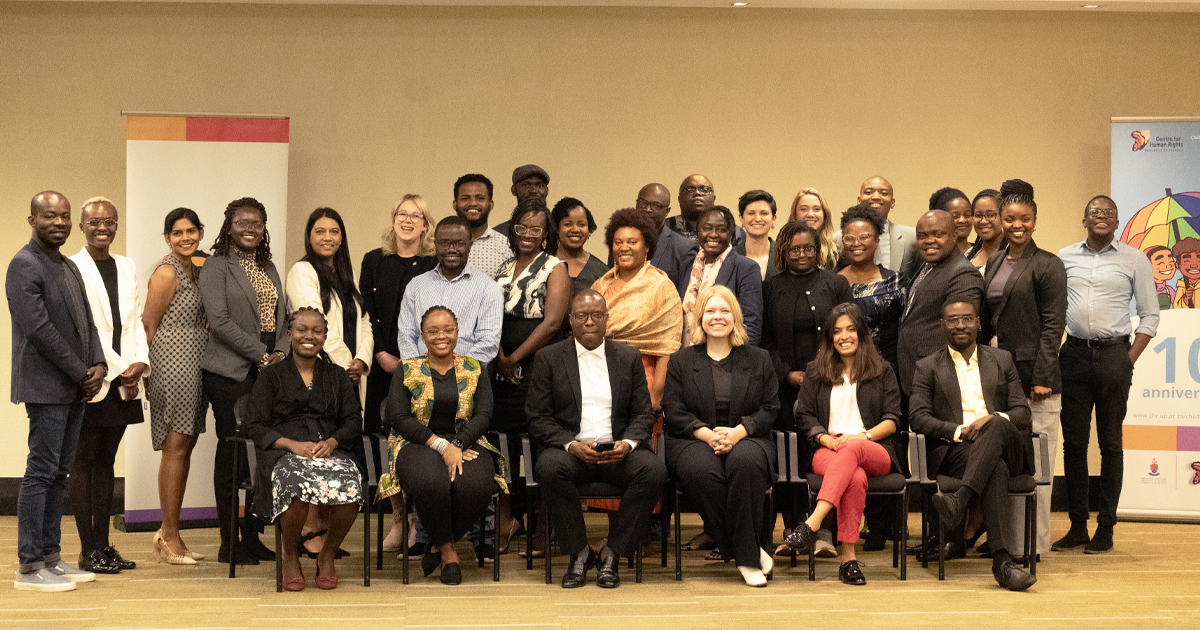- Details
The Centre for Human Rights, University of Pretoria (Centre) is thrilled to congratulate Abiola Idowu-Ojo on her well-deserved appointment as the Executive Secretary at the African Commission on Human and Peoples’ Rights (African Commission). She has been serving as the Commission’s Acting Executive Secretary since August 2023.
- Details
The Centre for Human Rights at the University of Pretoria organized a webinar on 21 June 2024 to discuss and assess implementation of Comprehensive Sexuality Education (CSE) in South Africa. The aim of the webinar was to assess CSE delivery in South Africa through Life Orientation (LO) subject in schools.
- Details
The Centre for Human Rights, in partnership with the Centre for Child Law both at the Faculty of Law, University of Pretoria and Dullah Omar Institute for Constitutional Law, Governance and Human Rights, University of the Western Cape hosted the annual Advanced Human Rights Course on Children’s Rights in Africa from 17 to 21 June 2024. This year, the course was also supported by the Global Campus of Human Rights.
- Details
On 20 June 2024, the Centre for Human Rights, Faculty of Law, University of Pretoria commemorated #WorldRefugeeDay by hosting a community leaders’ dialogue at thein Southern Sun Hotel, Johannesburg. In line with the theme of World Refugee Day for the year 2024, ‘solidarity with refugees’, the event was organised to enhance the role of community leaders in promoting solidarity with refugees. A total of 37 participants drawn from refugee and other migrant organisations and refugee host communities attended the event.
- Details
On 12 June, the Centre for Human Rights, Faculty of Law, University of Pretoria, in partnership with Corruption Watch and the Thulani Maseko Foundation, hosted the 2nd Annual Thulani Maseko Memorial Lecture in honour of the dedicated and tireless human rights defender, respected human rights lawyer and advocate for constitutional reform in Eswatini. The theme of this year's lecture was 'Lack of Accountability and Impunity in the Persecution of Human Rights Defenders'.
- Details
The Centre for Human Rights, Faculty of Law, University of Pretoria cordially invites you to the Helen Kanzira Memorial Lecture. The theme for this years lecture is ‘The role of digital technologies in addressing maternal mortality in Africa’
- Details
The Centre for Human Rights, Faculty of Law, University of Pretoria cordially invites you to the second Christof Heyns Human Rights Memorial Lecture. Drawing on Christof’s sense of inclusion and collaboration, a panel will collectively deliver the ‘Lecture’. This year’s lecture traces the developments in law and practice ‘Towards the complete abolition of the death penalty in Africa’.
- Details
In 2024, the Centre for Human Rights, Faculty of Law, University of Pretoria (CHR), is proudly celebrating 10 years of the Sexual and Reproductive Rights in Africa (SRRA) programme. This initiative, which has made a significant regional impact, was born out of a desire to contribute to sexual and reproductive rights scholarship, arm practitioners with the knowledge to confidently steer and influence advocacy, policy, law, and enrich human rights discourse. Currently, this is the only programme on the continent that awards a specialised degree at the Master’s level on sexual and reproductive health and rights (SRHR).
- Details
On 17 June 2024, the Global Campus (GC) International Student Conference on Just Transition: Conditions for Change in the Global Order launched at the OSCE Academy in Bishkek. This event marks a revitalised edition of the GC Global Classroom, a flagship research and networking programme for students, hosted this time by Global Campus Central Asia Master's Programme in Human Rights and Sustainability (MAHRS).
- Details
As South Africa celebrates Youth Day, and the world commemorates International Day of the African Child on 16 June 2024, the Centre for Human Rights, Faculty of Law University of Pretoria, recalls the events that explain why this is the date on which children’s rights are highlighted. It also calls for recommitment to make the right to education meaningful reality to all children.
- Details
In pursuit of the ideals of excellence, the University of Pretoria wishes to invite applications for the following vacancy. The University of Pretoria's commitment to quality makes us one of the top research Universities in the country and gives us a competitive advantage in international development.
The Centre for Human Rights, Faculty of Law, University of Pretoria seeks the consultancy services of five consultants to conduct research on the laws and policies relating to the SRHR of older women in five regions of Africa. This research should provide a detailed report on the forms and nature of SRHR challenges facing older women in each of the regions. More importantly, it should provide detailed information and analysis on laws, policies, and programmes on SRHR of older women as well as the good practices in this regard.
- Details
In pursuit of the ideals of excellence, the University of Pretoria wishes to invite applications for the following vacancy. The University of Pretoria's commitment to quality makes us one of the top research Universities in the country and gives us a competitive advantage in international development.
The Centre for Human Rights, Faculty of Law, University of Pretoria seeks the consultancy services of two consultants to conduct a study to review and analyse the extent to which African governments have reformed laws and policies on abortion in line with the Maputo Protocol. The study seeks to review laws, policies and programmes as well as case law to ensure safe abortion services in the region, using two case studies.
- Details
The Centre for Human Rights, Faculty of Law, University of Pretoria, condemns the continued mistreatment of the Maasai indigenous people in the United Republic of Tanzania. Over the years, the illegal and forced evictions of this indigenous group from the Ngorongoro Area have resulted in over 80,000 people being deprived of access to settlement and grazing lands on which their pastoral livelihoods depend.
- Details
The Centre for Human Rights, Sexual and Reproductive Rights Unit, seeks a proficient Monitoring and Evaluation (M&E) consultant to conduct an in-depth assessment of its Sexual and Reproductive Rights in Africa programme. The programme is a postgraduate academic project, consisting of a Masters, doctoral and post-doctoral studies.
- Details
The Global Campus of Human Rights and the Centre for Human Rights, Faculty of Law, University of Pretoria cordially invites you, on the occasion of the Day of the African Child, to a webinar on Edtech regulatory frameworks and the right to education in Africa.
- Details
The Centre for Human Rights, University of Pretoria invites you to the Pretoria launch of Prof Marc Epprecht’s recent book Accidental Queer: and other essays around critical masculinity studies in Southern Africa and Canada.
- Details
The Centre for Human Rights, Solidarity Centre, International Lawyers Assisting Workers Network, Labour Research Service, and the Centre for Child Law have been admitted as joint amici curiae in the Constitutional Court confirmation proceedings of Van Wyk and Others v Minister of Employment of Labour (CCT 308/23) and Commission for Gender Equality and Another v Minister of Employment and Labour and Others (CCT 309/23). The amici have been given leave to file joint written submissions by the end of June 2024.
- Details
The Centre for Human Rights, in partnership with the European Union, seeks a proficient Monitoring and Evaluation (M&E) consultant to conduct an in-depth assessment of its Bridging the international and the national: towards more effective and meaningful implementation of international and regional human rights norms in South Africa project. The project commenced in June 2022 and is scheduled to end in July 2025. This project aims to contribute to more effective and meaningful implementation of international and regional human rights norms in South Africa to advance the rights of the marginalised groups in the country.
- Details
We, the undersigned organizations, write regarding the ongoing developments relating to the repeal of the Sections of the landmark Women’s (Amendment) Act of 2015, which criminalizes Female Genital Mutilation (FGM) in the Gambia. We are deeply concerned that these developments threaten the protection of the human rights and dignity of women and girls in the country, as well as in the region.
- Details
On the 24 - 25 May 2024, the Centre for Human Rights, Faculty of Law, University of Pretoria in collaboration with the Media Network on Child Rights and Development held a workshop in Lusaka, Zambia. This workshop, the third of its kind following previous workshops in Malawi and Kenya, focused on “Promoting Child Participation in Development Frameworks in Africa” and to established the African base of the Global Campus for Human Rights, Child Leadership Team (GC-CLT).
- Details
Collaborating with the Regional Office for Southern Africa (ROSA) of the Office of the High Commissioner for Human Rights (OHCHR), the Centre for Human Rights, Faculty of Law, University of Pretoria (Centre) on 23 May 2024 hosted a virtual launch of the recently published open-access book The Impact of the United Nations Human Rights Treaties on the Domestic Level: Twenty Years On. This book, edited by Frans Viljoen and Rachel Murray, together with the late Christof Heyns, contains studies on the implementation of the UN human rights treaty system in 20 countries across the world. The book was dedicated to the memory and legacy of Professor Christof Heyns.
- Details
On the eve of the International Day Against Homophobia Biphobia and Intersexism (IDAHOBIT) on 16 and 17 May, the Centre for Human Rights, Faculty of Law, University of Pretoria took part in a pivotal workshop aimed at fortifying the digital advocacy landscape in human rights activism within the Southern African Democratic Community (SADC) region.
- Details
On 15 May 2024, the Centre for Human Rights, Faculty of Law University of Pretoria, in collaboration with the Norwegian Centre for Human Rights, University of Oslo, co-organised a webinar for academics, NGOs and civil society organisations on the implementation of the UN treaty system within domestic legal systems across the world.
- Details
The United Nations Independent Expert on Protection against violence and discrimination based on sexual orientation and gender identity (UNIE-SOGI), Dr Graeme Reid, in collaboration with the Centre for Human Rights (Centre), Faculty of Law, University of Pretoria, held a workshop on 2 May 2024 focused on the South African perspective of sexual orientation, gender identity and human rights at the Department of International Relations and Corporation (DIRCO). The Director-General of DIRCO, Zane Dangor, opened the hybrid workshop, which was held as part of the DIRCO Academy’s ongoing initiatives aimed at contributing to the development of the knowledge and skills of DIRCO officials in a wide range of relevant human rights and international relations issues. The workshop was aimed at strengthening the knowledge of participants on pertinent geopolitical developments that affect South Africa’s foreign policy initiatives with respective sexual and gender minority rights and to empower participants with knowledge about sexual orientation, gender identity (SOGI) and human rights from a South African perspective.
- Details
On 29 April 2024, the Centre for Human Rights, Faculty of Law, University of Pretoria (Centre), with the financial assistance of the Embassy of Switzerland in South Africa, organised a workshop for grassroots organisations working in the area of the protection of migrants, migrant-led organisations, and migrants’ rights advocates on early warning and urgent response to xenophobic violence in South Africa. This workshop falls under the broader anti-xenophobia project of the Centre, which aims to counter xenophobia in South Africa and enhance the promotion of the rights of refugees and other migrants.
- Details
The Centre for Human Rights, Faculty of Law, University of Pretoria, joins the rest of the world in commemorating World Telecommunication and Information Society Day (WTISD) 2024, a momentous occasion designated by the UN General Assembly in 2005. This day serves as a platform to spotlight the transformative potential of the internet and other technologies in advancing socio-economic development, while also championing efforts to bridge the digital divide. Its date, May 17, holds profound historical significance, tracing back to the signing of the First International Telegraph Convention on 17 May 1865, which established the International Telecommunication Union (ITU). The establishment of the ITU, laid the foundation for international cooperation and innovation in the dynamic sphere of communication and information technology.
- Details
On 17 May, 1990 the World Health Organization (WHO) removed homosexuality from its list of diseases. The decision was celebrated by the sexual as well as gender minority rights movement as it marked a milestone in the history of the quest for equality and non discrimination based on sexual orientation and gender identity. Henceforth, 17 May has been celebrated as the International Day Against Homophobia, Biphobia and Transphobia (IDAHOBIT).
- Details
The Centre for Human Rights, Faculty of Law, University of Pretoria, joins the rest of the world in commemorating Global Accessibility Awareness Day (GAAD). GAAD is an annual global observance held on the third Thursday of May to raise awareness and promote the significance of digital accessibility and inclusion for Persons With Disabilities (PWDs). GAAD promotes dialogue and education, aiming to empower over one billion individuals with disabilities to navigate the digital realm seamlessly. While GAAD primarily focuses on digital accessibility and inclusion for PWDs, its overarching goal is to promote awareness and understanding of accessibility issues in digital environments for all individuals. It also encompasses broader themes of inclusivity, which can include individuals from diverse cultural backgrounds. The 2024 GAAD is commemorated under the theme: ‘Built Without Barriers’, emphasising the importance of creating digital environments that are universally accessible and inclusive.
- Details
The year 2024 marks the 10th anniversary of the University of Pretoria’s Centre for Human Rights (CHR) Master's Programme in Sexual and Reproductive Rights in Africa (SRRA). To celebrate this occasion, the CHR will host an International Colloquium on the Sexual and Reproductive Health and Rights of Vulnerable Groups specifically Refugees, Asylum Seekers and Migrant Workers in Africa (Colloquium). The event will not only reflect on the progress made in the 10 years of the SRRA Programme but will also, in the spirit of the Sustainable Development Goals (SDGs), recognise that progress is only achieved when vulnerable groups like refugee and migrant workers are not left behind in the enjoyment and realisation of sexual and reproductive health and rights (SRHR).
- Details
Justice Yvonne Mokgoro, who was part of the inaugural South African Constitutional Court bench, passed away on 9 May 2024. As the first black women to serve at the highest judicial level in the country (1994-2009), she was a trail blazer. As a Judge and person, she was deeply appreciated for her acute intellect, consistent fair mindedness, poised professionalism, rigour and kindness.
- Details
Members of the Global Campus Alumni Association (GCA) from the Global Campus of Human Rights (Global Campus) had their first in-person meeting in Athens, Greece on 17 -19 April 2024 to discuss climate-related challenges.
The decision to launch the GCA Taskforce on ‘Climate justice and rights of future generations’ shows the determination of the alumni to advance climate justice, to safeguard the rights of future generations and to empower the whole alumni community with the necessary skills and tools to address the issue. At this meeting, we planned a year-long alumni programme focusing on climate justice and rights of future generations. While alumni from the Arab region focused on mapping climate justice actors in their region, Latin American and Asia Pacific region prioritised the development of child-friendly education. On the other hand, alumni from the Europe and the South East Europe regions presented on information and disinformation on the climate crisis in their respective regions. The Caucasus region proposed different activities such as a photography exhibition, creative games and discussions around climate justice in the Post-Soviet region.
- Details
The Centre for Human Rights, Faculty of Law, University of Pretoria (the Centre) announced the recipient of the Vera Chirwa Award during its annual graduation ceremony on 8 December 2023. The Centre selected Kenyan Deputy Registrar of the African Court (the Court), Grace Wakio Kakai, to receive the Vera Chirwa Award. Instituted in 2006 by the Centre, this Award honours alumni of the Master’s in Human Rights and Democratisation in Africa Programme (HRDA) who best embody the spirit of the programme in their professional career by continuously bringing positive contributions to human rights.
- Details
The Centre for Human Rights, University of Pretoria is pleased to launch this call for book chapters on the theme of democracy versus mis- and disinformation in Africa. The deadline for submitting abstracts is 30 June 2024.
- Details
The Centre for Human Rights is a Department of the Faculty of Law, with a mandate for post graduate academic programmes in human rights, general human rights education and training, as well as programmatic work for the promotion of human rights in Africa and beyond. In pursuit of this mandate, the Centre is engaged in a variety of research, advocacy, and capacity building initiatives, a majority of which are externally/donor funded.
To keep track of the progress that the Centre makes towards the realization of its strategic objectives through its programmes, the Centre relies on regular monitoring and evaluation of its projects and programmes. It is for this purpose that the Centre seeks to recruit a monitoring and evaluation assistant to support its work. The Centre seeks the assistance of an M&E Assistant to contribute to its work in this regard.
- Details
From 2 - 3 May 2024, the African Commission on Human and Peoples’ Rights (ACHPR) convened the inaugural experts’ validation session for the study on human and peoples’ rights and artificial intelligence (AI), robotics and other new and emerging technologies in Africa. The validation event took place with a hybrid format, blending in-person attendance in Nairobi, Kenya, with virtual participation. The Centre for Human Rights, Faculty of Law, University of Pretoria, is the technical support institution to the development of the study.
- Details
The Centre for Human Rights, Faculty of Law, University of Pretoria, with the support of the Swedish International Development Cooperation Agency (SIDA), cordially invites you to apply for its Capacity Building Workshop on Strategic Litigation and Advocacy for human rights defenders working on the promotion and protection of the rights of lesbian, gay, bisexual, transgender, intersex, and other non-binary and gender-nonconforming persons in Africa.
- Details
The Centre for Human Rights, University of Pretoria organised a webinar on 2 May 2024 to discuss youth engagement in elections and participation in politics in South Africa ahead of the 2024 national and provincial elections. The webinar also aimed to diagnose the possible causes of youth decline in participation in elections and politics and proffer possible solutions.
- Details
On Tuesday 30 April 2024, the Centre for Human Rights (Centre) Faculty of Law, University of Pretoria, in collaboration with the Durban Lesbian and Gay Community and Health Centre, successfully conducted a full-day training session aimed at empowering LGBTQI+ persons on the usage of the South Africa Equality Courts.
- Details
The recently published open-access book The Impact of the United Nations Human Rights Treaties on the Domestic Level: Twenty Years On – Second Revised Edition | Brill, edited by Frans Viljoen, and Rachel Murray, with the late Christof Heyns, contains studies on the implementation of the UN human rights treaty system in countries across the world. Four African countries — Egypt, Senegal, South Africa and Zambia — are covered in this publication. During this webinar, the authors of the chapters on these four countries will present a summary of their findings. They will highlight examples of the meaningful impact of UN human rights treaties, and discuss the challenges and opportunities experienced by these countries. The webinar is co-hosted by the Centre for Human Rights, University of Pretoria and the Office of the High Commissioner for Human Rights (Regional Office for Southern Africa).
- Details
The World Press Freedom Day is commemorated annually on 3 May to reiterate State obligations to respect, protect and promote press freedom. The United Nations General Assembly proclaimed this day in December 1993. Three decades later, the need to celebrate the democratic contributions of an independent press and reaffirm commitments to protecting the press against existing and evolving threats to their freedom remains crucial.
- Details
The Centre for Human Rights, Faculty of Law, University of Pretoria cordially invites you to a webinar on youth engagement and elections in South Africa.
- Details
To the Secretariat of the African Commission on Human and Peoples’ Rights,
We, the undersigned organisations, are reaching out to alert you to a critical issue regarding human rights protection in Africa, particularly concerning the interpretationand application of Article 59(1) of the African Charter on Human and Peoples' Rights.This concern has led to the development of a concept note outlining the imperativeneed for a progressive interpretation of Article 59(1) and the launch of the Article59(1) Campaign.
- Details
On 18 April 2024, the Centre for Human Rights, Faculty of Law, University of Pretoria hosted the pre-election assessment delegation from the Electoral Commission Forum of SADC countries (ECF-SADC) to discuss issues related to electoral preparedness in anticipation of South Africa’s forthcoming National and Provincial Elections scheduled for 29 May 2024.
- Details
The Centre for Human Rights, Faculty of Law, University of Pretoria (the Centre) is looking for a consultant to undertake a study on access to information and the quality of the information ecosystem in the 2024 national and provincial elections in South Africa. The study is supervised by the Expression, Information and Digital Rights Unit under the Access to Information and Elections project.
- Details
The Centre for Human Rights, University of Pretoria and the Norwegian Centrefor Human Rights, University of Oslo, cordially invite you to an online seminaron the implementation of the United Nations treaty system within domesticlegal systems of the world. This webinar is part of the UTFORSK project, entitled “Fostering research-based education through academic mobility and measuring the domestic impact of core human rights treaties”. The project connects teaching and research through collaborative exploration of a key human rights topic, namely the domestic impact of core UN human rights treaties and mechanisms.
- Details
The Centre for Human Rights, Faculty of Law, University of Pretoria in collaboration with the University of the Western Cape invites scholars to submit abstracts on Cybercrime Regulation in Africa.
- Details
The Centre for Human Rights, Faculty of Law, University of Pretoria in collaboration with the University of the Western Cape and University of Cape Town invite scholars to submit abstracts of no more than 300 words on Artificial Intelligence Advancement In Africa - Navigating Legal, Human Rights, and Ethical Frontiers.
- Details
The Centre for Human Rights supports the call for inputs by the United Nations Independent Expert (IE) on sexual orientation and gender identity (SOGI), for a thematic report on electoral participation and sexual orientation and gender identity. The purpose of the call is to seek inputs for incorporation into a report on the obstacles to full and meaningful participation in electoral processes that individuals face, linked to their real or perceived sexual orientation and gender identity. The report will be presented at the 79th session of the United Nations General Assembly in November 2024, by the current IE SOGI, Graeme Reid.
- Details
The Centre for Human Rights, Faculty of Law, University of Pretoria(the Centre) attended the 24th Ordinary Session of the Civil Society Organisations Forum on the African Charter on the Rights and Welfare of the Child (CSO Forum), held from the 13 - 14 April 2024, in Maseru, Kingdom of Lesotho. The session was held on the eve of the 43rd Ordinary Session of the African Committee of Experts on the Rights and Welfare of the Child (ACERWC).
- Details
The Centre for Human Rights, Faculty of Law, University of Pretoria in collaboration with the Crisis in Zimbabwe Coalition, and Human Rights Watch will invites members of the public to a dialogue on 17 April 2024 to examine the application of South Africa’s Refugee Act and other regional and global instruments in the context of elections, to ensure the safety and well-being of foreigners during the forthcoming elections.
- Details
The Centre for Human Rights, Faculty of Law, University of Pretoria welcomes the adoption of a resolution on ‘Combating discrimination, violence and harmful practices against intersex persons’ by the United Nations Human Rights Council during its 55th Session on 4 April 2024. Resolution #HRC55 is timely and important in so far as it recognises the discrimination, violence and harm that intersex persons are commonly subjected to because of harmful stereotypes, stigma, taboos, as well inaccurate information and misconceptions about persons with innate variations in sex characteristics.
- Details
To celebrate the scholarship of Prof Charles Fombad, the Centre for Human Rights, the NRF Chair in International Constitutionalism, Faculty of Law, University of Pretoria, the Faculty of Law, University of the Free State and the African Network for Constitutional Lawyers, plan to co-host a conference and co-edit a publication (conference proceedings/volume of essays) to celebrate and reflect on Professor Charles Fombad’s ongoing scholarship.
- Details
The Centre for Human Rights, Faculty of Law, University of Pretoria (Centre), with the financial support from the Embassy of Switzerland, will host a civil society workshop onearly warning and urgent response to xenophobic violence in South Africa. The Centre cordially invites migrants’ organisations, migrants’ rights advocates, and interested grassroots civil society organisations to participate in this workshop.
- Details
by Usani Odum
This year, the African Union commemorates the 30th anniversary of one of the biggest human calamities to have occurred on the continent. From April to July 1994, an estimated one million Tutsis were slaughtered by their Hutu countrymen in Rwanda. In the wake of the genocide, Rwanda rolled out numerous transitional justice mechanisms to help piece together its broken society, including accountability measures.
- Details
On 22 March, the Centre for Human Rights (Centre), on the heels of National Human Rights Day (21 March), hosted its annual welcoming Ceremony for the students on the Centre’s academic programmes. This year, the Centre welcomes 28 students in the LLM/MPhil programme in Human Rights and Democratisation in Africa (HRDA), 11 in the Sexual and Reproductive Rights in Africa (SRRA), and 16 in Multi-Disciplinary Human Rights (MDHR). This year there is no intake for the masters programmes in Disability Rights in Africa (DRIA), which has a new intake every two years. There is also no intake for the Trade and Investment Law in Africa (TILA), which is run in partnership alternating between the University of the Western Cape (UWC) and the University of Pretoria (UP), and is this year being held at the UWC.
- Details
On 27 March 2024, the Centre for Human Rights, Faculty of Law, University of Pretoria (the Centre) hosted a training with the Pretoria Aurum Institute Pop INN clinic, on the Equality Courts of South Africa to increase confidence, knowledge and capacity in seeking recourse for discrimination. Naledi Mpanza, Tholoana Mosia, Victoria Amaechi, from the Centre, coordinated the training, ensuring its success.
- Details
From 11 - 15 March 2024, the Centre for Human Rights, Faculty of Law, University of Pretoria, hosted the Advanced Human Rights Course on Disability Rights in an African context. The short course was presented using a hybrid format, with participants joining both in person at the Graduate Centre, University of Pretoria, as well as virtually via Zoom.
- Details
The Centre for Human Rights (CHR) and the Psychological Society of South Africa (PsySSA) have been formally admitted as joint amici curiae (friends of the court) in the case of Embrace Project NPC and Another v Minister of Justice and Correctional Services and Others (Case no.: 48656/2022) (“Embrace Project case”).
- Details
Arusha, March 28, 2024 - The African Human Rights Mechanisms Nomination and Selection Initiative, also known as ‘the Arusha Initiative,’ announced a campaign to help identify qualified candidates ahead of the upcoming elections to the African Court on Human and Peoples’ Rights. The aim of the campaign is to assist the State Party-led nomination process by identifying experts who meet the criteria for serving at the African Court. Given the current geographical composition of the Court, nominations are open from the East Africa, West Africa, and Central Africa regions.
- Details
Mothering and Albinism is a global health research project with an international intersectoral networkMothering and Albinism is a global health research project with an international intersectoral networkof researchers and advocates working together to promote and protect the human rights of personswith albinism and their families. We are working alongside civil society organizations and advocates,including the current United Nations Independent Expert on the enjoyment of human rights by personswith albinism, Muluka-Anne Miti-Drummond. Focusing on the experiences of families who have givenbirth to a baby with albinism, we are conducting a 4-year study (2022-2026) based in South Africa,Tanzania, Ghana, and Canada to improve birthing experiences through health services, healthprofessions education, and the development equity oriented and contextually relevant educationalstrategies.
- Details
by Bonolo Makgale
The year 2024 is an extraordinary year for elections in all its hazardous glory as it sets the record for the greatest number of people living in countries that are holding elections. More voters than ever in history will be heading to the polls in at least 64 countries representing a combined population of about 49% globally. Many of these votes will test the limits of democracy, while others will be exercises in rubber-stamping the results of which, for many, will prove consequential for years to come. Yet, these elections are taking place against the backdrop of a relentless global evolution of digital technology which has ushered in a new era of unprecedented challenges in the democratic and political space . In an era of data manipulation and the growing influence of artificial intelligence, democracy stands at a critical crossroads.
- Details
The Centre for Human Rights, Faculty of Law, University of Pretoria (Centre for Human Rights), in collaboration with the African Court on Human and Peoples’ Rights (African Court) and the Coalition for an Effective African Court, will host a 2-day conference on the implementation of the decisions of the African Court. The Conference will be held from 27 - 28 June 2024 alongside the 73rd Ordinary session of the African Court) in Arusha, Tanzania.
- Details
The Centre for Human Rights, Faculty of Law, University of Pretoria, seeks to recruit a Part Time Project Assistant to be embbed withing the Womens Rights Unit.
Post information
Department : Womens Rights Unit
Duty Station : Pretoria, South Africa
Duration : 4 months
No. of positions: 1
Start Date : As soon as possible
- Details
The Centre for Human Rights, Faculty of Law, University of Pretoria, welcomes the launch of the "Principles and Guidelines for the Use of Digital and Social Media in Elections in Africa" developed by the Association of African Electoral Authorities (AAEA). The Guidelines and Principles were officially launched by Deputy President of South Africa Paul Mashatile. This notable milestone underscores the significance of integrating digital advancements while steadfastly upholding democratic values.
- Details
The Mauritius Supreme Court has declared unconstitutional a law that criminalises consensual same-sex acts between adult men. The decision boosts the trend in the Southern African Development Community (SADC) region towards decriminalisation. Now, a slight majority – nine out of 16 member states – do not prohibit gay and lesbian sexual relations.
- Details
The Centre for Human Rights (the Centre) is an academic department in the Faculty of Law at the University of Pretoria. Recognised internationally for excellence in human rights law in Africa, the Centre is uniquely positioned as both an academic department and a non-governmental organisation. A leader in human rights education in Africa, the Centre works towards a greater awareness of human rights, the wide dissemination of publications on human rights in Africa, and the improvement of the rights of women, persons with disabilities, indigenous peoples, sexual minorities and other disadvantaged or marginalised persons or groups across the continent.
- Details
A momentous e-book (C Heyns, F Viljoen and R Murray (eds) The Impact of the United Nations Human Rights Treaties on the Domestic Level: Twenty Years On (Brill, 2024)) tracking and seeking to better understand the impact of the United Nation human rights treaties at the domestic level has just appeared. The study on which the book is based was initiated by researchers in the Centre for Human Rights, Faculty of Law, University of Pretoria.
- Details
This panel discussion brings together South African and Ukrainian experts who have collaborated in studying and exploring the topic of unlawful and forcible deportation and transfer of Ukrainian children to Russian territory, as well as the challenges that parents and caregivers face in attempts to repatriate such children. The event centres on extracting lessons from the conflict and exploring avenues for enhancing peace on the African continent as well as internationally to lead the change in developing effective measures to identify and repatriate children unlawfully and forcibly deported and transferred not only in Ukraine, but any state embroiled in armed conflict globally.
- Details
The Centre for Human Rights, Faculty of Law, University of Pretoria joins the voices of many human rights defenders and organisations in condemning the passing of the Human Sexual Rights and Family Values Bill by the Parliament of Ghana on 28 February 2024.
- Details
Over the past decade, more than half of African countries have shut down internet access at least once. Typically, these internet shutdowns are usually ordered by government authorities amidst major political events such as public protests and elections. Notably, in 2023, ten African countries including Ethiopia, Algeria, Mauritania, Gabon and Senegal collectively contributed to 17 new cases of internet shutdowns. Senegal is the most recent African country to order an internet shutdown in the new year and the shutdown has been instituted twice already in February 2024.
- Details
La première suspension d’internet datamobile a été imposée le 4 février 2024 par le Ministre sénégalais de la communication, télécommunications et économie numérique en réaction au tôlée qui a suivi l’annonce par le président Macky SALL de report de l’élection présidentielle initialement prévue le 25 février 2025 sans donner de nouvelle date. Le Ministre a suspendu de nouveau l’internet, le 13 février à la suite des manifestations continues dans le pays, consécutives à l’annonce du Président SALL.
- Details
The African Journal of Privacy and Data Protection (the Journal) is domiciled in the Faculty of Law, University of Lagos Akoka-Lagos, Nigeria but will be published once a year by the Pretoria University Law Press (PULP) South Africa. The Journal will be peer reviewed and is open access. The second issue of the Journal is expected to be published in August/September of 2024. The Editorial Board of the Journal hereby invites Articles, Book/Reviews and Notes/Comments on various aspects of privacy and data protection generally and perspectives on and from the continent of Africa in particular.
- Details
The Centre for Human Rights, Faculty of Law, University of Pretoria (UP) recently hosted the 2024 edition of the annual short course on Sexual Minority Rights in Africa. The course was presented through both virtual and physical sessions from 19 to 23 February 2024 and was attended by over 90 participants with 13 presenters from both across and outside Africa. Participants included LLM/MPhil students in both the Human Rights and Democratisation in Africa (HRDA) and the Sexual and Reproductive Rights in Africa (SRRA) Masters programmes in the Faculty of Law, UP. Other participants included researchers, academics, judicial officers, government workers, officials of selected National Human Rights Institutions, and members of civil society.
- Details
On 26 February 2024, the United Nations Independent Expert on Protection Against Violence and Discrimination Based on Sexual Orientation and Gender Identity (“IE SOGI”), in collaboration with the Centre for Human Rights (Centre), Faculty of Law, University of Pretoria, brought together global experts, academics, and activists in an online consultation for the upcoming report that will focus on the vital issues of freedom of expression, freedom of peaceful assembly, and freedom of association concerning the protection against violence and discrimination based on sexual orientation and gender identity (SOGI). The report will be the first from the newly appointed Independent Expert on SOGI Graeme Reid from South Africa, according to the office’s mandate to advance protection against violence and discrimination based on sexual orientation and gender identity.
- Details
In South Africa, racial discrimination has received considerable attention from researchers, human rights advocates and scholars. Because of South Africa’s apartheid legacy, the focus on racial discrimination is justified. Despite the focus on racial discrimination in South African society, certain population groups have been neglected. Specifically, race and colour-based discrimination against persons with albinism has received little or no attention despite the existence of anecdotal evidence indicating that persons with albinism experience this kind of discrimination daily.
- Details
The Centre for Human Rights, Faculty of Law, University of Pretoria cordially invites you to theThe Centre for Human Rights, Faculty of Law, University of Pretoria cordially invites you to theopening of its academic programmes.
- Details
On Thursday 22 February 2024, the Centre for Human Rights, Faculty of Law, University of Pretoria, in collaboration with the Embassy of the Kingdom of Belgium, the Embassy of France in South Africa, Lesotho, and Malawi (Embassy of France), and the Delegation of Flanders, successfully hosted a compelling film and panel discussion celebrating two decades of the legal recognition of Same-Sex Marriages in Belgium, France and South Africa.
- Details
The Centre for Human Rights, Faculty of Law, University of Pretoria (Centre) is deeply concerned about the political situation currently unfolding in Senegal. Following President Macky Sall’s announcement on 3 February 2024 annulling the presidential elections earlier set for 25 February 2024, the actions of the Senegalese Government have continued to threaten digital rights in Senegal. The annulment is one of the most recent developments in a series of actions taken by the government leading up to the presidential elections over the past year. These actions include internet shutdowns, attacks on media practitioners and violent crackdowns on public protests. These actions violate various human rights including the rights to freedom of expression, access to information, freedom of association, freedom of assembly, and political participation as guaranteed in domestic national laws and under international treaties ratified by Senegal.
- Details
Civil society organisations and National Human Rights Institutions engaging with the African Union (AU) human rights mechanisms call for greater transparency in the nominations and selection of its members, and a more inclusive and participatory process. This call is especially applicable to the July 2024 elections to fill three vacancies at the African Court on Human and Peoples’ Rights.
- Details
On 13 February 2024, the Centre for Human Rights, Faculty of Law, University of Pretoria, in collaboration with the South African Human Rights Commission (SAHRC), the Independent Electoral Commission (IEC), the Information Regulator (IR), the Human Research Council (HSRC), Media Monitoring Africa (MMA) and the South African National Editors’ Forum (SANEF) convened an engagement with representatives from the media and civil society, focusing on the upcoming May 2024 South African elections. The purpose of the engagement was to deliberate and strategise on monitoring and reporting on the forthcoming elections, with a specific focus on the information ecosystem, electoral transparency, and integrity. This collaborative initiative underscores the shared commitment to fostering a transparent and informed democratic process in the upcoming electoral events.
- Details
The Centre for Human Rights, Faculty of Law, University of Pretoria in coalition with Civil Society Organisations and the Pan-African Parliament Civil Society Forum, address the Assembly on the crisis at the Pan-African Parliament (PAP).
- Details
The Centre for Human Rights, Faculty of Law, University of Pretoria (the Centre) stands in solidarity with the global community in observance of World Radio Day, celebrated on 13 February annually. World Radio Day emerged from a proclamation in 2011 by UNESCO member states before being endorsed by the UN General Assembly in 2013. The day is commemorated in recognition of the significance of radio as a medium for accessible communication across the globe.
- Details
On Monday 5 February 2024, the Centre for Human Rights, Law Faculty, University of Pretoria held a seminar with the Independent Commission of Inquiry on the Occupied Palestinian Territory, including East Jerusalem, and Israel which is part of its ongoing mission to South Africa. The purpose of the seminar was to discuss the situation in the occupied Palestinian territory with the chair of the Commission Navanethem Pillay and Commissioner Chris Sidoti, and staff from the Secretariat of the Commission at the UN Office of the High Commissioner for Human Rights (OHCHR), Mr Giuseppe Calandruccio and Ms Sun Kim.
- Details
The Centre for Human Rights, Faculty of Law, University of Pretoria (the Centre), invites interested candidates to apply for the Communications and Advocacy Internship. As a Communications and Advocacy Intern at the Centre for Human Rights, you will play a crucial role in advancing our mission by assisting in the development and execution of strategic communication and advocacy initiatives. This internship offers an exciting opportunity for individuals interested in gaining hands-on experience in non-profit communication, advocacy, and social impact.
- Details
We invite submissions for fully developed articles and case discussions proposing to make ground-breaking academic-style contributions to the human rights discourse in Africa. Although the contributions are expected to take a continental (African) approach to the issues they cover, country-specific or sub-regional level case studies that relate to the African regional human rights system will also be considered. In so far as methodology is concerned, contributions adopting multidisciplinary and empirical approaches are highly encouraged.
- Details
The Centre for Human Rights,Faculty of Law, University of Pretoria welcomes and applauds the recent adoption of the Resolution on mass surveillance and unlawful targeted surveillance by the African Commission on Human and Peoples’ Rights (the African Commission). Resolution 573 was adopted during the 77th Ordinary Session of the African Commission held from 20 October to 9 November 2023 in Arusha, Tanzania. The landmark Resolution on the deployment of mass and unlawful targeted communication surveillance and its impact on human rights in Africa, is a significant step by the African Commission in recognising the importance of human rights protection in an increasingly interconnected world, particularly the need to safeguard privacy rights in the face of evolving technological advancements.
- Details
The Centre for Human Rights, Faculty of Law, University of Pretoria (Centre) joins the global community in commemorating Data Protection Day 2024. Launched by the Council of Europe (CoE) in 2006, Data Protection Day was set for January 28 of every year in recognition of the day that the CoE opened its data protection convention (Convention 108) for signature. The day is now celebrated across the globe, known sometimes as International Data Privacy Day to raise awareness about data protection and privacy. In celebrating the day, the Centre notes the commitments by the African Union (AU) and its member States to ensure the protection of personal information through data protection frameworks in Africa. However, given the ever-evolving nature of data use, there is a need to increase these efforts.
- Details
Social media and artificial intelligence (AI) have become integral parts of modern society, influencing communication, information dissemination, and social interactions. However, the impact of these technologies on people with disabilities has received limited attention. This book aims to explore the intersection of social media, artificial intelligence (AI), and disability in the context of the Global South, with a focus on opportunities, challenges, and strategies for promoting inclusivity and empowerment. The rapid advancement of technology, particularly in the fields of social media and artificial intelligence (AI), has the potential to significantly impact the lives of people with disabilities in the Global South. This intersection presents both opportunities and challenges in terms of accessibility, inclusion, and empowerment. Understanding the dynamics between social media, AI, and disability in the Global South is crucial for harnessing the potential benefits and addressing the potential risks.
- Details
By Prof Magnus Killander
The International Court of Justice (ICJ) will be holding public hearings on 11-12 January at the Peace Palace in The Hague, the seat of the court, in a case brought by South Africa against Israel. South Africa has accused Israel of violating the 1948 Genocide Convention in its military bombardment and siege of Gaza, which started after the deadly 7 October Hamas attack on Israel. Both Israel and South Africa have ratified the genocide convention. We [The Conversation] asked human rights and international law expert Magnus Killander for his insights.
- Details
The African Disability Rights Yearbook (ADRY) is calling for papers for consideration for publication in Section A of the ADRY in 2024. The ADRY publishes once a year with a focus on disability rights issues and developments of contemporary concern to persons with disabilities on the African continent.
- Details
On 8 December 2023, the Centre for Human Rights, Law Faculty, at the University of Pretoria (the Centre), celebrated the graduation of a number of students from its masters and doctoral programs. On this occasion, 42 students graduated with Masters degrees from 4 programmes (HRDA, SRRA, MDHR, TILA), while 8 candidates graduated with doctoral degrees. Six of the eight doctoral graduates at the Ceremony, that is: Landilani Banda, Crystal Mokoena, Lindlyn Moma, Dumisani Gandhi, Josephat Kilonzo, and Beryl Orao, were registered at the Centre.
- Details
On 30 November 2023 the Centre for Human Rights at the University of Pretoria(UP), hosted a regional engagement on rights-based approaches to addressing disinformation in Southern Africa. The engagement had members of academia, media and civil society from Botswana, Eswatini, Lesotho, Malawi, Mozambique, Namibia, Zambia and Zimbabwe.
- Details
2023 marks 75 years since the adoption of the Universal Declaration of Human Rights (UDHR) and 25 years of the United Nations Declaration on Human Rights Defenders. The Centre for Human Rights, Faculty of Law, University of Pretoria, OHCHR Regional Office for Southern Africa (OHCHR ROSA) and the European Union Delegation in South Africa, in partnership with Ford Foundation, hosted a commemoration of this milestone on 4 December 2023.
- Details
On 23rd November 2023, the Centre hosted a conference on sexual and gender minority rights in Africa, under the theme of decriminalising anti-sodomy laws in a hostile environment. This Conference falls within the broader work of the Centre to advance sexual and reproductive rights in Africa, including those of sexual and gender minorities. The Conference was held in a hybrid format and brought together academics, researchers, legal practitioners, activists, religious leaders and students from across the continent.
- Details
The Centre for Human Rights, Faculty of Law, University of Pretoria is pleased to announce the successful conclusion of the second edition of the Advanced Human Rights Course on Data Protection in Africa (Course). The five-day intensive online Course was organized by the Expression, Information and Digital Rights (EIDR) Unit of the Centre from 6 to 10 November 2023. This marks the second consecutive year that the Centre has organized the Course. The first edition of the Course was held from 19 to 23 September 2022. Building on the success of the first edition, this year's Course featured 19 sessions, each led by expert facilitators in the field of data protection addressing a wide range of issues in the African context.
- Details
On 24 November 2023, the Centre held a training workshop for officials from National Human Rights Institutions (NHRIs) focusing on the implementation of the Resolutions 275 on Protection against Violence and other Human Rights Violations against Persons on the basis of their real or imputed Sexual Orientation or Gender Identity (2014) and Resolution 552 on Promotion and Protection of the Rights of Intersex Persons in Africa (2023). The training falls within the broader work of the Centre to advance sexual and reproductive rights in Africa, including those of sexual and gender minorities. The objectives of the training were to increase the understanding of the contents and significance of Resolutions 275 and 552, to strengthen the capacity of NHRIs in the implementation of the 2 Resolutions, and to enhance the ability of NHRIs to protect and promote the rights of sexual and gender minorities in Africa.
- Details
The Centre for Human Rights, Faculty of Law, University of Pretoria cordially invites you to a webinar on the International Law Analysis of the Conflict between Israel and the Occupied Palestinian Territories by Professor John Dugard.
- Details
The Centre for Human Rights, University of Pretoria are proud to announce the publication of the sixth paper in the African Human Rights Policy Papers series.
- Details
On 4 October 2023, the Centre for Human Rights, University of Pretoria, in collaboration with the Independent Electoral Commission of South Africa (IEC), the Information Regulator (IR), the South African Human Rights Commission (SAHRC), the Human Sciences Research Council (HSRC) and Media Monitoring Africa (MMA) held an engagement with political parties and candidates in Johannesburg to discuss the role of political parties and candidates in promoting access to information ahead of the 2024 elections.
- Details
On 16 and 17 November 2023, the Centre for Human Rights, in collaboration with the Open Society Foundation, Amnesty International and the University of California, Berkeley, organised a workshop on Strategic litigation and state obligations to secure platform accountability in respect of the effects of technology on children. The workshop aimed to devise a litigation strategy holding states accountable for protecting children from the adverse effects of technology and the internet, with a focus on creating a test case for this strategy.
- Centre for Human Rights hosts workshop on utilising General Comments on Article 14 of the Maputo Protocol
- Invitation - Reflections on 75 Years of the Universal Declaration of Human Rights
- Webinar on recent legal developments: The African Guiding Principles on the Rights of All Migrants, Refugees, and Asylum Seekers
- Centre for Human Rights hosts 11th Annual Disability Rights in Africa Conference

